Fiona
Daniel
Catherine
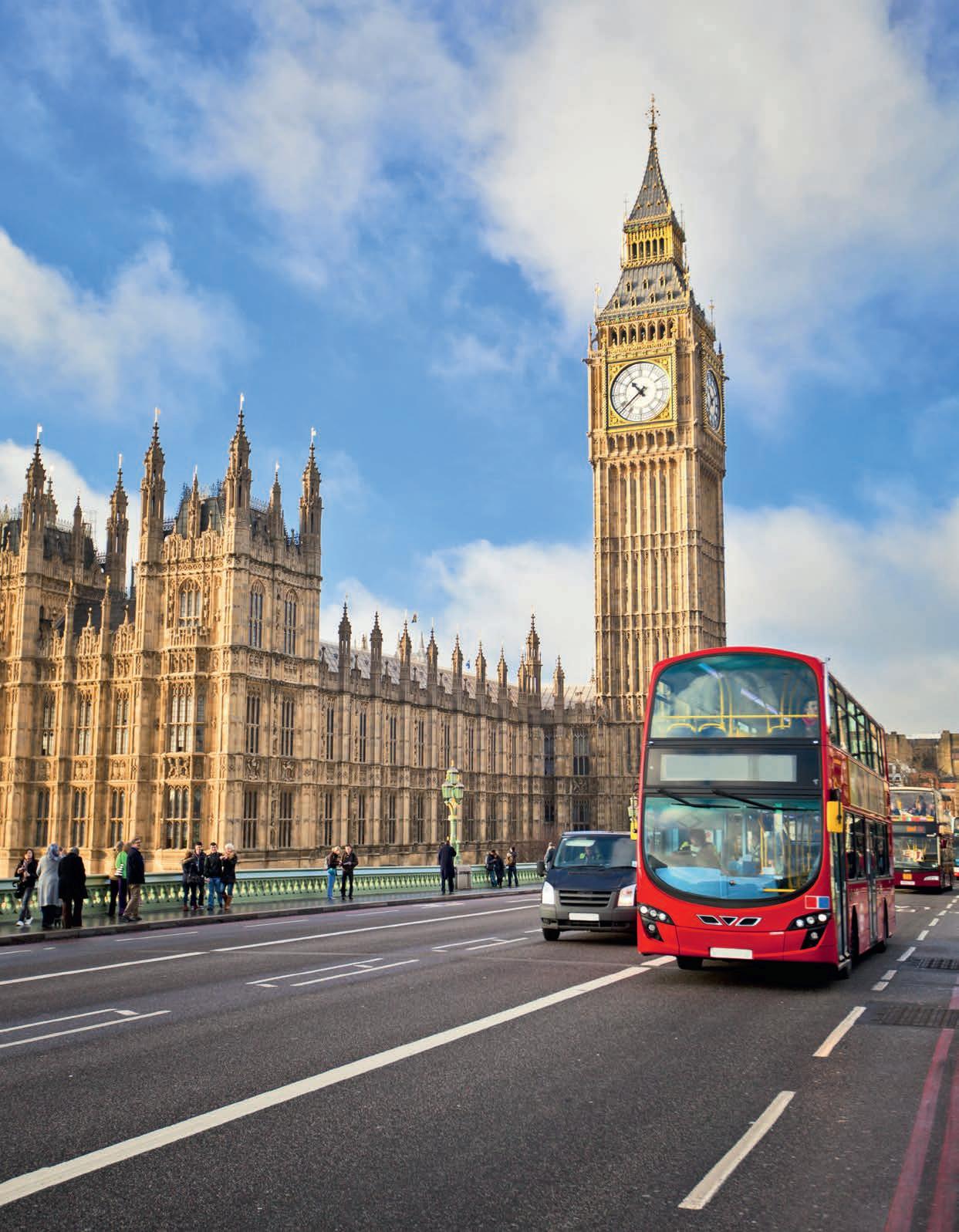
Mihaela-Raluca Ionescu
Manual pentru clasa a VI-a MINISTERUL EDUCAȚIEI 6 Limba modernă 2 Engleză
Mauchline
Morris
Smith Ana-Magdalena Iordăchescu
Acest manual școlar este proprietatea Ministerului Educației.
Acest manual școlar este realizat în conformitate cu Programa școlară aprobată prin Ordinul ministrului educației naționale nr. 3393/28.02.2017.
119 – număr unic de telefon la nivel național pentru cazurile de abuz împotriva copiilor 116.111 – numărul de telefon de asistență pentru copii
Daniel Morris
Catherine Smith Ana-Magdalena Iordăchescu
Mihaela-Raluca Ionescu
Manual
MINISTERUL EDUCAȚIEI Limba modernă 2 Engleză 6
pentru clasa a VI-a
Fiona Mauchline
Manualul școlar a fost aprobat prin ordinul ministrului educației naționale.
Manualul este distribuit elevilor în mod gratuit, atât în format tipărit, cât și digital, și este transmisibil timp de patru ani școlari, începând cu anul școlar 2024–2025.
Inspectoratul școlar
ACEST MANUAL A FOST FOLOSIT:
Aspectul manualului*
* Pentru precizarea aspectului manualului se va folosi unul dintre următorii termeni: nou, bun, îngrijit, neîngrijit, deteriorat.
• Cadrele didactice vor verifica dacă informațiile înscrise în tabelul de mai sus sunt corecte.
• Elevii nu vor face niciun fel de însemnări pe manual.
Limba modernă 2. Engleză. Manual pentru clasa a VI-a Fiona Mauchline, Daniel Morris, Catherine Smith, Ana-Magdalena Iordăchescu, Mihaela-Raluca Ionescu
Referenți științifici: prof. grad didactic I Daniela Tănăsescu, Colegiul Național „I.L. Caragiale”, București prof. dr. Roxana-Cristina Petcu, Universitatea din București, Facultatea de limbi și literaturi străine, Departamentul de limba engleză
Prelucrare după:
All Clear, Student’s Book 1 © Macmillan Publishers Limited/ Fiona Mauchline și Daniel Morris, 2015
All Clear, Student’s Book 2 © Macmillan Publishers Limited/ Fiona Mauchline și Daniel Morris, 2016
All Clear, Workbook 2 © Macmillan Publishers Limited/ Fiona Mauchline și Catherine Smith, 2015
Ediție publicată sub licență. Edițiile originale au fost publicate pentru prima dată în 2013 de Macmillan Publishers Limited.
Copyright © 2024 Grup Media Litera
Toate drepturile rezervate
Editura Litera
tel.: 0374 82 66 35; 021 319 63 90; 031 425 16 19
e-mail: contact@litera.ro www.litera.ro
Editor: Vidrașcu și fiii
Redactor: Carolina Marcu
Corectori: Carmen Bîtlan
Credite foto: arhiva Litera, Shutterstock
Copertă: Lorena Ionică
Tehnoredactare și prepress: Simona Bănică
Descrierea CIP a Bibliotecii Naţionale a României Limba modernă 2 – Engleză: manual pentru clasa a VI-a / Fiona Mauchline, Daniel Morris, Catherine Smith, …. – Bucureşti: Litera, 2024 ISBN 978-630-342-023-3
I. Mauchline, Fiona II. Morris, Daniel III. Smith, Catherine 811.111
..................................................................................................................................................................................................................................................................
.............................................................................................................................................................................................................................................................
Școala/Colegiul/Liceul
la primirela predare 1 2 3 4
AnulNumele elevului Clasa Anul școlar
School curriculum for MODERN LANGUAGE 2, 6th grade
Programa școlară pentru disciplina
LIMBA MODERNĂ 2 clasa a VI-a
General competences
1. Receive simple oral messages
2. Oral communication in routine exchanges
3. Receive simple written messages
4. Write simple messages in routine exchanges
Specific competences
1.1. Identify the overall meaning of a clearly articulated oral message in familiar contexts
1.2. Identify the time and amount numerically expressed (prices, numbers) within a clearly and rarely articulated oral message
1.3. Explore simple cultural aspects
2.1. Form / Express a simple message in common situations with support from the interlocutor
2.2. Asking for and providing information on numbers, pricing and time
2.3. Simple description of a person / character
2.4. Express willingness to participate in short social interactions
3.1. Identify information from panels and signs in public places in order to facilitate orientation
3.2. Identify important event tracking items on a poster (including digital poster) or on any other support
3.3. Identify data in a simple form (name, surname, date of birth, address)
3.4. Express willingness to receive simple written messages in the foreign language
4.1. Fill in a form with personal data ( surname, first name, address, age, hobbies, etc.)
4.2. Write simple messages about self / others
4.3. Express willingness to exchange simple written messages
Competențe generale
1. Receptarea de mesaje orale simple
2. Exprimarea orală în situații de comunicare uzuală
3. Receptarea de mesaje scrise simple
4. Redactarea de mesaje simple în situaţii de comunicare uzuală
Competențe specifice
1.1. Identificarea semnificației globale a unui mesaj oral clar articulat în contexte familiare
1.2. Identificarea orei și a cantității exprimate numeric (prețuri, numere) în cadrul unui mesaj audiat articulat clar și rar
1.3. Explorarea unor aspecte culturale simple
2.1. Formularea unui mesaj simplu în situații uzuale, cu sprijin din partea interlocutorului
2.2. Cererea și oferirea de informaţii referitoare la numere, la prețuri, la exprimarea orei
2.3. Descrierea simplă a unei persoane/unui personaj
2.4. Manifestarea deschiderii pentru a participa la scurte interacțiuni sociale
3.1. Identificarea informațiilor din panouri și semne aflate în locuri publice pentru facilitarea orientării
3.2. Identificarea unor elemente importante de reperare a unui eveniment pe un afiș (inclusiv afiș digital) sau pe un alt suport
3.3. Identificarea datelor cuprinse într-un formular simplu (nume, prenume, data nașterii, adresa)
3.4. Manifestarea deschiderii pentru receptarea de mesaje scrise simple în limba străină
4.1. Completarea de date personale (nume, prenume, adresă, vârstă, pasiuni etc.)
4.2. Redactarea de mesaje simple despre sine/despre alţii
4.3. Manifestarea disponibilității pentru schimbul de mesaje scrise simple
3
What’s in this textbook for you? Take a tour!
Ce-ți oferă acest manual? Să facem o trecere în revistă!
This textbook is designed both to fulfill the students linguistic and communicative competences and to develop their skills in all specific competences as well. The textbook offers flexible learning by providing language and content with a complete range of components and use of up-to-date technology. It is an attractive and motivating textbook with clearlystructured skills and grammar syllabus, and a focus on natural communication. Students become aware, confident learners, excellent communicators and achieve success – at school, in exams and throughout their life!
This Textbook includes:
√ a welcome module of five pages;
√ eight modules of eight pages followed by two pages of Self-check;
√ four Writing guides of two pages each;
√ four pages of Digital competences;
√ twelve pages of Celebrations and festivals all over the world;
√ three Life skills collaborative projects of two pages each;
√ four pages of Final revisions;
√ three pages of CLIL;
√ eight pages of Language reference containing vocabulary, grammar and speaking;
√ one page of tongue twisters, riddles and jokes;
√ two pages of irregular verbs;
√ a Digibook.
Vocabulary
Reading








Listening
The Vocabulary is introduced through representative pictures and recorded so that students can practice the pronunciation.
The Reading texts are informative and interesting and show the language in context. All the readings are recorded
The Grammar is presented with clear grammar tables. Graded exercises help students practise the form and meaning of the grammar.
Acest manual este conceput atât pentru a structura competențele lingvistice și de comunicare ale elevilor, cât și pentru a le dezvolta abilitățile în toate competențele specifice.
Manualul oferă flexibilitate în învățare, limbaj și conținut cu o gamă completă de componente și utilizarea tehnologiei moderne. Este un material atractiv și motivant, cu activități de vocabular și gramatică bine structurate, fiind centrat pe comunicarea naturală.
Elevii devin conștienți, încrezători în procesul de învățare, vorbitori excelenți, descoperind calea spre succes –la școală, la examene și pe tot parcursul vieții!
Manualul conține:
√ un modul introductiv de cinci pagini;
√ opt module de câte opt pagini, urmate de câte două pagini de Autoevaluare;
√ patru Ghiduri de scriere de câte două pagini;
√ patru pagini de Competențe digitale;
√ douăsprezece pagini de Sărbători și festivaluri din întreaga lume;
√ trei Proiecte de grup de câte două pagini;
√ patru pagini de Recapitulări finale;
√ trei pagini de CLIL;
√ opt pagini de trimiteri la studiul limbii care sistematizează noțiunile de vocabular, gramatică și comunicare;
√ o pagină de exerciții de dicție, ghicitori și glume;
√ două pagini de verbe neregulate;
√ manualul în format digital.
Grammar








Vocabularul este introdus prin intermediul unor imagini reprezentative și înregistrat astfel încât elevii să poată exersa pronunția.
Textele de Exersarea citirii sunt bogate în informații interesante și ilustrează limba în context. Toate textele sunt înregistrate.
Gramatica este prezentată în tabele clare. Exerciții cu grade diferite de dificultate îi ajută pe elevi să exerseze noțiunile de gramatică predate.
4 Grammar 26 4 Complete the sentences with the superlative form of the adjectives. The blue whale is the … big animal in the world. The blue whale is the biggest animal in the world. Oxford Street is the … busy shopping street in London. London. 3 The Lanesborough is the … expensive 4 The bus is the … cheap form of transport for under-16s. building in London. 5 Write five questions about where you live using the superlative form. Use the words in high mountain good football team long river rich person tall building 6 Ask and answer your questions in The highest mountain is … What is the highest mountain? 1 Write the comparative forms of the adjectives. thin thinner heavy fat young 3 difficult large 5 rich 10 intelligent 2 Complete the sentences with the comparative form of the adjectives in Dogs are … intelligent than most cats. Dogs are more intelligent than most cats. 1 Second-hand products are … cheap than new ones. Gold is … expensive than silver. 3 A €1 coin is … big than a £1 coin. Bill Gates is … rich than most people. Buckingham Palace is … than Big Ben. 3 Rewrite the sentences so they are true for you. My school bag my pencil case My school bag isn’t smaller than my pencil case. My school bag my shoes heavy My pen my pencil 3 My English book my maths book difficult My hands my friend’s hands large 5 my friend young The adjective: comparative and superlative forms AdjectiveComparative Superlative Short adjectives cheap large big cheap (than) larg (than) bigg (than) cheap the larg the biggest - adjectives noisy noisier (than) the noisiest Long adjectives expensive expensive (than) the most expensive Irregular adjectives good bad much many little far better (than) (than) more (than) (than) less (than) farther further (than) the best the worst the most the least the farthest furthest Language reference page 135 Reading 24 25 Consumer advice leaflet Read and listen. Match the headings 1–4 with the paragraphs A–D. 1 Do really need it? New for old 2 Don’t borrow money Save money now Read the text again. Choose the correct answers. Second-hand phones are usually … free b) cheaper To have €10,000 you need to save €11.32 a week from … the age of 13 the age of 25 Many … sell second-hand games. a) friends b) websites 3 To save lot of money it is best to … borrow it b) get part-time job 4 The article advises you to … think before you buy b) buy and then think 3 Answer the questions. 1 How can you get lot of money by your 30th birthday? How can you get new phone if you haven’t got much money? 3 Why is it a good idea to buy second-hand products? What part-time jobs can you get to earn more money? Is it good idea to buy something that you don’t really need? Word Check part-time powerful Facts A teenager’s average pocket money in the UK £6.50 a week. Would you like to save €10,000 by your 30th birthday? Well, you need to save €11.32 week from the age of 13 or €19.24 week from the age of 20 or €38.47 week from the age of 25. Just do the maths. It’s more intelligent to save money early. So, how can you start saving money? B Imagine you want better phone. The latest model is very expensive and you haven’t got much money. Why don’t you swap your old phone and your games console for a better phone? There are lot of online systems for swapping. Many also sell second-hand phones and other technology; they’re usually Try to get a part-time job at the weekend. You can earn few euros week you walk your neighbours’ dogs or wash their cars, and few euros an hour if you look after their children. Then you don’t need to borrow money from your family! Before you spend money on something new, think about it. Do you really need the most powerful computer in the shop? Or the best no, don’t buy it! Collaborative project page 124 Make a poster about your favourite Vocabulary 24 Module 2 1 Listen and repeat the words. Match them with pictures 1–10. borrow • buy • earn • lend • pay (for) • save • sell • spend • swap • win 2 Choose the correct words. the swimming competition this year. wonder who will win the swimming competition this year. My sister saves / spends her money on clothes and magazines. She usually wins buys clothes when she goes shopping. 3 My brother swapped paid for his computer for a smartphone. want part-time job to earn buy some extra money. 5 My brother has job. He sometimes borrows lends me money. 3 Listen to Luke and Katie. What does Katie spend her money on? What does she lend to her friends? 4 In pairs, ask and answer the questions in exercise 3. What do you spend your money on? What do you lend to your friends? often buy clothes and games. lend them books and clothes. 6 2a Unit Money








The Speaking section introduces the foreign language in routine exchanges.
The Writing page provides a model for different text types.
Writing CLIL
Tips


Every module is followed by two pages of Self-check to revise reading and writing skills, vocabulary and grammar.
The CLIL texts encourage English language learning through studying about other subjects.
The Language reference is a reference section for the new vocabulary and grammar of the module.




Pagina dedicată Exprimării orale introduce limba modernă în situații de comunicare uzuală.
Paginile de Redactare oferă un model pentru diferite tipuri de texte.

















După fiecare modul există câte două pagini de Evaluare menite să recapituleze și să evalueze abilitățile de citire și de scriere, vocabularul și noțiunile de gramatică predate.
The marking scheme evaluates students’ progress. Grila de evaluare marchează progresul realizat de elevi.
Textele de învățare integrată de conținut și limbă (CLIL) încurajează învățarea limbii engleze prin intermediul altor discipline.
Trimiterile la noțiunile noi de vocabular și gramatică din fiecare modul sunt prezentate la sfârșitul manualului.
The content of the digital version of the Student’s book (The Digibook) is similar to the one in the printed version and it also includes a range of interactive multimedia learning activities (static, animated, interactive).
Forma digitală a manualului școlar are un conținut similar variantei tipărite a manualului și cuprinde, în plus, o serie de activități multimedia interactive de învățare: statice, animate, interactive.
The Digibook Varianta digitală IMLA static AMII static IMLA animated AMII animat IMLA interactive AMII interactiv 31 Module 2 Read and listen. Then answer the questions. 1 What do many people in the UK do with their unwanted things? 2 What are the most popular second-hand items? 3 What is a charity shop? Who works in charity shops in the UK? 5 Why do people buy things in charity shops? ---- / 15 Some people in the UK don’t throw out any of their unwanted things. They sell or swap them on the internet or they donate them to charity. The most popular second-hand items are clothes, books, CDs and computer games. Some charity organizations, like Oxfam and Cancer Research UK, have their own second-hand shops. Volunteers work in these shops. Charities don’t pay volunteers any money. The shops receive second-hand items from members of the public and then sell them to make money for the charity. People spend money in charity shops for many reasons. For example, you can save a lot of money because charity shops are cheaper than normal shops. You often find more interesting things too. Also, it is way for people to give some money to Self-check 2 Reading and writing Writing Write about an object you love. what it is; how you got it; what it looks like; why you like it. ---- / 15 Speaking 28 29 Module 2 Speaking Task Going shopping Listen to the dialogue. What does Zoe buy? Zoe speakers Shop assistant Model Dialogue Useful Language £10 £15 £10 £40 £5 £20 1 Going shopping Read the information and decide what you want to buy. 2 Now you speak! Look at the Model Dialogue. Prepare a new dialogue by changing the words in practise it with a classmate. This webcam is great. How much is it? It’s £40. Comparative -er endings /ə/ a Listen and repeat. cheaper computer smaller Listen to the sentences and repeat. 1 People donate computer games to charity. 2 Charity shops are cheaper. Pronunciation 42 3 Match 1–5 with a–e to make outdoor activities. 1 build a) food 2 chop b) wood c) 4 hike d) in the mountains 5 cook e) shelters ---- / 10 1 feel angry excited when people tell me lies. My sister feels meets new people. My brother feels worried embarrassed before getting exam results. 4 Frank is surprised by sad about meeting his favourite singer. pleased scared results. ---- / 10 5 Choose the correct words. 1 My cousin lives is usually living in New York. 2 At the moment he stays is staying with us. plays is playing basketball every day. 4 He doesn’t play isn’t playing basketball today. 5 We fish are fishing in the river now. / 6 Complete the sentences with the correct 1 He … climb trees in summer. They … not build camps on holidays. She … today. 4 … not chop wood now. sleep outdoors tonight. 6 You … rarely cook in the forest. / 7 Complete the following sentences with the correct time expression: at the weekend, at present, right now, every day, sometimes. 1 Do you watch TV … 2 She is preparing dinner … . They … visit art galleries. 4 We play football … 5 … he is reading an interesting book. ---- / 10 8 Complete the dialogue. Use the correct form of the verbs in brackets. … you free after school today? Lou Yes, … be but usually … to scouts on Fridays. Is there scouts’ meeting today? Lou No there isn’t. They … these days but (5) not go Will We … fish this afternoon. Do you want to come? Oh, yes please. What time? Will Let’s … meet at five o’clock next to the river. Do need to bring anything? Will No, you don’t. My dad always bring the equipment. Will My mother always … cook the food and my cousin … buy the drinks. Sounds good. See you then! Will Great! See you then! ---- / 20 Now I can: Ø talk about outdoor activities & feelings; Ø correctly use present tense simple & continuous; Ø make plans; Ø write a blog entry. Don’t forget to complete the Behavior observation sheet according to the example on page 7! Self-check 3 Vocabulary and grammar The marking scheme Self-check Vocabulary and grammar Self-check Reading and writing Speaking Writing 30 A description of an object Read the Model text and listen. Then answer the questions. 1 How heavy is Jessica’s laptop? Who gave it to Jessica? 3 What does Jessica do with her laptop? My favourite thing I’ve got beautiful, small grey laptop. It isn’t heavy – it only weighs 2 kg and it’s got an 11-inch screen. It came with a lovely blue bag. My mum gave it to me three months ago for my 14th birthday. use it a lot. do my homework on it. In my free time often play games, sometimes listen to music and chat with my friends on it all the time. It’s great! It’s my favourite present. Model text 2 Look at the Tips. Find examples of adjective word Tips Adjective word order We use adjectives to make descriptions more interesting. With two or more adjectives together, we use the following order: beautiful, small, grey laptop. 3 Look at the example in the Tips. Complete the table beautiful small OpinionSize Age ColourNoun lovelybigold red phone 1 2 3 4 watch 4 Rewrite the sentences with the adjectives in brackets. My grandparents have got large cupboard. old My grandparents have got a large, old cupboard. I’ve got a black smartphone. 2 bought new T-shirt two days ago. purple 3 The black bag was the cheapest in the shop. small love my cousin’s blue earrings. antique 5 Writing task 1 Plan Choose your favourite object. Make notes and include: Appearance I’ve got a new red … How you got it was present from … How you use it and your opinion use it to … I like love it 2 Write Use the Model text, your notes and this structure: Paragraph Description Paragraph How you got it Paragraph What you do with and why you like it 3 Check past simple comparatives and superlatives vocabulary for money and computer equipment adjectives 135 Module 2 Language reference Vocabulary Money borrow buy lend pay (for) save sell spend swap win Computer equipment desktop flash drive keyboard laptop memory card printer speakers Grammar Comparatives Short adjectives A phone is My camera is bigger than my phone. My phone is to use than my mum’s. Long adjectives This mobile is more expensive than that camera. Irregular adjectives good better, bad Superlatives Short adjectives This laptop is in the shop. My camera is the biggest My phone is Long adjectives This mobile is the most expensive in the world. Irregular adjectives good the best, bad the worst, The forms of the genitive: expressing possession ‘s genitive proper nouns Jenny dress is red. nouns in the singularThe boy’s bike is new. irregular pluralsThe men’s books are on the shelf. regular pluralsThe teenagers bikes are in the garden. of genitive for things the room are wide open. the bunny are very long. Speaking Buying and selling This webcam is great. How much is it? It’s £40. And how much does this mouse cost? It costs £12. OK, this mouse, please. £3 change CLIL activities Read the text again. Complete the table below. REGION PEOPLE SAINT FLOWER 2 https://www.youtube.com/watch?v=F59tB1yLWNQ Draw or print white map of the British Isles. Write and draw in the right boxes: a) the four countries; b) the capital cities; c) the national flags; d) the flower symbols. Here is an example of a white map of the British Isles. March The national day of Wales is St. David’s Day St. David is Wales patron Saint, a Celtic monk and bishop who spread the word of Christianity across Wales. day is commemorated by the wearing of daffodils or leeks. The Welsh flag depicts red dragon on a background of green and white. Geography Landmarks in the British Isles 17 March The national day of Northern Ireland is St. Patrick’s Day patron Saint. The national emblem of both Northern Ireland and the Republic of Ireland is the shamrock. This symbol explains the Holy Trinity. 23 April The national day of England is St. George’s Day St. George is England patron Saint. The national flower of England is the red rose. This flower is England emblem since the wars of the Roses (1455-1485). 30 November The national day of Scotland is St. Andrew’s Day St. Andrew, one of Christ twelve apostles, is Scotland patron Saint. The national flower of Scotland is the thistle and it a symbol of defence. 53
activities
reference
Language
5
Welcome! page 8
1 On screen page 13
2 Personal possessions page 23
3 Outdoor survival page 33
4 Ambitions page 43
CLIL activities
Possessive ’s / s’
Clothes • School subjects • Family • Parts of the body • Weather
• Film types
• TV programmes
• Money
• Computer equipment
• Outdoor activities
• Feelings
• Life events
• Musical instruments
Geography – Landmarks in the British Isles page 53
5 Good citizens
page 57
6 Historical events page 67
7
Transport and
travel
page 77
8 Leisure time page 87
CLIL activities Dot-com companies page 97
Writing guide page 100
Digital competence page 108
Festivals and celebrations all over the world page 112
• Present simple
• Question words
• The adjective: comparative and superlative forms
• The forms of the genitive: expressing possession
• Present continuous
• Present simple and present continuous
• Prepositions of time
• Telling the time
• Ordinal numbers
Round up 1 (Module 1-4) page 54
• Jobs
• Health problems and first aid
• Discoveries
• Natural disasters
• Transport
• Travel
• Playing games
• Places to visit
• Countable and uncountable nouns
• To be: past simple
• Past simple: regular and irregular verbs
• Past simple: extensive practice
• Tense review: present simple and continuous, past simple
• Making a polite request –the modal verbs: can, may
Round up 2 (Module 5-8) page 98
Collaborative project page 124 Final revision 1 – 2 page 130 Language reference page 134 Fun with English! page 142 Irregular verbs page 143
Module
Grammar
Vocabulary
•
6

ReadingWriting ListeningSpeaking Self-check
and seasons
To be
Have got
• Forum discussion: Mehmet’s Movie Blog
Subject pronouns and possessive adjectives
• A description of a TV programme
TV viewing habits
• Consumer advice leaflet: How to … save money • A description of an object • Online swap shop
• Microblogging and a wiki page: Wild Camping
Looking at family photos
Talking about films
Going shopping
• A blog entry• Life with a Tribe • Planning a weekend trip
• An infographic: Demographics • A class survey• The road to success
CLIL
activities
Science – The solar system page 56
• A sports article: Street dancing in schools: is it PE?
• A magazine article: Food origins
• History essay: On two wheels
• A factual text –Board games: from cardboard to pixels
• A description of a person
• Mountain rescue!
• A biography• Famous natural disasters
• A story
• Graham Hughes
• An e-mail
• Evening plans
• In a music shop
Introducing
Self-check 1
and writing
and grammar
Self-check 2
and writing
and grammar
Self-check 3
and writing
and grammar
• Self-check 4
and writing
and grammar
• Talking about jobs • Self-check 5
and writing
and grammar
• A walk in the city • Self-check 6
and writing
and grammar
• A bus trip• Self-check 7
and writing
and grammar
• At a holiday camp
• Self-check 8 Reading and writing Vocabulary and grammar
When you finish studying each module, assess the activities you have carried out and how you felt while going through these lessons. Create your self-observation sheet by completing the table below. Collect the sheets from each module in your portfolio to monitor your progress.
BEHAVIOUR OBSERVATION SHEET
Behaviour
I showed interest in learning.
I followed the instructions.
I worked individually.
I asked for help when needed.
When I made mistakes I wanted to learn how to correct them.
I participated actively in activities.
I completed the activities.
I expressed my opinion.
I cooperated with others in group activities.
Specific competences
•
•
•
•
yourself 1.1; 2.1; 2.3; 2.4; 3.4; 4.1; 4.2; 4.3
•
•
Reading
Vocabulary
1.1; 1.3; 2.1; 2.4; 3.2; 3.4; 4.2; 4.3
•
•
•
Reading
Vocabulary
1.1; 1.2; 1.3; 2.1; 2.2; 2.3; 2.4; 3.2; 4.2
•
Reading
Vocabulary
1.1; 1.3; 2.1; 2.3; 2.4; 3.2; 3.4; 4.3
•
Reading
Vocabulary
1.1; 1.3; 2.1; 2.4; 3.2; 3.4; 4.2
Reading
Vocabulary
1.1; 1.3; 2.1; 2.2; 2.3; 2.4; 3.4; 4.2
Reading
Vocabulary
1.1; 1.3; 2.1; 2.3; 2.4; 3.4; 4.2
Reading
Vocabulary
1.1; 1.2; 1.3; 2.1; 2.2; 2.4; 3.4
1.1; 1.3; 2.1; 2.4; 3.2; 3.3; 4.1; 4.2; 4.3
NeverSometimesOftenAlways
7
WVocabulary
Clothes
1 Listen and repeat the words. Match them with 1–11 in the pictures. boots • dress • jacket • jeans • jumper • sandals • shirt • shoes • skirt • trainers • T-shirt

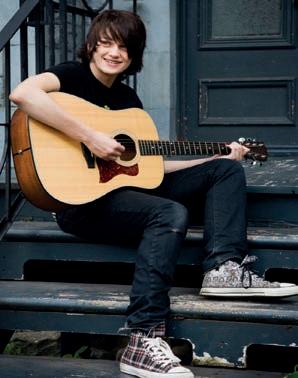


2 Look at the pictures in exercise 1 again and describe them. There is one example. Anil’s jeans are blue.
3 In pairs, talk about your partner’s clothes. David’s T-shirt is green.

Tips
Possessive ’s / s’
Use ’s after a name or singular noun. Magda’s coat is blue.
Use ’ after a plural word ending in -s. The boys’ jeans are blue.
8
Jess Lucy Magda Mark 2 3 1 4 5 6 7 8 9 10 11 Competences: 1.1; 2.1; 2.3; 2.4; 3.4; 4.1; 4.2; 4.3.
Anil
School subjects
4 Listen and repeat the words.
art drama English French geography history ICT (information and communication technology) literature maths music PE (physical education) science
5 Write sentences about your school week. I’ve got science and PE on Mondays.
Family
6 Listen and repeat the words.
aunt brother cousin daughter father grandad grandmother husband mother nephew niece sister son uncle wife
Parts of the body
9 Let`s name the body parts!
forehead mouth ear arm
eyebrow nose chest leg
foot knee hand eye hair

7 Copy and complete the table with the words in the box. Which word can be used for both males and females?
Male Female
brother sister
8 Complete the sentences with words from exercise 6.
1 My mum’s sister is my … .
2 My dad’s daughter is my … .
3 My uncle is my grandmother’s … .
4 My aunt’s child is my … .
5 My cousin Mary is my dad’s … .
Weather
and
seasons
10 Choose the correct words.
1 In the Arctic it’s cold / hot.
2 Summer in the south of Spain is usually sunny / snowy.
3 There is no rain this summer so the ground is very dry / wet
4 It’s warm / cold tonight so we can sit outside and eat dinner.
5 This spring in Britain is very rainy / windy –we are using our umbrellas every day!
11 What is your favourite season and why?
Describe it.










9 Welcome module
To be
1 Write true sentences with the affirmative or negative form of be.
1 I … from Spain.
2 My best friend … 14 years old.
3 We … in maths class. 4 My favourite hobby … swimming. 5 Madrid … the capital of the UK.
Have got
2 Choose the correct form of the verb.
1 I have got / has got two sisters and one brother.
2 My father haven’t got / hasn’t got a red car.
3 We haven’t got / hasn’t got an English exam tomorrow.
4 She have got / has got white trainers.
5 They have got / has got new mp3 players.
Subject pronouns and possessive adjectives
3 Copy and complete the tables with the words in the box. your their you her its he we
Subject pronouns I you sheit they
Possessive adjectives
Listening
Looking
at
family
photos

4 Listen to Sally talking about her family. How many brothers has she got?
5 Listen again. Copy and complete the sentences about Sally’s family. There is one example. Laura is her mum.
1 Michael is … .
2 Nicole is … .
3 Harriet … .
4 Tom … .
5 Margaret … . 6 Write sentences about your family.
My mum is Sonia and my dad is Daniel. I have got a brother. His name is Juan.

Grammar
my his ouryour
Laura
Margaret
Tom
Nicole
Michael
10
Harriet
1 Listen to the dialogue. What are Jason and Marcia’s hobbies?
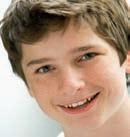
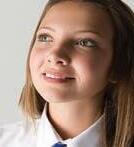
2 Listen again and repeat the dialogue.
3 Match the questions 1–4 with the answers a–d.
1 How old are you? a) My hobbies are video games and films.
2 What’s your name? b) I’m 14.
3 Where are you from? c) My name’s Joe.
4 What are your hobbies? d) I’m from Liverpool.
1 Talk about yourself
Read the information and choose two people.
1 Harvey: New York / 15 / singing and dancing
2 Nisha: 13 / Cambridge / computers and sport
3 Hammed: Birmingham / 14 / comics and cycling
4 Jasmine: London / 16 / music and cinema
Useful
language
2 Prepare a dialogue
Look at the Model dialogue and change the words in blue.
3 Speak
In pairs, practise your dialogue. Hi, I’m Hammed. Hello, my name’s Nisha.

Speaking task Introducing yourself Jason 13 football Jason London Marcia Marcia 13 Model dialogue
11 Welcome module
Speaking
Focus on Language!
1 Who are they? Read the following e-mails. Then write the
B
C


virtual friends!
Mark Fischer mark.f@free.com • 5 h
Hello! I’m Mark Fischer! I’m from Germany. I’m eleven years old. My hair is short and blond. My eyes are blue. I am quite tall. My favourite sport is football. I train twice a week. I’m in the football team of my school, too. What is your favourite sport? Please, be my e-friend!
Jasmine Murphy jasmine.murphy@idm.com • 3 h
Hi! My name is Jasmine Murphy. I’m Australian. I’m twelve years old. My hair is short and dark brown. I’m tall and thin. My eyes are green. In my free time, I like riding the bike. What do you like doing in your free time? Do you have any interesting hobbies? Write back!
Roy Crane crane.roy@aul.com • 5 h
Hello! I’m Roy Crane. I’m twelve years old. I’m from Jamaica. I’m short and plump. My hair is short and black. My eyes are hazel. I love animals and I have a dog. Its name is Toby. Do you have any pet? What is your favourite animal? Write soon!
Open Favourite Repost Reply
Abigail Smith abigail@olg.com • 1 h
Hi! My name is Abigail Smith. I’m from London, the capital city of the United Kingdom. I’m eleven years old. I’m short and thin. I am not heavy. My hair is long and blond. My eyes are blue. I like going to school and meeting my friends. My school is great! We do lots of class projects! How is your school and your English class? Please, send me an e-mail!
Open Favourite Repost Reply



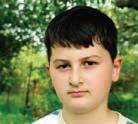

letters under the photos. 3 Mark and Abigail have … eyes. … hair is … .
Roy has got a pet. … name is Toby.
4 Choose an e-friend from exercise 1. Write an e-mail to him or her.
Describe yourself and answer his / her questions. Do not forget to ask other questions, as well!
Did you know…?
In 1971 Ray Tomlinson invented and developed electronic mail, as we know it today, by creating ARPANET’s networked e-mail system.
12
4
5
3 Where is Abigail from? 4 Who likes riding his bike? 5 Who is Toby? • Home • Back • Refresh Welcome
A
correct
Roy is short and … . Jasmine is … and thin.
Open Favourite Repost Reply …
Open Favourite Repost Reply …
…
D
• Find virtual friends
ON SCREEN
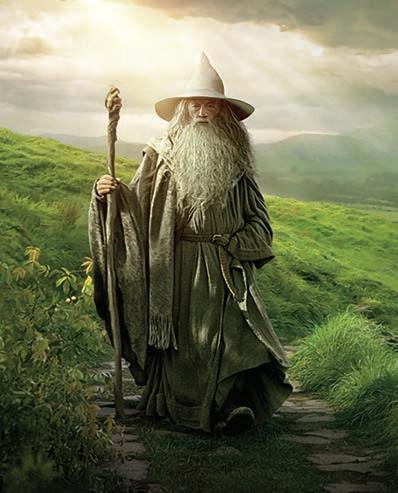
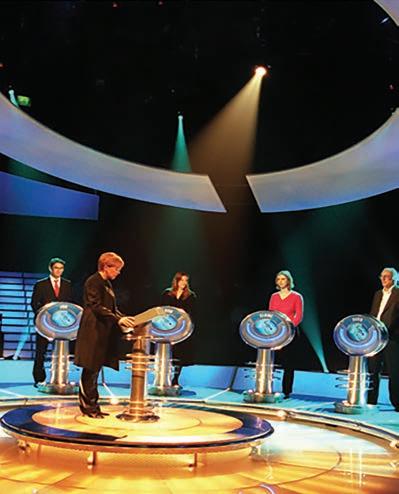

IN THIS MODULE YOU WILL LEARN:
Vocabulary
Grammar
Reading
Speaking
Writing
Self-check 1
• Film types
• TV programmes
• Present simple
• Question words
• Forum discussion: Mehmet’s Movie Blog
• Talking about films
• A description of a TV programme
• Reading and writing
• Vocabulary and grammar
Find the page numbers for:
Ø a mobile phone
Ø a famous cartoon
Ø a gold mask
Competences:
1.1; 1.3; 2.1; 2.4; 3.2; 3.4; 4.2; 4.3.
13
Vocabulary
1 Listen and repeat the words. Match them with pictures 1–6. What film type can’t you see? Why?



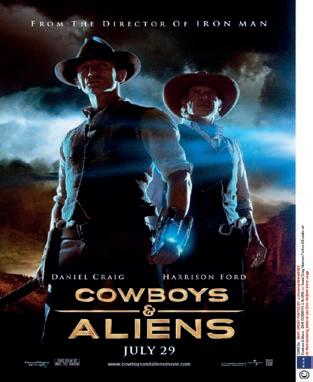
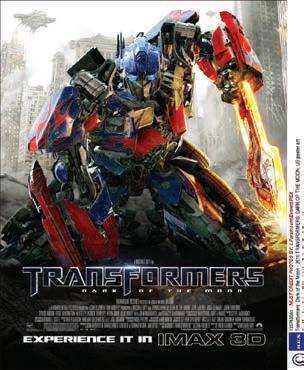

14
action • adventure • animated • comedy • fantasy • horror • musical • romantic comedy • science-fiction • thriller • war • western 2
film
1. 3
What are their favourite film types? 4
pairs, ask and answer questions about your favourite film types. What are your favourite film types? I love horror films and adventure films. 2 3 5 6 1 4 1a Film types
Write one example of a film for each
type in exercise
Listen to Jake and Isabel.
In
Forum discussion
Mehmet’s M vie Blog
Movie questionnaire
Hi everyone! Today’s post is all about
Word check movie choose screens

4 responses to ‘Mehmet’s Movie Blog’
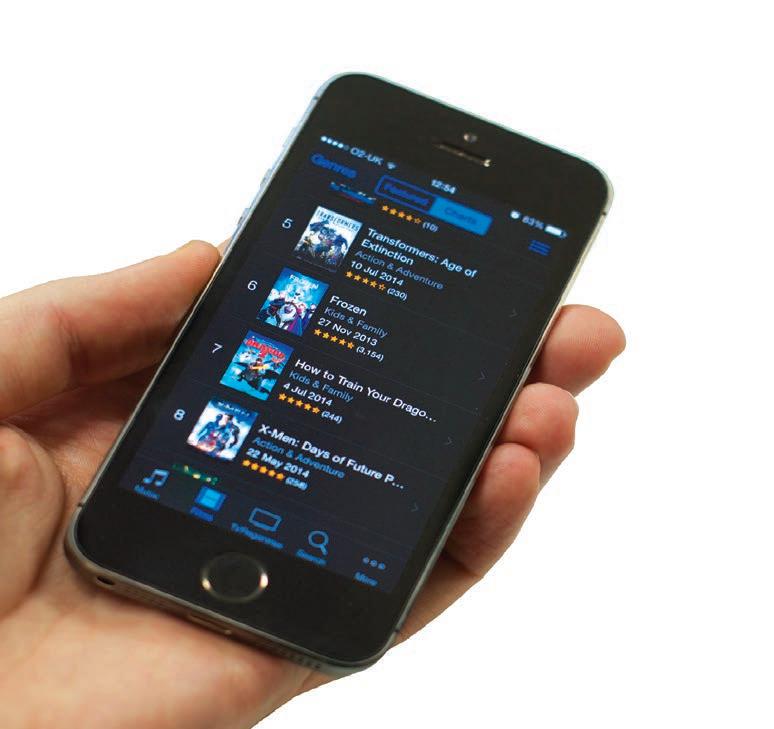
a) New films at the cinema
b) Teenagers and their favourite films
c) Film-watching habits
I usually watch films on my computer and on my smartphone. I hardly ever go to the cinema because it’s expensive. I like science-fiction and fantasy films with good special effects, but I hate 3D.
44 minutes ago
I sometimes go to the cinema with my friends. We like thrillers, horror films and romantic comedies, but we often a film because we like the actors. We go to a screens at my local shopping
42 minutes ago
I always watch films on my dad’s tablet. I love action and adventure films, but I like all film types except musicals. Oh, and I don’t like westerns much.
Mike
I never watch films. I prefer television, especially comedies and sports programmes. My brother watches films all the time. His . He watches it once a week!
29 minutes ago
36 minutes ago

Facts
British teenagers go to the cinema more often when they are 13 and 14. This is because when they are 15, they have to pay the adult price.
3 Read the text again. Answer the questions.
2 Read and listen. Who says these things? Choose the correct names.
My favourite film types are science-fiction and fantasy. Rudy
1 I don’t like musicals, but I like all other film types.
2 I don’t watch films, I only watch TV.
3 My friends and I like watching our favourite actors.
4 He watches The Hobbit all the time!
5 I really don’t like 3D films.
1 What is Mehmet’s blog post about today?
2 Why does Rudy hardly ever go to the cinema?
3 Who does Katy go to the cinema with?
4 Where does Mike watch films?
5 What types of TV programmes does Eliza watch?
Go to the Digital competence 1 on page 108 to practise your digital skills.

15 Module 1
Reading
Home Blog Videos Topics Review Top 10
Grammar
Present simple
AffirmativeNegative
Interrogative
Short answers
I like I don’t like Do I like … ? Yes, I do.
He / She / It likes He / She / It doesn’t likeDoes he / she / it like … ? No, he / she / it doesn’t.
We / You / They like We / You / They don’t likeDo we / you / they like … ?Yes, we do.
Rules
More spelling rules for 3rd person singular:
• verb ending in -ss / -sh / -ch / -x / -o + es: I dress – he dresses; I brush – she brushes.
• verb ending in consonant + -y: -y ➝ -ies: I try – he tries BUT vowel + -y: I play – he plays.
1 Choose the correct verb forms.
He watch/ watches TV in the evening.
He watches TV in the evening.
1 My sister choose / chooses a film because she likes the actors.
2 You put / puts films on your tablet.
3 We like / likes romantic comedies.
4 My friends use / uses their phones to watch films.
2 Write the sentences in exercise 1 in the negative form.
3 Write complete sentences. Use the present simple.
Isabel / enjoy / science-fiction films. Isabel enjoys science-fiction films.
1 She / not like / fantasy films very much.
2 Jake and I / not like / musicals.
3 Her brother / buy / film magazines and Isabel / read / the film reviews.
4 They / love / westerns, but I / hate / them.
4 Order the words to make questions. Then write answers so they are true for you.
like / Do / 3D films / you / ?
Do you like 3D films?
1 your best friend / watch / Does / films / on a computer / ?
2 film magazines / Do / read / you / ?
3 your classmates / old films / enjoy / Do / ?
4 prefer / you / films or TV series / Do / ?
Question words
Question words
Who / What / Where / When / Why
Who is your favourite film director?
What is your favourite film type?
Where do you watch TV?
When do you go to the cinema?
Why do you like science-fiction films?
How often do you watch films?
5 Choose the correct question words. Who/ What is your favourite film? What is your favourite film?
1 Who / What is your favourite film?
2 Where / Who do you watch films?
3 Who / When is your favourite actress?
4 Why / What do you like going to the cinema with your friends?
5 How often / Who does your friend go to the cinema?
6 Match the questions 1–5 from exercise 5 with the answers a–e.
a) I usually watch films at home.
b) Jennifer Lawrence.
c) Because it’s fun.
d) She never goes to the cinema.
e) The first film in The Hunger Games trilogy.
7 Ask and answer the questions in exercise 5. What is your favourite film? My favourite film is Avatar.
Language reference page 134
16
Tips
There is / There are
Use there is for uncountable nouns and singular countable nouns.
There is good ice cream at my local cinema. There is an IMAX cinema in my city.
Use there are for plural countable nouns.
There are seven screens at the cinema.
There are three famous film magazines at the newsstand.
8 Complete the sentences with there is or there are.
… nothing on TV tonight. There is nothing on TV tonight.
1 In London … many cinemas that I like.
2 … three The Lord of the Rings films.
3 I like cinemas because … drinks, sweets and popcorn.
4 I don’t like cinemas because … a lot of noise.
5 I like science-fiction films because … some great special effects.
Language reference page 134
Tip
Use present simple with adverbs of frequency. I am always tired at school. You usually go jogging in the park. He often meets his friends. She sometimes watches TV.
I rarely go to the cinema. They never watch documentaries.
9 Look at the sentences in the Tip box. Choose the correct words to complete the rules.
Frequency adverbs normally go before / after the main verb, but they go before / after be.
10 Write the sentences using the verbs and the adverbs of frequency in brackets.
Our class survey says that: Teenagers … (often / like) watching films at the cinema.
Teenagers often like watching films at the cinema.
1 Students … (never / use) films to help with their homework.
2 They … (always / choose) a variety of films online.
3 Their favourite types … (usually / be) action films and comedy.
4 Boys … (often / go) to the cinema on Thursdays.
5 Students … (hardly ever / copy) DVDs because it’s illegal.
11 Complete the dialogue with the correct form of the verbs in brackets.
Josh How often (0) do you watch (watch) films?
Grammar
Liz Oh, two or three times a week. (1)… you … (like) documentaries?
Josh No, I don’t. I (2)… (prefer) science-fiction. (3)… you … (like) science-fiction films?
Liz They’re OK. (4)… you … (have got) a favourite film?
Josh I’m not sure. Avatar (5)… (be) good.
Liz Who (6)… (be) the director?
Josh James Cameron. He’s also the director of Titanic. How about you? What (7)… (be) your favourite film?
Liz The Ring.
Josh Oh no! I (8)… (not like) horror films.
12 Listen and check your answers.


17 Module 1
12345678
1b TV programmes
Vocabulary
1 Listen and repeat the words. cartoon • chat show • comedy • documentary • drama • game show • reality show • soap opera • sports programme • the news
2 Match pictures 1–6 with the TV programmes in exercise 1. Which programmes are not in the pictures?

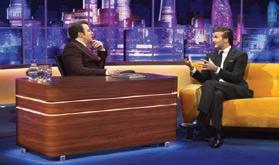
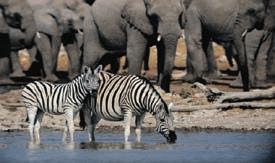


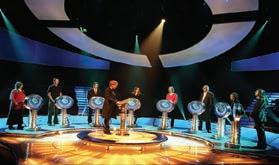
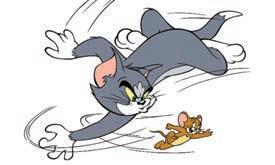
3 Write sentences about your favourite TV programmes using the words in exercise 1. My favourite cartoon is … .
4 In pairs, ask and answer questions about your favourite TV programmes. What’s your favourite cartoon? It’s … . What about you?
Listening
TV viewing habits
5 Listen to the news report. Do teenagers watch more hours of TV than their parents?
6 Listen again. Are the sentences true or false? Correct the false sentences.
1 Parents usually watch TV for about three hours a day.
2 Teenagers prefer computers and phones to television.
3 Young people usually watch TV on their computers.

4 More than half of young teenagers have a computer in their bedroom.
5 Teenagers often sleep for only four hours.
18
18
1 4 2 5 3 6
Talking about films
Listen to the dialogue. Which film do Tim and Suzie decide to see?
Model dialogue

Tim
Suzie
romantic comedies
science-fiction

The Lego Movie
Speaking task
1 Talk about films
Look at the film posters and choose a film.
2 Now you speak!
Look at the Model dialogue. Prepare a new dialogue by changing the words in blue and practise it with a classmate.
What film do you want to see?

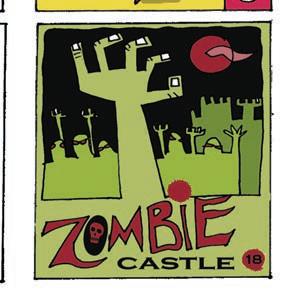
I want to see Mr. Funnyman. I like comedies.
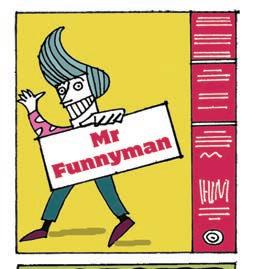
Useful
language
/e/, /uː/ and /aɪ/
Read and listen to the words.
/e/ director ceremony every /uː/ statue who blue /aɪ/ writer why like Pronunciation

Module 1
Speaking
19
A description of a TV programme
1 Read the Model text and listen. Then answer the questions.
1 What is Sophie’s favourite TV programme? 3 What is it about?
2 What type of programme is it?
Model text
4 Why does she like it?
My favourite TV programme is The Big Bang Theory, an American comedy programme. It’s on television on Sundays, but I often watch the repeats online.
The Big Bang Theory is about two scientists called Sheldon and Leonard and a waitress called Penny. I really like this programme because the characters always do funny things. I recommend this programme because it has a lot of intelligent comedy. Sophie, 14
2 Look at the Tips. Find examples of 1–5 in the Model text.
Tips
Capital letters and punctuation
We use capital letters:
1) at the beginning of all sentences;
2) for the subject pronoun ‘I ’;
3) for names and places;
4) for countries, languages and nationalities;
5) for days and months.
Among others, punctuation includes full stops ( ) and question marks (?).
3 Rewrite the sentences with capital letters and the proper punctuation.
1 eastenders is a british soap opera
2 do you like sports programmes
3 my dad and i often watch a game show on saturdays
4 my favourite actor in the programme is jim parsons
5 what is your favourite TV programme
4 PERSONAL PROJECT The hall of fame
Create a collage about your favourite film / book characters. Present the collage to your classmates.
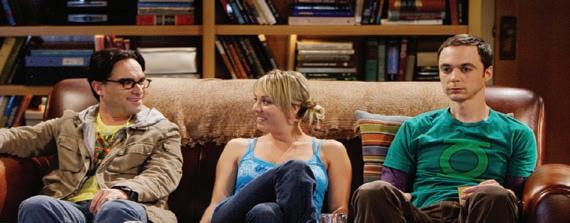
5 To practise your writing skills, go to Writing guide 1 on page 100.
6 Writing task 1 Plan
Make notes to write about your favourite TV programme and include:
Type of programme … is a Spanish drama … .
When you watch it I (often) watch it on … .
What it’s about It’s about … .
Why you like it … because … .
Why you recommend it … because … .
2 Write
Use the Model text, your notes and this structure:
Paragraph 1 The programme, when you watch it
Paragraph 2 Characters, why you like it, give a recommendation
3
Check
present simple adverbs of frequency vocabulary for TV programmes capital letters and punctuation
Writing
20
Self-check 1 Reading and writing

FILM

The Academy Awards are the most famous film industry awards in the English-speaking world. They are for actors, directors, writers and other people in the film industry. The winners receive a gold statue called an Oscar.
The Academy Awards ceremony occurs once a year in late February or early March at a theatre in Hollywood, in the USA. The ceremony is always on television. Every year, thousands of people wait outside the theatre because they want to see their favourite actors. The actors often pose for photos and talk with the public.
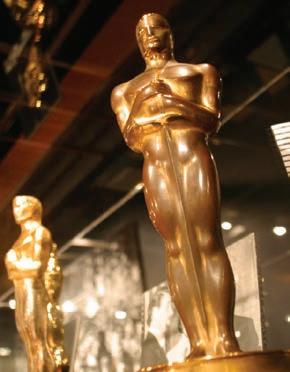


1 Read and listen. Then answer the questions.
1 Who are the Academy Awards for?
The British equivalent of the Oscars is the British Academy of Film and Television Arts Awards, or BAFTAs. Winners of the British award win a gold mask. 2 Writing Write about your favourite TV programme. Mention:
2 What do the winners of the Academy Awards receive? 3 When is the Oscar ceremony?
What is the British equivalent of the Oscars? 5 What do the winners of the BAFTAs receive?

21
----
4
/ 15
Oscar BAFTA
•
•
•
----
15 Module 1 21
when it is on;
what it is about;
why you like it. Use 50–70 words.
/
Module Progress Check
Self-check 1 Vocabulary and grammar
3 Order the letters then write the film types.
1 tedmiana 3 aafnsty 5 ehillrrt
2 eenrstw 4 niotac
Write the types of TV programme.


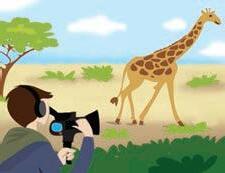
/ 10

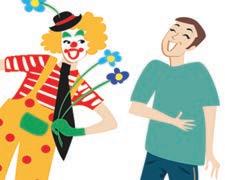
5 Complete the sentences with the correct form of the verbs in brackets.
1 I … (love) film awards ceremonies.
2 He … (get) DVDs at the weekend.
3 My parents … (not go) to the cinema.
4 He … (not download) films.
5 … you … (watch) much TV during the week? ---- / 10
6 Complete the questions with the words in the box. how when where who why
1 … do you watch TV, in the morning or in the evening?
2 …’s your favourite actor?
3 … do you like him / her?
4 … often do you watch cartoons?
5 … do you do your homework? ---- / 10
7 Order the words to make sentences.
1 often / am / tired / on Mondays / I / .
2 the cinema / We / twice a month / go to / .
3 the internet / hardly ever / My dad / uses / .
4 goes / My uncle / always / at night / for a walk / .
5 watch / every day / I / sports programmes / .
/ 10
8 Complete the dialogue with the correct form of the verbs in brackets.
Will How often (1) … you … (watch) television?
Izzie Oh, every night. (2) … you often … (watch) documentaries?
Will No, I don’t. I (3) … (like) cartoons and sports programmes. (4) … you … (like) sports programmes?
Izzie They’re OK. (5) … you … (have got) a favourite TV programme?
Will I’m not sure. Football Focus (6) … (be) good.
Izzie When (7) … (be) it on television?
Will It (8) … (be) on television every Saturday. How about you? What (9) … (be) your favourite TV programme?
Izzie Neighbours.
Will On no! I (10) … (not like) soap operas. They are terrible!
/ 20 Total ---- / 100
Now I can:
Ø talk about film types & TV programmes; Ø correctly use present simple & question words;
Ø talk about likes and dislikes; Ø write a description of a TV programme.
22
----
4
1 2 3 4 5 ----
/ 10
----
----
Don’t forget to complete the Behaviour observation sheet according to the example on page 7!
PERSONAL POSSESSIONS
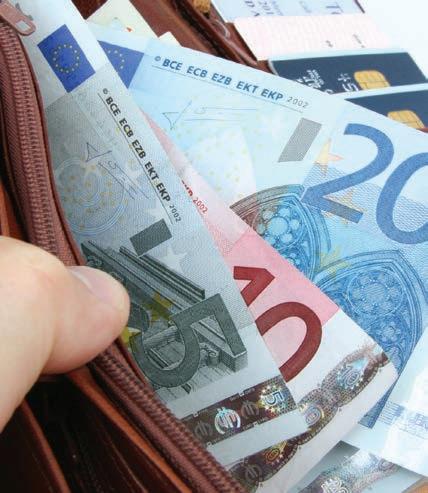
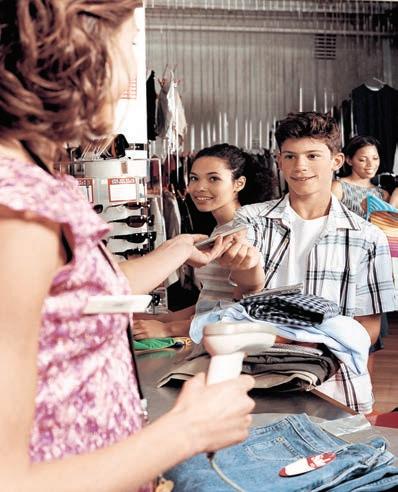
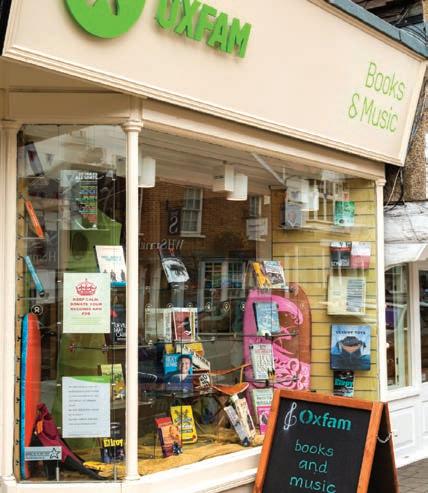
IN THIS MODULE YOU WILL LEARN:
Vocabulary
Grammar
Reading
Speaking
Writing
Self-check 2
• Money
• Computer equipment
• The adjective: comparative and superlative forms
• The forms of the genitive: expressing possession
• Consumer advice leaflet: How to … save money
• Going shopping
• A description of an object
• Reading and writing
• Vocabulary and grammar
Find the page numbers for:
money jars
shop
23
Competences: 1.1; 1.2; 1.3; 2.1; 2.2; 2.3; 2.4; 3.2; 4.2. 23
Ø
Ø a scanner Ø a charity
Vocabulary
1 Listen and repeat the words. Match them with pictures 1–10. borrow • buy • earn • lend • pay (for) • save • sell • spend • swap • win
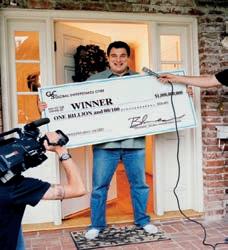



2 Choose the correct words.
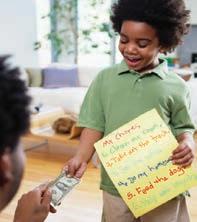
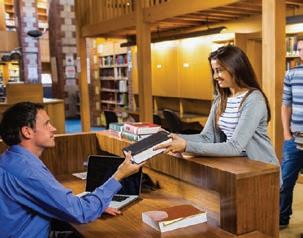


I wonder who wins / earns the swimming competition this year.
I wonder who wins the swimming competition this year.
1 My sister saves / spends her money on clothes and magazines.
2 She usually wins / buys clothes when she goes shopping.
3 My mom pays for / swaps my swimming classes.
4 I want a part-time job to earn / buy some extra money.
5 My brother has a job. He sometimes borrows / lends me money.
3 Listen to Luke and Katie. What does Katie spend her money on? What does she lend to her friends?
4 In pairs, ask and answer the questions in exercise 3. What do you spend your money on?
What do you lend to your friends?
I often buy clothes and games. I lend them books and clothes.
24
2 3 4 1 6 8 9 10 5 7 2a Unit
Money
Reading
Consumer advice leaflet
A Would you like to save €10,000 by your 30th birthday? Well, you need to save €11.32 a week from the age of 13 or €19.24 a week from the age of 20 or €38.47 a week from the age of 25. Just do the maths. It’s more intelligent to save money early. So, how can you start saving money?
B Imagine you want a better phone. The latest model is very expensive and you haven’t got much money. Why don’t you swap your old phone and your games console for a better phone? There are a lot of online systems for swapping. Many also sell second-hand phones and other technology; they’re usually much cheaper than new products in the shops.

C Try to get a part-time job at the weekend. You can earn a few euros a week if you walk your neighbours’ dogs or wash their cars, and a few euros an hour if you look after their children. Then you don’t need to borrow money from your family!
D Before you spend money on something new, think about it. Do you really need the most powerful computer in the shop? Or the best camera? If the answer is no, don’t buy it!



1 Read and listen. Match the headings 1–4 with the paragraphs A–D.
1 Do I really need it?
3 New for old
2 Don’t borrow money 4 Save money now
2 Read the text again. Choose the correct answers.
Second-hand phones are usually … . a) free b) cheaper
1 To have €10,000 you need to save €11.32 a week from … . a) the age of 13 b) the age of 25
2 Many … sell second-hand games. a) friends b) websites
3 Answer the questions.
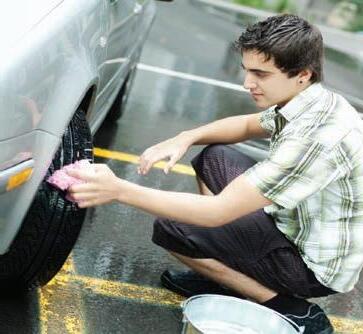
3 To save a lot of money it is best to … . a) borrow it b) get a part-time job
4 The article advises you to … . a) think before you buy b) buy and then think
1 How can you get a lot of money by your 30th birthday?
2 How can you get a new phone if you haven’t got much money?
3 Why is it a good idea to buy second-hand products?
4 What part-time jobs can you get to earn more money?
5 Is it a good idea to buy something that you don’t really need?

A teenager’s average pocket money in the UK is about £6.50 a week.
Collaborative project 1 page 124 Make a poster about your favourite charity or organization. Work in small groups.

25 Module 2
Word check second-hand part-time powerful Facts
Grammar
The adjective: comparative and superlative forms
AdjectiveComparative
Superlative
Short adjectives cheap large big cheaper (than) larger (than) bigger (than) the cheapest the largest the biggest
-y adjectives noisy noisier (than) the noisiest
Long adjectives expensive more expensive (than) the most expensive
Irregular adjectives good bad much many little far better (than) worse (than) more (than) more (than) less (than) farther / further (than) the best the worst the most the most the least the farthest / furthest
1 Write the comparative forms of the adjectives.
thin → thinner
1 heavy 6 fat
2 beautiful 7 young
3 new 8 difficult
4 large 9 old
5 rich 10 intelligent
2 Complete the sentences with the comparative form of the adjectives in brackets.
Dogs are … (intelligent) than most cats. Dogs are more intelligent than most cats.
1 Second-hand products are … (cheap) than new ones.
2 Gold is … (expensive) than silver.
3 A €1 coin is … (big) than a £1 coin.
4 Bill Gates is … (rich) than most people.
5 Buckingham Palace is … (old) than Big Ben.
3 Rewrite the sentences so they are true for you.
My school bag / my pencil case (small)
My school bag isn’t smaller than my pencil case.
1 My school bag / my shoes (heavy)
2 My pen / my pencil (new)
3 My English book / my maths book (difficult)
4 My hands / my friend’s hands (large)
5 I / my friend (young)
Language reference page 135
4 Complete the sentences with the superlative form of the adjectives.
The blue whale is the … (big) animal in the world. The blue whale is the biggest animal in the world.
1 Oxford Street is the … (busy) shopping street in London.
2 Lakshmi Mittal is the … (rich) resident in London.
3 The Lanesborough is the … (expensive) hotel in London.
4 The bus is the … (cheap) form of transport for under-16s.
5 The Shard is the … (tall) building in London.
5 Write five questions about where you live using the superlative form. Use the words in the box.
high / mountain good / football team long / river rich / person tall / building
6 Ask and answer your questions in exercise 5. The highest mountain is … . What is the highest mountain?

26
The forms of the genitive: expressing possession
‘s / ‘ – genitive proper nounsRonny’s bike is blue. nouns in the singularThe girl’s dress is fashionable. irregular pluralsThe children’s toys are new. regular pluralsThe boys’ bikes are in the garden.
Rules
We use ’s and ’ mostly for people.
Sarah is Emily’s aunt. Where is the ladies’ shower?
We use of – genitive mostly for things and animals. The window of the room was broken.
7 Complete the sentences with ’ or ’s:
My parents … car is not expensive.
My parents᾿ car is not expensive.
1 Bill … blue car is in the garage.
2 Mr. John … secretary is here.
3 They sell ladies … clothes in this store.
4 The doctor … kids are very nice.
5 The women … boyfriends are late.
6 My friends … cousins are beautiful.
8 Write the correct form of the possessives into the gaps.
My … cakes are delicious. (grandmother)
My grandmother᾿s cakes are delicious.
1 These are my … cats. (friends)
2 Let’s meet at … for lunch. (Giovanni)
10 Complete the dialogue with the correct form of the verbs in brackets.
of – genitive for thingsThe building offers a beautiful view of the city for animalsThe tail of the horse is long and fluffy.
3 This is our … car. (boss)
4 My … dad is my uncle. (cousin)
5 Our grandparents live in an old … home. (people)
9 Choose the correct form of the genitive: ’s or of.
The book᾿s cover / The cover of the book is dark red.
The cover of the book is dark red.
1 Tom’s camera / the camera of Tom is very expensive.
2 The new principal of the school / school’s principal came on the trip.
3 The children of Mary / Mary’s children are studying abroad.
4 The building’s groundfloor / the groundfloor of the building was renovated.
5 My father’s birthday / the birthday of my father is in August.
Language reference page 135
Grammar
Joe Excuse me, how much (0)is (be) this T-shirt?
Assistant It (1)… (be) £8.99.
Layla That looks great, Joe, and it’s cheap. I (2)… (think) it (3)… (suit) you. How much (4)… (be) these earrings?
Assistant They (5)… (cost) £6.
Joe Let’s buy the T-shirt and the earrings. I’m paying!
Layla But Joe, that’s a lot of money!
Joe It (6)… (be) your birthday today and I (7)… (want) to offer you a gift!
Layla Oh, OK. Thanks, Joe!
11 Listen and check your answers.


27 Module 2
12345678
2b
Computer equipment
Vocabulary
1 Listen and repeat the words. desktop • flash drive • keyboard • laptop • memory card • mouse • printer • scanner • screen • speakers • webcam
2 Match pictures 1–6 with the computer equipment in exercise 1. Which items of equipment are not in the pictures?




3 Complete the definitions with words from exercise 1. Speakers are used to connect to a computer or laptop to produce sound.
1 A … is a computer that sits on a table or desk.
2 You move the … to do things on the computer screen.
3 A … is a camera which is connected to a computer.
4 You use a … to type information into the computer.
5 If you want to read your essay on paper, you need a … .
4 In pairs, answer the questions.
1 Have you got a laptop or a desktop?
2 Do you use computers at school? In which subjects?
3 What is the most useful piece of computer equipment?
Listening
Online swap shop


PERSONAL PROJECT
Get started – Microsoft Word Follow the link: https:// www.youtube.com/ watch?v=eDEVNcSArlc
Watch the video and fulfill some basic instructions in Microsoft Word as follows: open a document, copy an interesting picture from the internet on that document, save it and then print it.
6 Listen to the advertisement and choose the correct description. At My Online Swap Shop website, you can… a) sell your possessions for money.
b) swap your possessions for other things. c) lend and borrow things.
7 Listen again. Are the sentences true or false? Correct the false sentences.
1 First, you need to give your details to the website.
2 You don’t need to take a photo of your possessions.
3 The website gives you points for your possessions.
4 The memory card gets more points than the speakers.
5 You pay for things with a credit card.

28
28
1 2 6 4 3 5 5
Unit
Speaking
Going shopping
Listen to the dialogue. What does Zoe buy?
Model dialogue

Zoe
Speaking task
1 Going shopping
Read the information and decide what you want to buy.
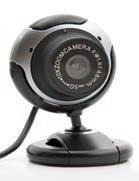

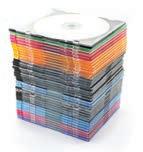
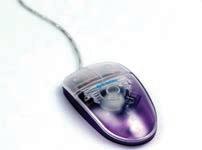

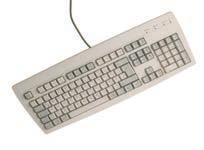
Shop assistant
speakers

2 Now you speak!
Look at the Model dialogue. Prepare a new dialogue by changing the words in blue and practise it with a classmate.
This webcam is great. How much is it?
It’s £40.
Pronunciation
Comparative -er endings /ə/
a Listen and repeat.
cheaper computer newer smaller
b Listen to the sentences and repeat.
1 People donate computer games to charity.
2 Charity shops are cheaper.

29 Module 2
Useful language £10 £15 £10 £40 £5 £20
Writing
A description of an object
1 Read the Model text and listen. Then answer the questions.
1 How heavy is Jessica’s laptop?
2 Where does she have it from?
3 What does Jessica do with her laptop?
My favourite thing
I’ve got a beautiful, small grey laptop. It isn’t heavy – it only weighs 2 kg – and it’s got an 11-inch screen. It comes with a lovely blue bag.
I have it from my mum. It’s a birthday present and I really like it!
I use it a lot. I do my homework on it. In my free time I often play games, I sometimes listen to music and I chat with my friends on it all the time. It’s great! It’s my favourite present.
2 Look at the Tips. Find examples of adjective word order in the Model text.
Tips
Adjective word order
We use adjectives to make descriptions more interesting. With two or more adjectives together, we use the following order: A beautiful, small, grey laptop.
3 Look at the example in the Tips. Complete the table with the words in the box.


5 Writing task
1 Plan
Choose your favourite object. Make notes and include:
Appearance I’ve got a new red … . Where do you have it from I have it from … .
How you use it and your opinion I use it to … / I like / love it because … .
2 Write
Use the Model text, your notes and this structure:
Paragraph 1 Description
Paragraph 2 Where do you have it from Paragraph 3 What you do with it and why you like it
4 Rewrite the sentences with the adjectives in brackets.
My grandparents have got a large cupboard. (old)
My grandparents have got a large, old cupboard.
1 I’ve got a black smartphone. (brilliant)
2 I want to buy a new dress for my birthday. (purple)
3 This black bag is the cheapest in the shop. (small)
4 I love my cousin’s blue earrings. (antique)
3 Check present simple comparatives and superlatives vocabulary for money and computer equipment adjectives
Model text
beautiful grey new small OpinionSize Age ColourNoun lovelybigold red phone 1
3 4 watch
2
30
Self-check 2 Reading and writing

Some people in the UK don’t throw out any of their unwanted things. They sell or swap them on the internet or they donate them to charity. The most popular second-hand items are clothes, books, CDs and computer games.
Some charity organizations, like Oxfam and Cancer Research UK, have their own second-hand shops. Volunteers work in these shops. Charities don’t pay volunteers any money. The shops receive second-hand items from members of the public and then sell them to make money for the charity.
People spend money in charity shops for many reasons. For example, you can save a lot of money because charity shops are cheaper than normal shops. You often find more interesting things, too. Also, it is a way for people to give some money to their favourite charities.



31 1 Read and listen. Then answer the questions. 1 What do many people in the UK do with their unwanted things? 2 What are the most popular second-hand items? 3 What is a charity shop? 4 Who works in charity shops in the UK? 5 Why do people buy things in charity shops? ---- / 15
2 Writing Write about an object you love. Mention: • what it is; • how you got it; • what it looks like; • why you like it. Use 50–70 words. ---- / 15 31 Module 2
Module Progress Check
Self-check 2 Vocabulary and grammar
7 Turn the words in brackets into a possessive form (’s, ’ or of ).
1 Every summer he buys paint for … (the door – the garage).
2 She has … (a feeling – disappointment).
3 It was … (decision – your father).
4 I can’t believe … (the boy – the story).
5 Go to … (the back – the house).
8 Complete the dialogue with the correct form of the verbs in brackets.
Will Excuse me, how much (1) … the DVD … (cost)?
Assistant It (2) … (be) £3.99.
Will Can I (3) … (test) it with headphones?
Assistant Yes, of course!
Lou This DVD (4) … (sound) great, Will, and it’s cheap. I (5) … (like) buying DVDs of this band because they (6) … (be) very talented. How much (7) … these posters … (cost)?
Assistant They (8) … (be) £6.
Will I (9) … (buy) the DVD and the posters right now and I (10) … (pay) for them!
Lou But Will…
Write sentences with the comparative form of the
Will It is your birthday today and the posters are for you! Happy birthday, Lou!
Lou Thanks, Will. I love those posters! ---- / 20
Total ---- / 100
Now I can:
Ø talk about money & computer equipment; Ø correctly use comparative and superlative forms & the forms of the genitive;
Ø talk about buying and selling; Ø write the description of an object.
5
32 3 Complete the letters to make up words. 1 b rr 4 ap 2 s n 5 s e 3 e r ---- / 10 4 Write the parts of the desktop. 1 2 3 4 5 ---- / 10 5
WeightPriceSpeed laptop2.68 kg€300 ✓ desktop12 kg€350 ✓ ✓ 1 heavy 3 cheap 5 slow 2 expensive 4 fast ---- / 10 6
of the
brackets.
adjectives.
Write complete sentences using the superlative form
adjectives in
high
mountain in the UK.
Russia is (big) country in the world. 3 Waterloo is (busy) tube station in London. 4 Caviar is (expensive) food in the world.
1 Ben Nevis is (
)
2
Tokyo is (large
city in the world. ---- / 10
)
---- / 10
Don’t forget to complete the Behaviour observation sheet according to the example on page 7!
OUTDOOR SURVIVAL
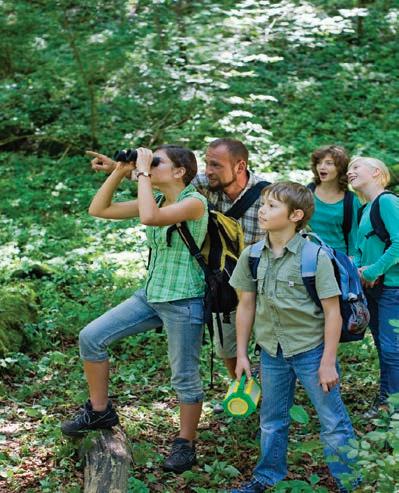
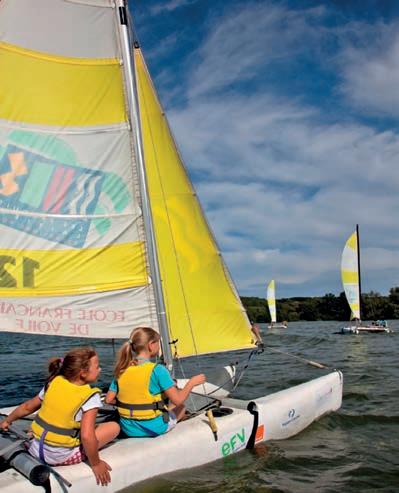
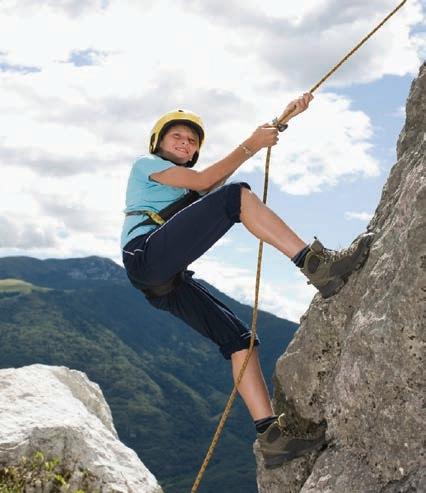
IN THIS MODULE YOU WILL LEARN:
Vocabulary
Grammar
• Outdoor activities
• Feelings
• Present continuous
• Present simple and present continuous
Reading • Microblogging and a wiki page: Wild Camping
Speaking
Writing
Self-check 3
• Planning a weekend trip
• A blog entry
• Reading and writing
• Vocabulary and grammar
Find the page numbers for:
Ø a tent on the beach
Ø a poster about a weekend trip
Ø a map of the United Kingdom
Competences:
33
1.1; 1.3; 2.1; 2.3; 2.4; 3.2; 3.4; 4.3.
3a Unit Outdoor activities
Vocabulary
1 Listen and repeat the words. Match them with pictures 1–10.
build • camp • chop • climb • cook • find • fish • hike • look for • sleep

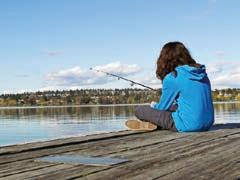

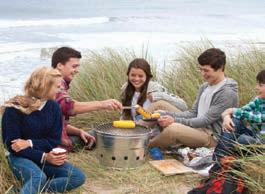
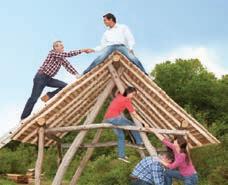

2 Choose the correct words.
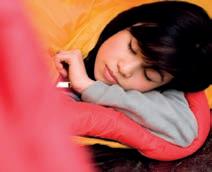

1 I sometimes camp / find in the mountains with my family.
2 We often hike / fish in the river for our food.
3 We usually sleep / climb in a big tent.
4 Sometimes, my mum and dad build / chop a shelter from wood.
5 In the morning, we look for / cook wild fruit for our breakfast.
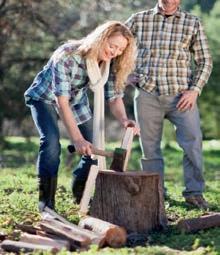
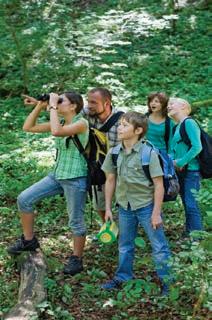
3 Listen to Erik and John. What outdoor activities does John do?
4 In pairs, ask and answer questions about the outdoor activities you do. Do you do any outdoor activities?
Yes, I hike and I climb mountains.
34
1 5 2 3 4 6 7 8 9 10
Microblogging and a wiki page
Word check
awesome put up (a tent) waves without
1 Look at the photos and title. What do you think ‘wild camping’ means?
2 Read and listen to the texts. Check your answer to exercise 1.
Wild Camping
• Home
• Videos
• Web map

Marco Adams @MarcoGAdams • 5 h I’m with Ollie. We’re hiking in Scotland. Awesome view!

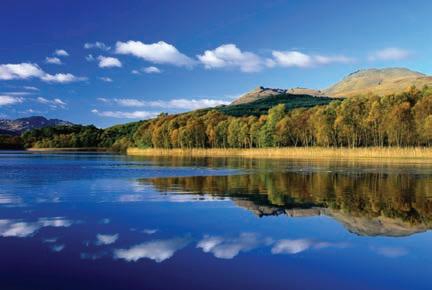
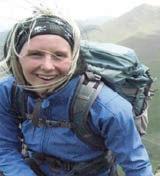
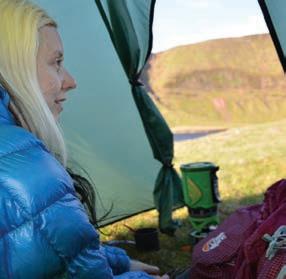
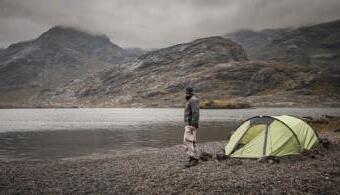
Marco Adams @MarcoGAdams • 3 h
We’re looking for a place to sleep. There’s an old building a few miles away, but it’s getting dark. The beach looks good!
Open Favourite Repost Reply


Marco Adams @MarcoGAdams • 2 h
We’re putting up the tent. The waves are crashing onto the beach - Ollie’s worried!
Open Favourite Repost Reply
Marco Adams @MarcoGAdams • 1 h
Ollie’s outside. I’m relaxing in my sleeping bag. Tomorrow, we’re getting up with the sun. Good night!
Open Favourite Repost Reply
Wild camping is a popular outdoor activity in Britain. It means camping without the comforts of a campsite, like showers or shops.
Everyone can enjoy wild camping – you just need a sleeping bag, a tent and some warm clothes. It’s also a good idea to learn some basic survival skills: how to build a shelter, find food or purify water. It’s very important to respect the natural environment. Don’t build fires or chop down trees and always take away your rubbish.
Phoebe Smith is an expert wild camper. She often tweets or blogs about her adventures and is the author of a book about wild camping called Extreme Sleeps. She goes camping in all weather. She usually sleeps in a tent, but she also camps in caves or old buildings. And when the weather is good, she sometimes sleeps outside under the stars.
Facts
You can go wild camping anywhere in Scotland. In the rest of Britain, you need permission first.

3 Read the texts again. Correct the information underlined in these sentences.
1 Marco and Ollie decide to camp in an old building.
2 Ollie is excited about the waves.
3 Tomorrow, Marco and Ollie are getting up late.
4 Only experts can go wild camping.
5 Phoebe Smith never sleeps in a tent.
4 Answer the following questions.
1 What survival skills does the text mention?
2 What ‘dos’ and ‘don’ts’ for wild camping does it mention?

35 Module 3
Reading
Open Favourite Repost Reply
Grammar
Present Continuous
I am eating. I’m not eating. Am I eating?
Yes, I am. / No, I’m not.
He / She / It is eating.He / She / It isn’t eating Is he / she / it eating? Yes, he / she / it is. / No, he / she / it isn’t
We / You / They are eating. We / You / They aren’t eating.
Rules
• for most verbs add -ing play → playing
• for verbs that end in -e, omit the -e and add -ing dive → diving
Are we / you / they eating?
• for verbs that end in -ie, change the -ie to -y and add -ing die → dying
• for one-syllable verbs that end in a short vowel + a consonant (except w, x or y), double the consonant and add -ing hit → hitting
1 Complete the sentences with the present continuous form of the verbs in brackets.
These young people … (learn) how to sail. These young people are learning how to sail.
1 They … (sleep) on the catamaran for a week.
2 The group leader … (put on) his life jacket.
3 The instructor … (demonstrate) the safety instructions.
4 The cook … (make) dinner in the kitchen.
5 They … (have) a fantastic time!

2 Complete the text with the present continuous affirmative and negative form of the verbs in brackets.
Zaida’s BLOG
Home | Recent post
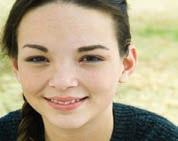
My name is Zaida and I (0) am writing (write) my diary on a catamaran. I (1)… (share) a cabin with Shannon and Kiera. At the moment, they (2)… (not work) on the boat. My brother Mario is also here, but today he (3) … (not feel) well. He (4)… (rest) on his bed. We (5)… (try) lots of new activities. It’s great!

16:32
Yes, we / you / they are. / No we / you / they aren’t.
• for two-syllable verbs that end in a stressed vowel + a consonant, double the consonant and add -ing begin → beginning
3 Write complete questions. you / eating well?
Are you eating well?
1 you / sleep in a bed?
2 the sun / shine?
3 Mario / make / new friends?
4 Shannon and Kiera / have / a good time?
5 you / swim / in the sea?
4 Listen to Zaida and her mum. Check your answers to exercise 3.
5 Read the rules on the use of present simple and present continuous, page 37. Choose the correct verb form.
Sophie lives / is living in Liverpool, but now she enjoys / is enjoying her holiday in London.
1 Charlie and Leah are friends but they usually do / are doing completely different things.
2 Charlie is sporty. He always plays / is playing sports.
3 Leah is very different. She sings / is singing in the choir once a week.
4 This week they swap / are swapping families.
Posted
36 Language reference page 136
by Zaida,
Negative Interrogative Short
Affirmative
answers
Present simple and present continuous
Present simple Present continuous
Expressing habits: We have dinner at 7 pm every evening.
Expressing routines: I take the bus to school every morning.
Expressing timetables, schedules, programmes: The plane leaves at 8.
Expressing permanent states: She lives in Edinburgh.
Time expressions: every day / weekend / year, etc. always, usually, never, on Mondays, once a week etc.
6 Choose the correct tense (present simple or present continuous) for each sentence.
Sophie lives / is living in Liverpool, but now she enjoys / is enjoying her holiday in London. Sophie lives in Liverpool, but now she is enjoying her holiday in London.
1 We have / are having lessons every morning.
2 I usually visit / am visiting my friend, Mary on Sundays.
3 She watches / is watching TV at the moment.
4 Right now, they don’t ride / aren’t riding their bicycles.
5 The plane arrives / is arriving in Madrid at midday.
7 Ask and answer the questions. Use the words below and the present simple or present continuous.
9 Complete the dialogue with the correct form of the verbs in brackets.
Expressing actions happening at the time of speaking: I’m having dinner at the moment.
Expressing temporary situations: He’s looking for a new job these days.
Time expressions: at the moment, now, this week, these days, today, etc.
What / you / do / now? What are you doing now?
1 What / sports / you / usually / do?
2 How often / you / go camping?
3 What / your teacher / do / at the moment?
4 What / you/ usually/ have/ breakfast?
5 What / your friend/ do/ right now?
8 Copy and complete the table using the time expressions in the box. always at the moment every weekend never now once a week on Mondays this week today usually sometimes often currently rarely in the evening right now at the weekend at present
Present simplePresent continuous always
Grammar
Tim It’s Saturday. What (0) are you doing (do) today?
Jon Well, I usually (1)… (play) tennis on Saturdays.
Tim (2)… you … (play) today?
Jon No, I’m not. My friends (3)… (take) part in a tournament these days, but I (4)… (not go).
Tim Today we (5)… (go) on a fishing trip. Do you want to come?
Jon Yeah, OK. When?
Tim We (6)… (leave) at 5 pm.
Jon Do I need to prepare anything?
Tim No, you don’t. My dad always (7)… (prepare) the equipment.
Jon OK. See you later!
10 Listen and check your answers.
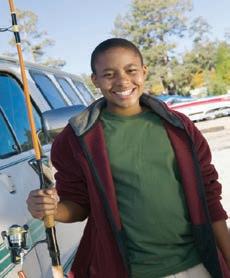

12345678 37 Module 3
3b Unit Feelings
Vocabulary
1 Listen and repeat the words.
angry • bored • embarrassed • excited • jealous • nervous • pleased • sad • scared • surprised • tired • worried
2 Match pictures 1–6 with the feelings in exercise 1. Which feelings aren’t in the pictures?
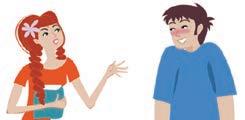
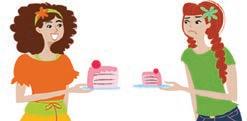
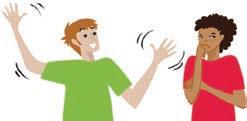
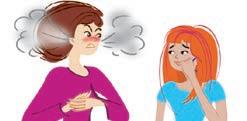


3 Answer the questions so they are true for you. Use words from exercise 1. How do you feel … before an important exam? I feel nervous.
1 when you see an enormous spider?
2 when someone breaks your things?
3 after a long day at school?
4 when you don’t pass an exam?
4 Ask and answer the questions in exercise 3.
Listening
Life with a Tribe
5 Read the following information about a TV programme. What type of programme is it?
Life with a Tribe Channel 3 9 pm
Watch how Charlie Timms and his family are surviving, as they live and eat with a tribe in the African savannah in this new documentary series.
6 Listen to the interview with Charlie Timms. Are the sentences true or false? Correct the false sentences.
1 Charlie is getting up at the same time as always.
2 Today, he is making lunch for a lot of people.
3 What is Charlie afraid of?
4 At the moment, his children are resting.
5 His children are learning many new skills.

7 Listen again and answer the questions.
1 Why is Charlie getting up at 6 o’clock?
2 What is Charlie doing later?
3 What are your parents doing at the moment?
4 What are his children doing now?
38
1 2 3 4 5 6
Speaking
Planning a weekend trip
Listen to the dialogue. Where are Irina and David going this weekend?
Model dialogue

camping school
Irina at half past four Thursday afternoon the food
Speaking task
1 Talk about a weekend hobby
Read the posters and choose a trip.
2 Now you speak!
Look at the Model dialogue. Prepare a new dialogue by changing the words in blue and practise it with a classmate.
Are you going on the sailing weekend?
David in front of the supermarket

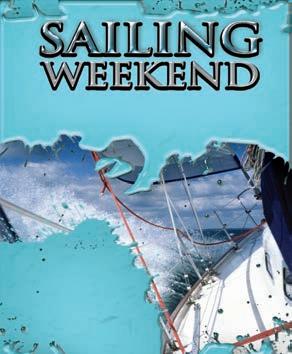
WITH THE SCOUTS
17th–19th
You need:
• waterproof jacket and shoes
• sunglasses
Yes, I’m really excited! Let’s buy our shoes together.
• SUNGLASSES
• SUN SCREEN
• LUNCH
Useful language /s/ a Listen and repeat. summer sleep swim survival
b Listen to the sentence and repeat.
At some summer camps you can swim in the sea.

39 Module 3
DAY TRIP WITH THE YOUTH CLUB 2 ND –4 TH
Pronunciation
Writing
A blog entry
1 Read the Model text and listen. Then answer the questions.
1 Where is Tommy?
2 What is he doing on the first day?
3 Who is he with?
4 Is everyone having a good time?
Model text
We’re in Cornwall, in the southwest of England. Today we’re hiking along the coast and I’m excited!
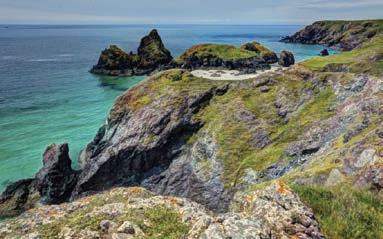
There are three of us in the group. The leader is Michael. He’s a PE teacher. He often walks long distances. My dad is with us, too. He loves climbing mountains. And finally, there’s me. I don’t usually like adventures, but I’m having a good time. My sister isn’t here because she’s studying. She’s jealous!
Tonight we’re camping outdoors and Michael and Dad are building the shelter. Everyone is happy!
Posted by Tommy, 10:45
2 Look at the Tips. Find examples of and, but and because in the Model text.
Tips
Conjunctions
We use and, but and because to join sentences, as the following examples illustrate:
We’re hiking along the coast and I’m excited!
I don’t normally like adventures, but I’m having a good time. My sister isn’t here because she’s studying.
3 Copy and complete the following sentences with and, because or but.
They’re looking for food … they’re hungry.
They’re looking for food because they’re hungry.
1 He likes fishing … he doesn’t like eating fish.
2 I’m chopping wood … I’m building a fire later.
3 It’s a fantastic day … I’m happy.
4 PERSONAL PROJECT A day in London
Follow the link and print the map. https://mapcollection.wordpress. com/2012/07/22/tourist-map-of-london/ Bring the map to class. You are in front of Buckingham Palace. Choose three sights that you want to visit with your classmates. Mark the attractions on your map. Find your way to these London sights.
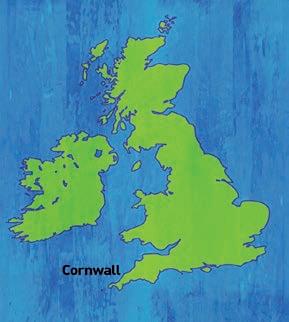
5 Writing task 1 Plan
Make notes for a blog entry and include: Location I’m in … . Current activities At the moment, I’m / we’re … .
Your companions There are … of us in the group.
Your plans Tonight / Tomorrow, I’m / we’re … .
2 Write
Use the Model text, your notes and this structure:
Paragraph 1 Your location, what you are doing
Paragraph 2 Your group
Paragraph 3 Your plans, your feelings
3 Check
present continuous for activities in progress present simple future plans vocabulary for outdoor activities and feelings conjunctions
40
Self-check 3 Reading and writing

Every year, more than 10 million young people go to one of the 12,000 summer camps across the USA. There are speciality camps where children learn specific skills. There are adventure camps where children sleep outdoors, hike in the mountains or swim in the sea. There are sports camps and even rock camps where young people learn to play musical instruments.
In the UK, Woodcraft Folk organizes summer camps during the school holidays. Thousands of teenagers called Venturers aged between 13 and 15 attend the camps. They learn practical survival skills such as building shelters and cooking outdoors. They also learn about the environment, world peace and global issues. The teens in this photo are making a fire. There are also games and competitions. This year, they’re having a competition to design a new membership badge.



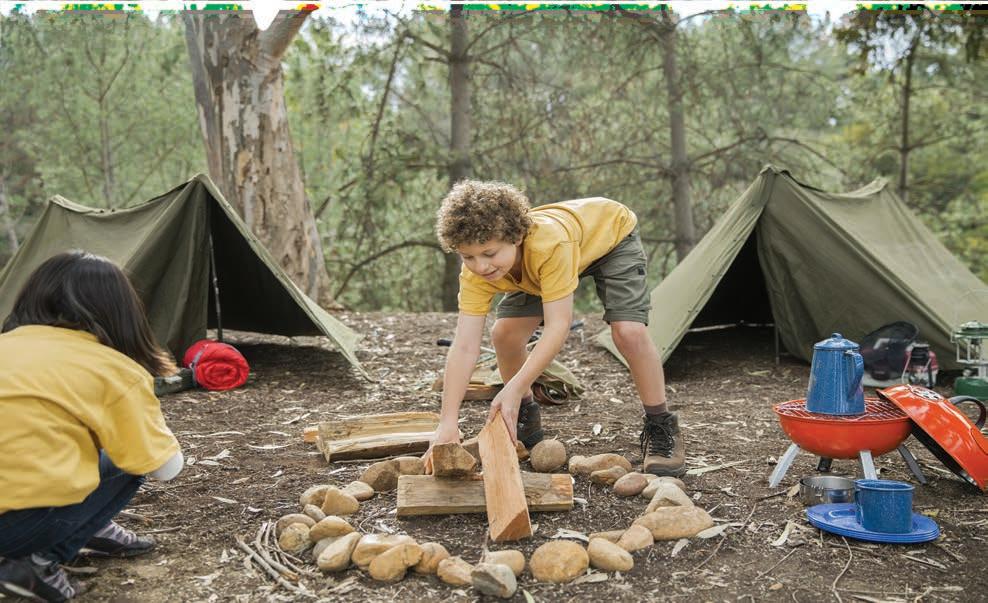
1 Read and listen. Then answer the questions.
1 How many people go to summer camps in the USA?
2 What different kinds of summer camps are there in the USA?
3 What do children learn about at the Woodcraft Folk camps?
4 What competition is Woodcraft Folk having this year?
5 What activities do you enjoy when you go on trips or camps? ---- / 15
2 Writing
Write a blog entry from a summer camp you are participating in. Mention:
• where you are;
• what activities the camp offers;
• what your daily programme is;
• why you like being on the camp.
Use 50–70 words. ---- / 15

41 Module 3
Self-check 3 Vocabulary and grammar
3 Match 1–5 with a–e to make outdoor activities.
1 build a) food
2 chop b) wood
3 climb c) trees
4 hike d) in the mountains
5 cook e) shelters
4 Choose the correct words.
/ 10
1 I feel angry / excited when people tell me lies.
2 My sister feels tired / nervous when she meets new people.
3 My brother feels worried / embarrassed before getting exam results.
4 Frank is surprised by / sad about meeting his favourite singer.
5 Dervilla is pleased / scared with her exam results.
/ 10
5 Choose the correct words.
1 My cousin lives / is usually living in New York.
2 At the moment he stays / is staying with us.
3 In New York he plays / is playing basketball every day.
4 He doesn’t play / isn’t playing basketball today.
5 We fish / are fishing in the river now. ---- / 10
6 Complete the sentences with the correct form of the verbs in brackets.
1 He … (climb) trees in summer.
2 They … (not build) camps on holidays.
3 I … (not chop) wood now.
4 We … (sleep) outdoors tonight.
5 You … rarely (cook) in the forest. ---- / 10
7 Complete the following sentences with the correct time expression: at the weekend, at present, right now, every day, sometimes.
1 Do you watch TV … ?
2 She is preparing dinner … .
3 They … visit art galleries.
4 We play football … .
5 … he is reading an interesting book. ---- / 10
8 Complete the dialogue. Use the correct form of the verbs in brackets.
Will (1) … (be) you free after school today?
Lou Yes, I (2) … (be) but I usually (3) … (go) to scouts on Fridays.
Will Is there a scouts’ meeting today?
Lou No there isn’t. They (4) … (camp) these days but I (5) … (not go) with them.
Will We (6) … (fish) this afternoon. Do you want to come?
Lou Oh, yes please. What time?
Will Let’s (7) … (meet) at five o’clock next to the river.
Lou Do I need to bring anything?
Will No, you don’t. My dad always (8) (bring) the equipment.
Lou What about food?
Will My mother always (9) … (cook) the food and my cousin (10) … (buy) the drinks.
Lou Sounds good. See you then!
Will Great! See you then! ---- / 20
Total ---- / 100
Now I can:
Ø talk about outdoor activities & feelings; Ø correctly use present tense simple & continuous;
make plans;
write a blog entry.
42
----
----
Don’t forget to complete the Behaviour observation sheet according to the example on page 7!
Ø
Ø
AMBITIONS

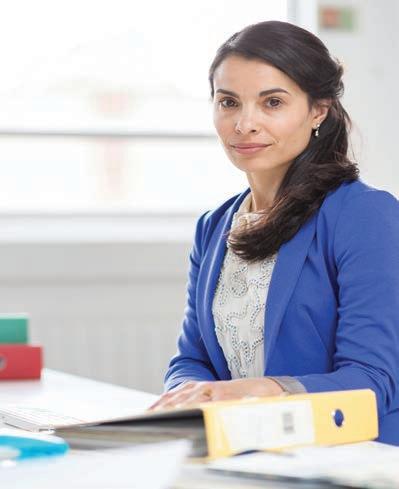

IN THIS MODULE YOU WILL LEARN:
Vocabulary
Grammar
Reading
Speaking
Writing
Self-check 4
• Life events
• Musical instruments
• Prepositions of time
• Telling the time
• Ordinal numbers
• An infographic: Demographics
• In a music shop
• A class survey
• Reading and writing
• Vocabulary and grammar
Find the page numbers for:
Ø a bride Ø a tambourine
Ø a bar graph
Competences: 1.1; 1.3; 2.1; 2.4; 3.2; 3.4; 4.2.
43
Vocabulary
1 Listen and repeat the words. Match them with pictures 1–12.
be born • buy a house • get a job • get married • go to university • have children • learn to drive • leave home • leave school • start school • train to be a … • work
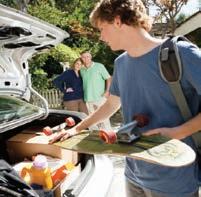
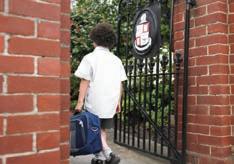
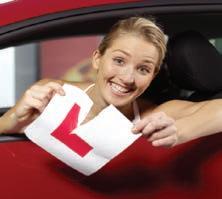



2 Choose the correct words.
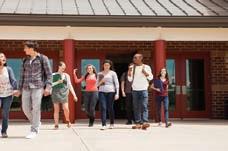


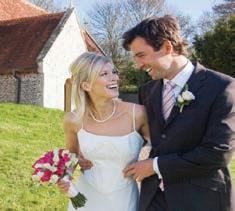


He hopes to get a job / buy a house at the police station where his father works. He hopes to get a job at the police station where his father works.
1 When I am 18, I want to start school / go to university to study chemistry.
2 My brother learns to drive / trains to be a car.
3 In the UK, you can leave / start school when you’re 16.
4 My mum leaves home / works as a doctor in Madrid.
5 They want to have children / be born when they are 30.
3 Listen to Alice and Matt. What are their life ambitions?
4 In pairs, ask and answer questions about your life ambitions. What do you want to do in the future? I want to learn to drive when I’m 17.
44
2 3 4 1 5 6 7 8 9 10 12 11
4a Unit Life
events
If you want to know your future, look at the demographics for your country, not your horoscope. Demographics are real statistics about real places. Here are a few examples …
LEAVING HOME
As you’re a British girl, you’re probably leaving home when you’re about 23. The average British boy isn’t leaving home until he’s nearly 25. In Spain, a girl is leaving home at about 27, but a boy isn’t leaving until he’s nearly 30. In Finland, the average girl is leaving home at 21 and a boy at 23.
GETTING MARRIED
A person born in the UK, Spain or Japan is getting married for the first time at about 29 years old. In Bolivia or the USA, you are 23 or 24. If you’re German, you’re probably getting married at 30.
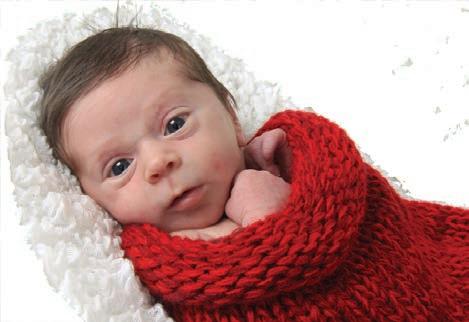
HAVING CHILDREN
In the USA, you probably have two children. British families have 1.9 children and in Spain they have 1.5. In Bolivia, the average family has 2.8 children.
Read the sentences. Which ones do you think are true? British boys leave home later than girls.
2 People get married younger in Spain than in Germany.
3 The Spanish have more children than people in the USA.
4 The Spanish live longer than the British.
2 Read and listen to check your answers.
3 Read the text again. Answer the following questions.
1 How old are most British girls when they leave home?
2 In which country are you getting married at 30?
AGE
How long do people live? Spain is a good place to live as you’re probably living to around 81. This is the same as Iceland (81) and better than the UK or the USA (80).
Facts
The country where most people have a very long life is Monaco. Why do you think Monaco residents live long?
3 How many children does the average family in the USA have?
4 Which country has the most children per average family?
5 According to the text, is Spain a good place to live? Why?
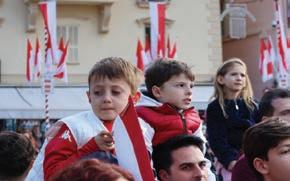

45 Module 4
demographics statistics average An infographic
Reading
Word check
25 30 23 23 27 21 ENGLAND SPAIN FINLAND
GERMANY SPAIN BOLIVA USA JAPAN UK 30 24 23 29 29 29
Prepositions of time
1 Look at Lisa’s diary and complete the sentences.

Wednesday 16th Thursday 17th Friday18th Saturday 9 am: English exam 11 am: meet Jane 10 am: swimming with Dad
5 pm: basketball 7 pm: pizza with friends 7 pm: Sally’s party!
I’m playing basketball … .
I’m playing basketball on Wednesday, at 5 pm. 1 We’re having an English exam … .
My dad and I are going swimming …
Sally is having a party …
Telling
the time
What time is it?
in July
in August
in (the) spring
in (the) summer
in (the) autumn
in (the) winter
in 2011
in 2021
in the 1990s
in the 18th century
in the 20th century
in the 21st century
in the morning / afternoon / evening
in a minute
in an hour
in a week
in a few days / months / years
in the past
in the future
2 Look at Lisa’s diary again and make notes about five activities you have to do next week. Then write sentences using the prepositions of time.
3 Fill in the gaps with the correct preposition of time, then answer the questions.
What are you doing … the moment? What are you doing at the moment?
1 What time do you get up … the morning?
2 What time do you eat dinner … night?
3 Do you go swimming … a hot summer day?
4 What do you do … the weekends?
5 What do you usually do … Sundays?
08:30 – It’s half past eight. – It’s eight thirty. (it is used in formal situations, such as a train timetable)
4 What time is it? Write full sentences.
It’s 4:55. It’s five to five.
1 It’s 8:15. It’s … .
2 It’s 11:25. It’s … .
3 It’s 12:00. It’s … .
4 It’s 9:30. It’s … .
5 It’s 3:45. It’s … .
What’s the time?
08:15 – It’s a quarter past eight.
– It’s eight fifteen. Can you tell me the time, please? 08:45 – It’s a quarter to nine. – It’s eight forty-five.
5 In pairs, ask and answer questions about your daily habits.
What time do you usually have breakfast? I usually have breakfast at 9 o’clock.
Grammar
15th
2
3
4
.
I have to meet Jane … .
My friends are having pizza with me … .
5
.
46 AT ON IN the
adjective+daymonthsseasonsyearscenturiesintheexpressions
•
o’clock •
10 o’clock •
•
•
•
•
•
•
• at
• at midnight •
•
•
•
Year’s Eve •
June 2010 •
April 2019 •
March 2020 •
•
•
•
•
•
•
•
•
•
•
•
•
•
•
•
•
•
•
•
•
•
•
•
•
timeholidaysintheexpressionsdaysdatesspecificpart ofaday
• at 5 o’clock
at 8
at
at Christmas,
at Easter
at the moment
at present
at dawn
at noon
at night
lunchtime
at the weekend
on Monday
on Sunday
on New
on 20th of
on 3rd of
on 1st of
on Tuesday morning
on Friday afternoon
on Sunday night
on a sunny day
on a cloudy day
on a cold day
in June
•
1 2 3 4 57 8 9 10 11 half past quarter past past quarter to o’clock 6 12
Ordinal numbers
1st – first 11th – eleventh 21st – twenty-first
2nd – second 12th – twelfth 22nd – twenty-second
3rd – third 13th – thirteenth 23rd – twenty-third
4th – fourth 14th – fourteenth 24th – twenty-fourth
5th – fifth 15th – fifteenth 25th – twenty-fifth
6th – sixth 16th – sixteenth 26th – twenty-sixth
7th – seventh 17th – seventeenth 27th – twenty-seventh
8th – eighth 18th – eighteenth 28th – twenty-eighth
9th – ninth 19th – nineteenth 29th – twenty-ninth
10th – tenth 20th – twentieth 30th – thirtieth
Rules
• We use ordinal numbers to express order and dates. We add -th to the cardinal number which we want to make ordinal.
My birthday is next month, on the 25th (twentyfifth) of August / on August, 25th.
• The ordinal numbers 1st – first, 2nd – second and 3rd – third are irregular.
• Be careful with the spelling of the words for 5th (fifth), 8th (eighth), 9th (ninth), 12th (twelfth) and the words ending in -y (20th – twentieth).
• When expressed as figures, the last two letters of the written word are added to the ordinal number: first – 1st; second – 2nd; third – 3rd
7
6 Arrange the words to write correct sentences. my mother / I /call / morning / on Saturday / usually. I usually call my mother on Saturday morning.
1 1 He / birthday party / his/ next Sunday / on the / 3rd of October / is having.
2 They / on the 1st of July / are going / next Monday to the seaside.
3 in a new flat / We / in February / are moving.
4 My friends / in summer / go camping / in the mountains.
5 My brother / is buying / a new sports car / in September.
Language reference page 137
Complete the dialogue with the correct form of the verbs in brackets.
Dad What (0) are you thinking (think) about?
Sarah I (1)… (think) about my future and I (2)… (not be) sure what subjects to choose.
Dad Oh! What (3)… (be) the options?
Sarah I (4)… (look) at the options at the moment. All my friends (5)… (plan) to study biology and chemistry.
Dad What kind of job do you want to do?
Sarah I sometimes (6)… (want) to work with animals.
But I also (7)… (want) to work with people.
Dad Well, (8)… (write) a list of your favourite subjects.
This usually (9)… (help) with taking a decision.
Sarah Thanks, that’s a good idea.
8 Listen and check your answers.
Grammar
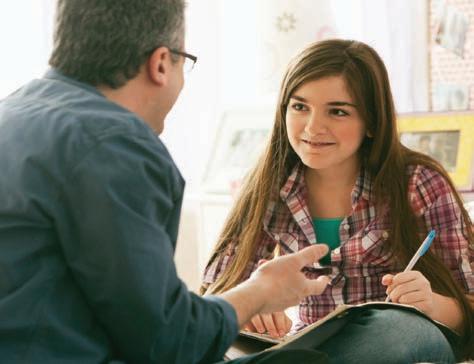

12345678
7 8901234567890
23456789012345678901234567890123456
8901234567890
1 23456789012345678901234567890123456
1
7
47 Module 4
4b Unit Musical instruments
Vocabulary
1 Listen and repeat the words. acoustic guitar • drums • electric guitar • flute • keyboards • piano • saxophone • tambourine • trumpet • violin
2 Match pictures 1–6 with the musical instruments in exercise 1. Which instruments are not in the pictures?
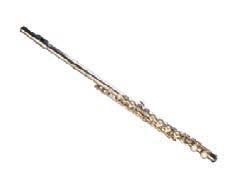
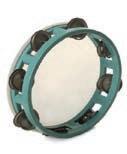
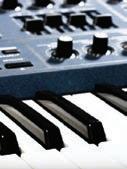
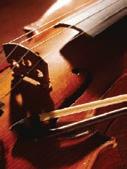
3 Complete the lists with the instruments in exercise 1.
1 Brass instruments: trumpet, … .
2 String instruments: acoustic guitar, … .
3 Wind instruments: flute, … .
4 Percussion instruments: drums, … .
5 Other: keyboards, … .
4 Which instruments in exercise 1 use electricity?
Listening
The road to success
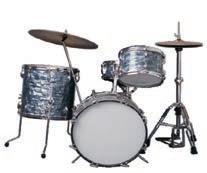

5 Ask and answer questions about the musical instruments in exercise 1. Can you play the keyboards?
No, I can’t. But I can play the guitar a bit.
6 Listen to the radio programme. Choose the best title. a) How to start a successful band b) How to write great songs c) How to be rich and famous
7 Listen again and answer the following questions.
1 Which one of these instruments does the speaker not mention? guitar drums keyboards trumpet piano saxophone violin
2 Do you need permission to play another band’s songs?
3 How often should you practise?
4 If you don’t practise, how do you sound?
5 How do people react if you don’t practise?

1 2 3 4 5 6
48
Speaking
In a music shop
Listen and read the dialogue. What does Dylan decide to buy?
Model dialogue
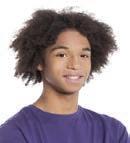
Dylan
I want to buy a guitar. Which one do you recommend?
Good idea! What do you think of these two?
Rock . Which guitar is better?
OK. Brilliant! Thanks, Max.
Max
I think an electric guitar is better if you want to play rock. You’re welcome. They both look fine. What kind of music do you want to play? Why don’t you buy a second-hand guitar? If you buy a new one, it is more expensive.

Speaking task
1 Talk about a musical instrument
Look at the musical instruments and decide which one you want to buy.

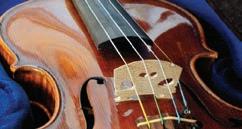
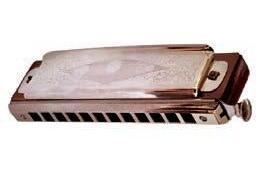

Useful
language
2 Now you speak!
Look at the Model dialogue. Prepare a new dialogue by changing the words in blue and practise it with a classmate.
I want to buy a harmonica. Which one do you recommend?
I think a second-hand one is better. If you buy a new one, it is more expensive.

49 Module 4
£15 £30 £250 £400
Writing
A class survey
1 Read the Model text. Which graph matches the text?
Model text
I asked my classmates about their future.
Do people leave school when they are 16?
No one leaves school when they are 16. Most students want to go to university.
Do people want to learn to drive when they are 18?
50 per cent of students learn to drive when they’re 18. A few students learn to drive when they are older.
Do people get married before they are 25?
No one gets married before they’re 25. Everyone wants to get a good job and buy a house first.
Do people want to become parents?
Most students want to have children. A few students want to have three children or more.
Tips
Expressions of amount
We use these expressions to talk about the results of a survey.
Everyone wants to get a good job. Most students want to have children.
50 per cent of students learn to drive when they are 18. A few students want to have three children or more
2 Complete the sentences with expressions from the Tips box.
No one gets married when they are 16.
(0 / 20 students)
1 … train to be nurses. (3 / 20 students)
2 … go to university before they get a job. (10 / 20 students)
3 … buy a house first. Then they want to get married. (18 / 20 students)
4 … wants to have children.
(20 / 20 students)
3
Writing task
1 Plan
Read the results of the other graph in exercise 1 and make notes.
2 Write
Use the Model text as an example. Look at the first graph and use the following structure:
Introduction The number of participants
Paragraph 1 The question (see the Model text), the results (see the graph)
Paragraph 2 The question (see the Model text), the results (see the graph)
Paragraph 3 The question (see the Model text), the results (see the graph)
3 Check
present continuous
present simple for general states vocabulary for life events amount: everyone, most, (50) per cent, a few, no one
50
leave school at 16 go to university good job and house learn to drive at 18 three or more children Number of students A leave school at 16 go to university goodandjob house learn to drive at 18 three or more children Number of students B 20 15 10 5 0 20 15 10 5 0

Self-check 4 Reading and writing Music in schools
Many teenagers in the UK form bands when they are at school. They practise in their parents’ houses or garages. Some hope to become famous one day but, in reality, most aren’t. Famous bands that formed at school include The Beatles, U2 and Red Hot Chili Peppers. If you want to be successful like these bands, you need talent, practice and luck!
A lot of children learn to play musical instruments when they are at school. The violin, piano and guitar are popular. Some schools have an orchestra. The orchestras sometimes compete against other schools in regional and national competitions. They sometimes travel to other countries.
Some teenagers sing in school choirs. Choirs sometimes sing classical songs, religious songs or traditional folk music. Gospel choirs are also popular in both the USA

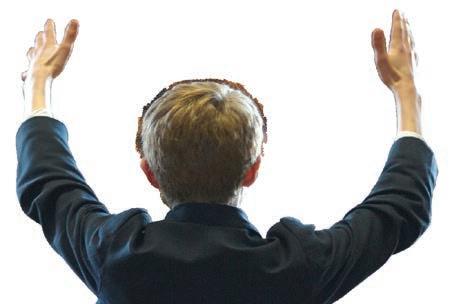
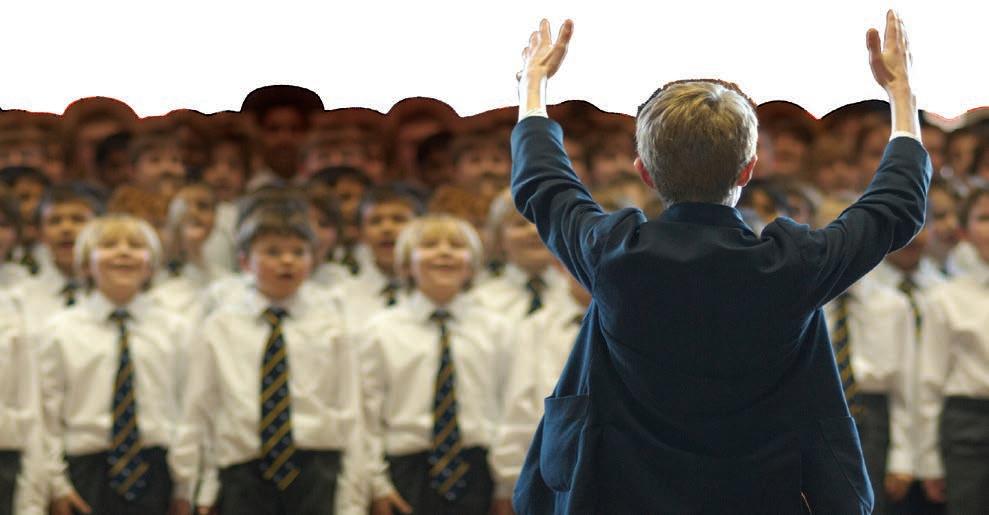
2 Writing Write about the most important event in your life up to now. Mention:
• why is it significant to you?
• is that one of your life ambitions?
Use 50–70 words.
---- / 15
Self-check 4 Vocabulary and grammar
3 Identify the





4 Order the letters and write the musical instruments.
1 oxophsaen 3 tpmtreu 5 nliivo
2 mudrs 4 rutgia ---- / 10
5 Find the first ten ordinal numbers.
6 Answer the following questions.
1 What is the first month of the year?
2 What is the fifth month of the year?
3 What is the twelfth month of the year? 4 What is the third day of the week?
5 What is the seventh day of the week? ---- / 10
7 Fill in the gaps with the correct preposition of time.
1 Her birthday is … the summer.
2 I have got a meeting … 25th May.
3 He works at a summer camp … August.
4 Unfortunately, Sarah is busy … present.
5 The French lesson starts … 9 o’clock. ---- / 10
8 Complete the dialogue. Use the correct preposition.
Andy Hi, Claire! What time is your English lesson (1) … Friday?
Claire Hi, Andy! It’s (2)… 9 o’clock and after that I have Science (3)… 11 o’clock. What about you?
Andy Cool! I’m not that lucky! I’ve got a Maths lesson early (4)… the morning, (5) … 8 o’clock and a French lesson after that.
Claire It doesn’t sound that bad! I know you like French! (6)… the weekend we can practice together if you want.
Andy Great! The problem is that I haven’t got a break today. We only stop (7)… noon for lunch.
Claire What time do you finish?
Andy (8)… a quarter to four. And you?
Claire I finish (9)… half past four. See you after school!
Andy Ok! See you (10)… the afternoon! ---- / 20
Total ---- / 100
Now I can:
Ø talk about life events & musical instruments; Ø correctly use prepositions of time & ordinal numbers;
Ø make suggestions & recommendations; Ø write a narrative about the most important event in my life.
52
1 b_ b_ _ _ 2 s_ _ _ _ s_ _ _ _ _ 3 g_ _ m_ _ _ _ _ _ 4 g_ _ a j_ _ 5 l_ _ _ _ t_ d_ _ _ _ ---- / 10
life events.
PETLIVIMHFWTN TAJSBCLTOTXEQ TPKERHFUNLRNJ MBLCGIROAIDTL SALOFTFVBSNHH REINHJAVEHDTB DDVDOCCFAUXOH RDQEJNJNDFOQX ITYVNSIXTHOIT HWBFHTHGIECGF TBRDVPHJPCFOZ FHAQKLUZVBNNG BALTJGZGAITBQ
---- / 10
Don’t forget to complete the Behaviour observation sheet according to the example on page 7!
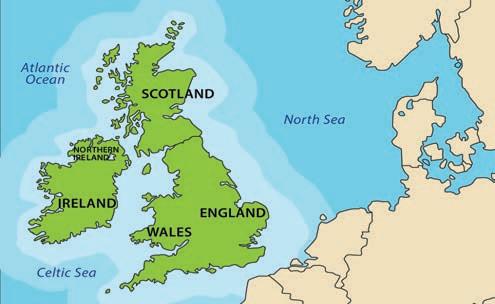
Geography Landmarks in the British Isles
1 March – The national day of Wales is St. David’s Day
St. David is Wales’s patron Saint, a Celtic monk and bishop who spread the word of Christianity across Wales. St. David’s day is commemorated by the wearing of daffodils or leeks. The Welsh flag depicts a red dragon on a background of green and white.
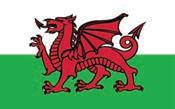
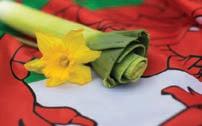
1 Read the text again. Complete the table below.
17 March – The national day of Northern Ireland is St. Patrick’s Day
St. Patrick is Ireland’s patron Saint. The national emblem of both Northern Ireland and the Republic of Ireland is the shamrock. This symbol explains the Holy Trinity.
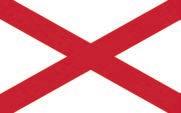
23 April – The national day of England is St. George’s Day
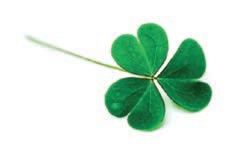
St. George is England’s patron Saint. The national flower of England is the red rose. This flower is England’ s emblem since the wars of the Roses (1455-1485).
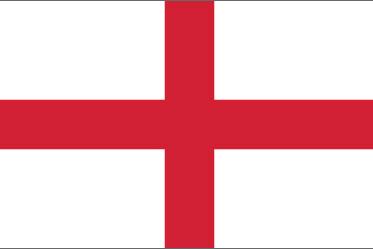

30 November – The national day of Scotland is St. Andrew’s Day
St. Andrew, one of Christ’s twelve apostles, is Scotland’ s patron Saint. The national flower of Scotland is the thistle and it is a symbol of defence.
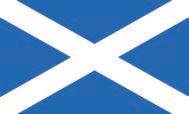
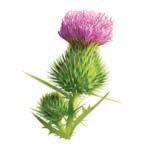
2 PERSONAL PROJECT Follow the link. Watch the video. https://www.youtube.com/watch?v=F59tB1yLWNQ
Draw or print a white map of the British Isles. Write and draw in the right boxes:
a) the four countries; b) the capital cities; c) the national flags; d) the flower symbols. Here is an example of a white map of the British Isles.
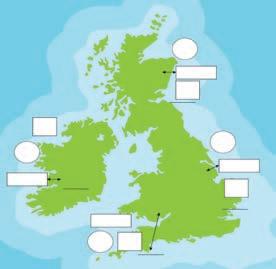
CLIL activities
REGION PEOPLE SAINT FLOWER
53
Vocabulary practice Round up 1 (Module 1-4)
Fill in the gaps with the right words.
START

You feel s… when you watch a horror film.
The opposite of excited is b… .
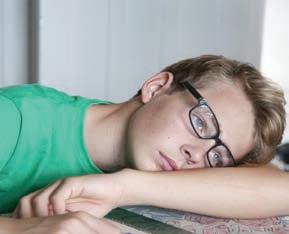

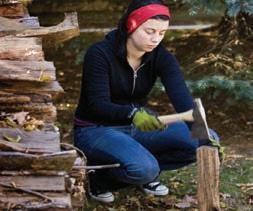
She is c… wood.
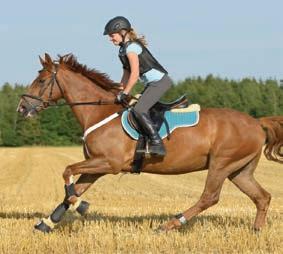
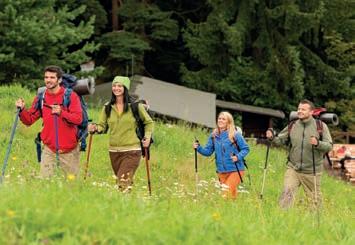
A film that makes you laugh. It’s a c… . Which ‘h’ is a walk in the countryside?

These are d… .
S… programmes show football and cycling on TV.



To s… means to travel by boat.
Which ‘c’ do you do with a tent?
54
I r… horses.
FINISH
Grammar practice Round up 1 (Module 1-4)
1 Write questions with the present simple. Then write short answers.
1 Sarah / eat / chocolate ice cream? (yes)
2 your friends / like / comedies? (yes)
3 your uncle / go / to school? (no)
4 you / buy / DVDs? (yes)
5 your classmates / watch / films? (no)
2 Choose the correct words.
1 My teacher goes / is going swimming every day.
2 My cousins often camp / are often camping in the summer.
3 We feel / are feeling nervous because we’ve got an exam now.
4 They win / are winning the race at the moment.
5 My best friend has / is having pizza once a week.
3 Fill in the blanks with the present simple or the present continuous form of the verb in brackets.
1 We … to the seaside next month. (go)
2 John … many vegetables every day. (eat)
3 My sister … to music every evening. (listen)
4 My best friend … a birthday party next Saturday. (have)
5 He … his grandparents next weekend. (visit)
4 Rewrite the sentences and put the adverbs of frequency in the correct place.
A recent report on British young people says …
1 Teenagers use the TV to help with their homework. (never)
2 They watch a variety of programmes. (always)
3 Their favourite programmes are soap operas and comedy programmes. (usually)
4 Boys watch more TV than girls. (often)
5 Girls turn on the TV after 9.00 pm. (rarely)
5 Choose the correct preposition of time.
1 My birthday is … June a) on b) in c) at
2 I have to leave … a minute. a) at b) in c) on
3 I have got a meeting … 20th March. a) on b) in c) at
4 Is John busy … present? a) on b) in c) at
5 I work at a camp … the summer. a) in b) on c) at
6 Complete the sentences with the comparative or superlative forms of the adjectives in brackets.
1 The bus station is … (busy) than the train station.
2 A basketball is … (big) than a football.
3 The elephant is … (large) land animal.
4 Kate is … (intelligent) person I know.
5 Everest is … (high) mountain in the world.
7 Complete the sentences with can or may to make a polite request.
1 … I use your car today?
2 … I sit here?
3 … you please get me a cup of tea?
4 … I ask you a question?
5 … I take your umbrella today?
6 … you come outside and play with us?
7 … you lend me this book, please?
8 … I borrow your bike?
9 … I have another cake, please?
10 … you help me with this translation?

55 Round up 1

Science
The solar system
The term ’solar system’ refers to the Sun and all the objects that travel around it. Experts believe that the solar system formed about 4.6 billion years ago. The Sun is at the centre of the solar system. The Sun isn’t a planet. It is a star. The rest of the solar system consists of planets, moons, dwarf planets, asteroids, comets, space rocks and dust.
The Sun contains an incredible 99.8% of all the material in the solar system. It has a powerful gravitational force. That means that everything in the solar system travels round, or orbits, the Sun. It takes approximately 365 days, or one year, for Earth to orbit the Sun once. While Earth is orbiting the Sun, it is also turning on its axis. One complete rotation takes 24 hours, or one day. Earth’s axis isn’t straight. It is at an angle of 23.5°. As a result, different parts of Earth receive different amounts of sunlight during the year. This creates the four seasons.
There are eight planets in the solar system. They are all named after Roman Gods, except Earth.
Read the text. Answer the question.
1 What does the ‘solar system’ include?
2 What is at the centre of the solar system?
3 How long does it take for Earth to orbit the Sun?
4 What leads to the creation of the four seasons?
56
CLIL activities
GOOD CITIZENS

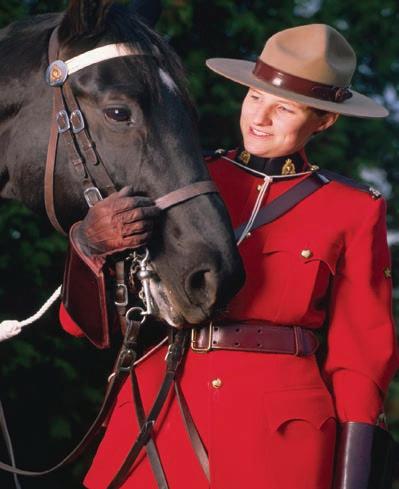
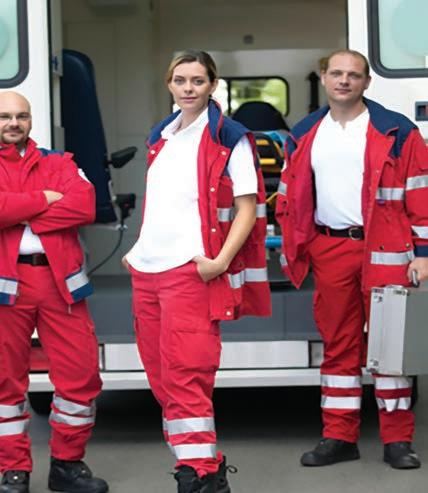
IN THIS MODULE YOU WILL LEARN:
Vocabulary
Grammar
Reading
Speaking
Writing
Self-check 5
• Jobs
• Health problems and first aid
• Countable and uncountable nouns
• A sports article: Street dancing in schools: is it PE?
• Talking about jobs
• A description of a person
• Reading and writing
• Vocabulary and grammar
Find the page numbers for:
Ø an actor
Ø a helicopter
Ø a carpenter
Competences: 1.1; 1.3; 2.1; 2.2; 2.3; 2.4; 3.4; 4.2.
57
57
Vocabulary
1 Listen and repeat the words. Match them with pictures 1–12.
actor • architect • electrician • engineer • lifeguard • mechanic • nurse • police officer • sportsperson • footballer • teacher • vet

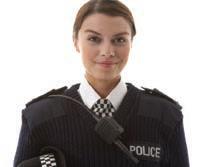
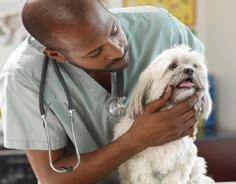

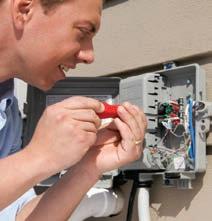


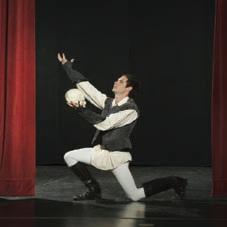
2 Complete 1–5 with jobs from exercise 1. … designs buildings. An architect designs buildings. 1 … works with animals.
2 … repairs vehicles and machines. 3 … designs machines and roads. 4 … plays professional sport.
5 … installs electrical equipment.

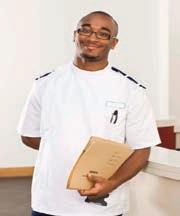
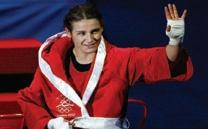

3 Match the jobs from exercise 1 with these places. a hospital a school a theatre a police station a swimming pool an office a house 4 Listen to Charlotte and Rob. Which jobs do they talk about? What job does Rob want to do? Why?
5 In pairs, ask and answer questions about the jobs in exercise 1. Do you want to be an architect? No, I want to be an electrician.

Collaborative project 2 page 126
Make a poster about your favourite artist. Work in small groups.
58
2 3 4 1 5 6 7 8 9 10 12 11
Jobs
Word check cross-country physical exercise competitive
A sports article
Street dancing in schools: is it PE?
What sports do British students usually do at school? In winter, it’s usually football, hockey or cross-country running, and in summer it’s often tennis or athletics. But at High Park School, lessons are different. So, what are they doing for their PE lessons?
The students aren’t playing football or hockey and they aren’t running. They’re doing a new form of exercise – they’re doing street dance!
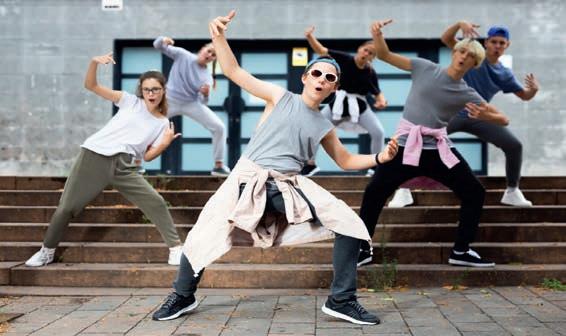
So, what is street dancing and why are students doing it in school? There are many different types of street dance, but it’s basically a combination of hip-hop dance, funk and lots of physical exercise. It’s a lot of fun and all the students have a good time.
The students at High Park School love street dancing and are really happy. But is it sport? Street dancing isn’t an Olympic sport, but the students are doing physical exercise. Some teenagers don’t like doing competitive sports like rugby or running. They often bring notes from their doctors with an excuse, so they don’t do anything. These students love street dance and there aren’t any notes from the doctor today! What’s next for British PE lessons? Skateboarding, martial arts … yoga?
1 Read and listen to the text. Are the sentences true or false? Correct the false sentences.
1 British students always do street dance in their PE lessons.
2 There is only one type of street dance.
3 Students at High Park School like doing street dance.
4 Street dancing is an Olympic sport.
2 Answer the questions.
1 What sports do British students do at school?
2 What is street dancing?
3 Why do some students bring notes from their doctor?
Rules
We often add -er or player to describe a sportsperson. football player street dancer
3 Who does these sports? Add -er to the verb or use player to make the sportsperson and write the words in your notebook. basketball football golf hockey rugby surfing swimming tennis basketball – basketball player

59 Module 5
Reading
Grammar
Countable and uncountable nouns
Countable nouns can be counted
a carrot – two carrots, an apple – two apples
Uncountable nouns cannot be counted types of food: cheese, bread, chocolate, butter, meat, ham, salt, pepper, bacon, honey, jam, sugar, rice liquids: milk, coffee, tea, water, wine, juice, oil, lemonade materials: gold, silver, iron, wood, paper, cotton, wool, soap abstract nouns: love, happiness, beauty, kindness others: news, money, advice, information, furniture, snow, weather, hair, homework
1 Underline the uncountable noun in each group.
1 bottle, jug, glass, orange juice
2 carrot, soup, tomato, cabbage
3 pig, sheep, ox, meat
4 slice, loaf, bread, piece
5 wood, leaf, flower, tree
6 chocolate, cherry, pear, apple
7 coffee, glass, can, bottle
8 desk, chair, table, furniture
2 Find 4 countable and 4 uncountable nouns in the crossword.
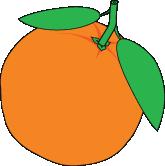
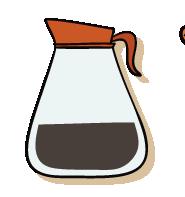

3 Look at the pictures and read the words using a, an or some



Language reference page 138

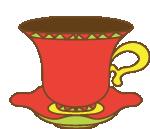








4 Complete the sentences with a, an or some. Which nouns are countable (C) / uncountable (U)?
biscuit
We use a + a consonant sound or an + a vowel sound with singular countable nouns and some with plural nouns and uncountable nouns
LEMONADE XDARCPZR POTATOES INENRCAE BROGATPI RICEPTPJ EGGSUJLH AJCOFFEE DAOUCTSM OBRPUYQN
1 some milk 2 … chocolate 3 … leaves 1 4 … orange 5 … coffee 6 … doll 7 … cups 8 … jam 19 … meat 10 … soup 11 … butter 12 … egg 13 … bread 14 … elephant 15 … lemons
a
1 … tea 9 … pepper 2 … carrot 10 … cat 3 … ring 11 … dress 4 … bread 12 … money 5 … boxes 13 … watches 6 … armchair 14 … salt 7 … plate 15 … honey 8 … chair 16 … water
.
Rules
60
5 Look at the pictures and read the examples.




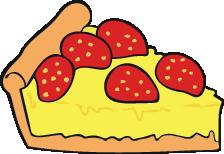





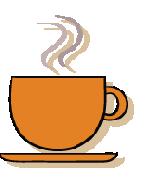
a bowl of soup a bottle of beer a piece of pie a loaf of bread a cup of coffee a bar of chocolate a glass of milk a kilo of meat a carton of milk a jar of marmalade a can of fruit juice a jug of orange juice a slice of bread a tin of fish a packet of spaghetti
6 Match the words from column A with the ones in column B.
A B
1 a tin of a) chocolate
2 a carton of b) milk
3 a cup of c) jam
4 a glass of d) tuna
5 a slice of e) water
6 a bar of f) lemonade
7 a packet of g) bread
8 a loaf of h) cola
9 a kilo of i) coffee
10 a jug of j) biscuits
11 a jar of k) ham
12 a bottle of l) meat




Rules
We express quantity in English by using the following words in front of uncountable nouns: slice, loaf, cup, tin, piece, jug, bowl, can, packet, bottle, jar, glass, carton, bar, kilo.
She wants to buy two loaves of bread, a kilo of meat and three packets of spaghetti.
7 Make the following nouns countable.
Some milk – three cartons of milk.
1 Some cheese – two … .
2 Some water – four … .
3 Some coffee – two … .
4 Some bread – five … .
5 Some honey – three … .
6 Some chocolate – six … .
7 Some tuna – two … .
8 Some rice – three … .
9 Some toast – five … .
10 Some oil – four … .
11 Some sugar – six … .
12 Some pasta – three … .
8 Complete the dialogue with a, an or some.
Mum Let’s make the shopping list together, Leah.
Leah Sure. Do we need (0) a carton of milk?.
Mum No dear, but we need (1)… cheese and (2)… eggs.
Leah What about buying (3)… packet of butter and (4) … bag of flour?
Mum All right. We have all the ingredients to make (5)… cheesecake.
Leah No, mom. We still need (6)… strawberries and (7)… sugar and (8)… orange for the flavour.
Mum Right, Leah. I’m adding them to our list.
Leah Let’s go shopping now. I can’t wait to start baking.
9 Listen and check your answers.
Grammar


61 Module 5
12345678
Health problems and first aid 5b
Vocabulary
1 Listen and repeat the words. Which words name parts of the body? broken arm • cold • cough • cut • earache • headache • insect bite • (feel) sick • sore throat • stomach ache • temperature
2 Match the words in exercise 1 with pictures 1–6. Which health problems are not in the pictures?
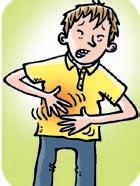
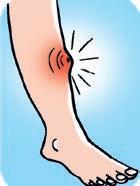

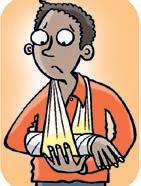
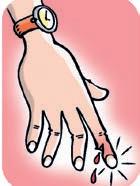
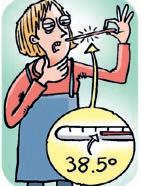
3 Write the correct words.
1 A cough / headache is a pain in your head.
2 He’s got a cold / broken arm because he is always going out without a coat.
3 She’s got a sick / stomach ache because she keeps eating lots of sweets.
4 I’ve got a sore throat / headache because I like singing very loud.
5 Why don’t you use a thermometer to check your earache / temperature?
Listening
Mountain rescue!
4 Answer the following questions. Use the words in the box.
drink hot milk have a sweet lie down put on a plaster ask my parents for medicine
What do you do when you have … a sore throat?
I drink hot milk.
1 a cough? 3 a temperature? 2 a cut?
5 Listen to the interview. Answer the following questions.
1 What is Dave Morris’s job?
2 What does he do in his free time?
6 Listen again. Match the health problems with Dave Morris’s advice (1–5). tiredness a broken leg an insect bite a temperature
1 Do not move people with broken bones.
2 Stop, rest and eat some chocolate when you’re exhausted.
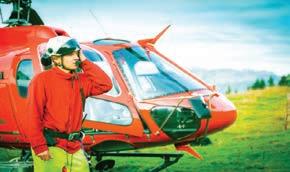
62
3
emergency. 4
5
cold water
Keep the body warm in case of
Contact a doctor if somebody has a fever.
Use
or cream to calm the skin.
1 2 3 4 5 6
Speaking
Talking about jobs
Listen and read the dialogue. What job does William want to do?
Model dialogue
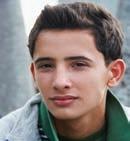
William
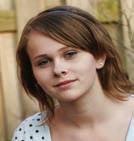
Speaking task
1 Talk about preferences
Look at the adjectives and choose a job.
boring creative dangerous exciting interesting quiet relaxing repetitive varied
2 Now you speak!
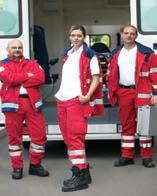
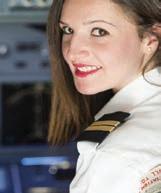
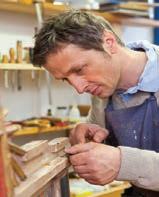
Look at the Model dialogue. Prepare a new dialogue by changing the words in blue. Practise it with a classmate.
I want to be a pilot. I think it’s a fantastic job.
In my opinion, it’s exciting, but it can be dangerous sometimes.
Useful language

63 Module 5
Rebecca
paramedic carpenter pilot
Writing
A description of a person
1 Read the Model text and listen. Who is Hayley’s hero? Why?
Model text
My role model
My grandmother often feels sick. She has terrible headaches and a bad cough, too. The doctors tell her to change her lifestyle. They advise her to eat better food and do more exercise. She is now eating healthier foods and she plans to start doing sport.
Now she’s a different person. This year she’s trying to make the hospital more interesting for the patients. She volunteers in the local hospital. She plays games with the children and she talks to the adults. Next month she intends to run a half marathon to collect money for the hospital.
I think she’s incredible.
Tips
Too and also
We use too and also to add new information and make our writing more interesting. We usually put too at the end of the sentence:
She has a bad cough, too
We put also immediately in front of a verb unless the verb is to be:
She also does sports twice a week.
When the verb is to be we put also after it: Kate is a very nice person. She is also very talented.
2 Rewrite the sentences using the words in brackets.
She has a headache. She has a temperature. (too)
She has a headache and a temperature, too.
1 We’re running a marathon next month. We’re climbing Teide. (also)
2 He cleans the kitchen on Friday. He washes the floors once a week. (too)
3 They’re looking after children. They’re looking after animals. (too)
4 My uncle is friendly. He is kind. (also)
3 PERSONAL PROJECT
An album of records – My role model
Think about your favourite, most inspiring sportsmen. Make up an album with them including the information that you want to present to your classmates. Why are they your role models?
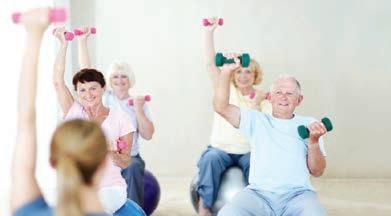

4 To practise your writing skills, go to Writing guide 2 on page 102.
5 Writing task 1 Plan
Choose your role model. Make notes and include:
Who your role model is The person who inspires me most is my grandmother … . Why he / she is your role model She now lives a healthier life … . Your role model’s plans She intends to … .
2 Write
Use the Model text, your notes and this structure:
Paragraph 1 The name of your role model, the reasons why he / she is your role model
Paragraph 2 Your role model’s plans
Paragraph 3 Your opinion of your role model
3 Check present simple and present continuous intend to vocabulary for jobs and health problems and first aid also and too
64
Self-check 5 Reading and writing
Police officers in the UK are sometimes called ‘Bobbies’. They wear a dark blue uniform with a white shirt, a black tie and a famous helmet. Police officers who are ‘on the beat’ wear this helmet. On the beat means they work in the street, either on foot or on a bike. When they are in a police car, they wear a cap. Unlike police in most other countries, British officers do not usually carry guns.
Probably the most distinctive police uniform in the English-speaking world belongs to the Royal Canadian Mounted Police, also known as the ‘Mounties’. They are the national police force of Canada and their uniform for special occasions is called the Red Serge. This is a red jacket, wide brown trousers and a famous brown hat. Mounties often ride horses.
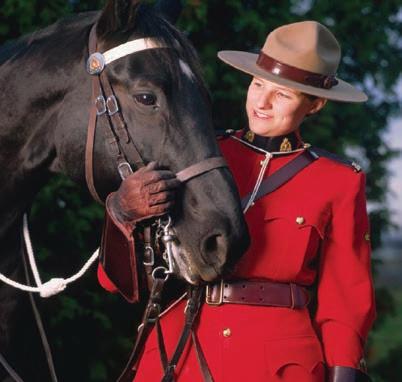

1 Read and listen. Then answer the questions.


2 Writing
Describe a friend / family member. Mention:
1 What are the police in the UK sometimes called?
2 What do they wear?
3 What does ‘on the beat’ mean?
4 Who are the ‘Mounties’?
5 What is the name of the uniform that ‘Mounties’ wear?
/ 15
• who is he / she?
• what does he / she do?
• what does he / she look like?
• what are his / her personality traits?
• why do you like him / her?
Use 50–70 words.
/ 15

65 Module 5
----
----
Self-check 5 Vocabulary and grammar
Write the jobs.

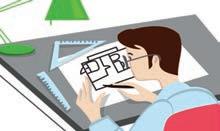
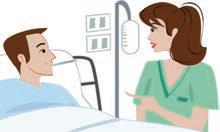
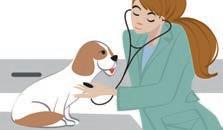
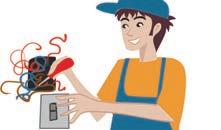
/ 10
4 Match the symptoms 1–5 with the cures a–e.
1 I’ve got a sore throat.
2 I’ve got a temperature.
3 He’s got a broken leg.
4 I’ve got a mosquito bite.
5 I’ve got a horrible cut.
a) Here’s some cream.
b) Have some hot milk.
c) Here is your plaster!
d) You should have a cold bath.
e) You shouldn’t move him. ---- / 10
5 Circle the uncountable noun in each group.
1 orange – sugar – burger – cake
2 cheese – grape – potato – cup
3 ham – pear – egg – onion
4 plate – bread – tomato – apple
5 coffee – strawberry – peach – cookie ---- / 10


6 Look at the words in the box. Look at the pictures. Then fill in the blanks. cans cups boxes glasses slices 1 Two of soda 2 Three
3 Two
4 Four
5 Two

of ham
of coffee
of milk
of cookies ---- / 10
7 Put the words in the box into the correct columns. pizza water cheese orange juice milkshake slice glass ---- / 10
8 Complete the dialogue with the correct form of the verbs in brackets.
Mum You (1) … (look) awful. What (2) … (be) wrong?
Lou I (3) … (have) a pain in my leg and I (4) … (not feel) well.
Mum Oh dear. (5) … it … (hurt) a lot?
Lou Yes, and I (6) … (have) to play football tomorrow. What can I do?
Mum Let’s (7) … (put) some ice on it.
Can you (8) … (move) it?
Lou No, not really. It (9) … (feel) really painful.
Mum Let’s (10) … (phone) the doctor.
Lou OK. Have you got the number?
Mum Yes, here you go.
Lou Thanks, Mum. ---- / 20
Total ---- / 100
Now I can:
Ø talk about jobs, health problems & first aid; Ø correctly use contable & uncountable nouns; Ø express preferences; Ø write the description of a person.
66
1 m… 2 a… 3 n… 4 v… 5 e… ----
3
– – – – – –
– – – –
– – – – – – –
– – – – –
Don’t forget to complete the Behaviour observation sheet according to the example on page 7!
HISTORICAL EVENTS

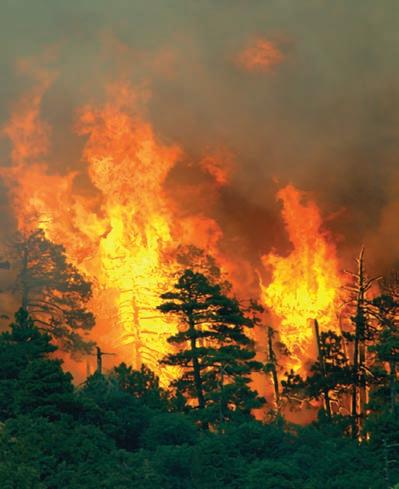

IN THIS MODULE YOU WILL LEARN:
Vocabulary
Grammar
Reading
Speaking
Writing
Self-check 6
• Discoveries
• Natural disasters
• To be: past simple
• Past simple: regular and irregular verbs
• A magazine article: Food origins
• A walk in the city
• A biography
• Reading and writing
• Vocabulary and grammar
Find the page numbers for:
Ø old ships
Ø a volcano eruption
Ø flags on a mountain
Competences: 1.1; 1.3; 2.1; 2.3; 2.4; 3.4; 4.2.
67
67
Vocabulary
1 Listen and repeat the words. Match them with pictures 1–11.





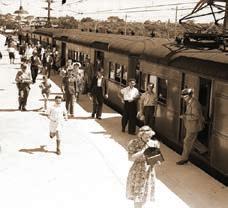


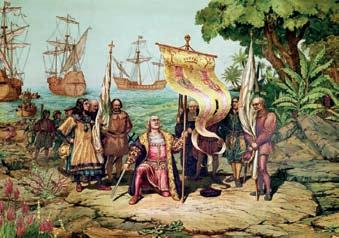

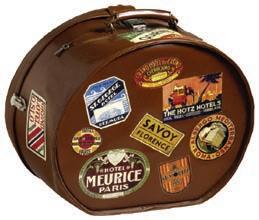
68
arrive • discover • drive • explore • fly • land • leave • ride • sail • take off • travel 1 2 3 4 5 6 7 8 9 10 11
in exercise 1. Use as many as possible. discover, explore a new country 1 … a new planet 2 … in a balloon 3 … across an ocean 4 … around the world 5 … an elephant 3 Listen to Ali and James. Which journey do they want to do? 4 In pairs, ask and answer questions about a journey. Which journey do you want to do? I want to sail around the world. Discoveries
2 Complete the phrases with the verbs
Word check journey traders wheat flour

Food origins
A lot of food started its life in very different countries. European explorers took apples and onions to America in the 16th century. They brought potatoes, tomatoes and chocolate back to Europe. Rice began its journey to Europe in China. But what about other favourites?
Persians grew sugar and in the 7th century they were the first people to use it to cook biscuits. After the Arabs invaded Persia, they took biscuits to the rest of their empire, including Spain. Later, Spanish traders took biscuits to northern Europe, and when the English and Spanish sailed to North America, they made them there. These are the origins of the American cookie.
Many people think that Marco Polo discovered pasta in China, but this isn’t true. In the 1st century, the Greeks ate a type of lasagne. But the Arabs were responsible for modern pasta because they introduced wheat flour to Sicily. Pasta, as we know it, was created in Italy in the 13th or 14th century.
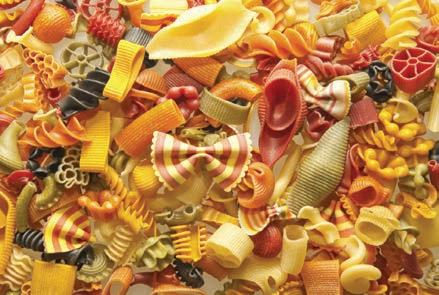
Ice desserts were popular a long time ago. The Persians (400bc) and the Chinese (200bc) enjoyed snow and ice with fruit and honey. Marco Polo discovered a technique for making ice desserts in China and transported it to Italy. The first ice cream made with milk and cream appeared in 1718 in England!
1 Which countries do you think this food originally comes from? a) biscuits b) pasta c) ice cream
2 Read and listen. Check your answers to exercise 1.
3 Read the text again. Answer the questions.
1 What did European explorers take to America?
2 What did explorers bring to Europe?
3 What did the Persians cook before the Europeans?
4 Why were the Arabs responsible for modern pasta?
5 What did Marco Polo discover?
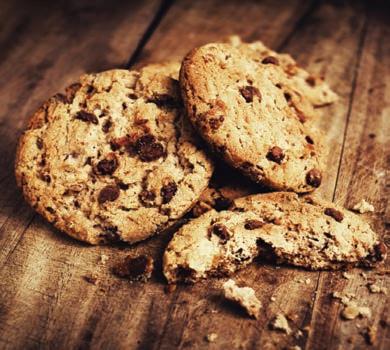

Facts
4 Complete the sentences with the words in the box.
biscuits fruit pasta tomatoes sugar
Persians used … to make biscuits. Persians used sugar to make biscuits.
1 Originally, … were from America.
2 You need wheat flour to make modern … .
3 There were … in Spain before other countries in the north of Europe.
4 They put … in the snow to make a dessert.
Go to the Digital competence 2 on page 109 to practise your digital skills.

Reading 69 Module 6 A magazine article
Cookie comes from kokje, which is the Dutch word for ‘little cake’.
To be: past simple
AffirmativeNegative Interrogative Short answers
I was I wasn’t
Was I … ? Yes, I was You were You weren’t Were you … ? Yes, you were. He / She / It was He / She / It wasn’t Was he / she / it … ?No, he / she / it wasn’t We / You / They were We / You / They weren’t Were we / you / they … ?Yes, we / you / they were.
1 Complete the sentences with the past simple affirmative or negative form of the verb to be.
Around the World in Eighty Days is a story about a man’s journey around the world.
Phileas Fogg, a rich Victorian Englishman, was ambitious enough to travel around the world and back home in 80 days. (be)
1 The man’s name … Phileas Fogg. (be)
2 Phileas … alone on his journey. (not be)
3 They … in many countries in the story. (not be)
4 They … in hot-air balloons, ships and trains in the story. (be)
5 It … Saturday when they arrived home. They finished their journey exactly on time! (be)
Past simple: regular and irregular verbs
Regular verbs I cooked He / She / It cooked We / You / They cooked
Irregular verbs I swam He / She / It swam We / You / They swam
I didn’t cook He / She / It didn’t cook We / You / They didn’t cook
I didn’t swim
He / She / It didn’t swim We / You / They didn’t swim
2 Complete the sentences with the past simple form of the verbs in brackets. He drank (drink) too much coffee yesterday.
1 1 The train … (leave) the station at 6 pm.
2 The aeroplane … (take off) on time and all the passengers … (be) happy.
3 They … (travel) by train to Valencia.
4 Magellan … (try) to sail around the world but he … (die) in the Philippines.
Rules
Regular verbs – spelling
• Most verbs + -ed → visit – visited.
• Verbs ending in -e + -d → like – liked
• Verbs ending vowel + -y + -ed → play – played.
• Verbs ending consonant + -y + -ied → cry – cried.
• One syllable verbs ending in one consonant preceded by one vowel double the final consonant (never double w, x, y) → stop – stopped.
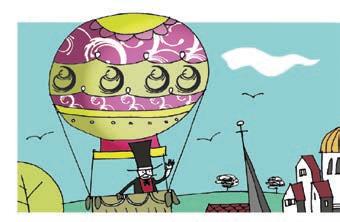
Did I cook … ?
Did he / she / it cook … ?
Did we / you / they cook … ?
Did I swim … ?
Did he / she / it swim … ?
Did we / you / they swim … ?
Rules
Past simple is used to express:
• actions which happened at a definite time in the past: We met our friends at the concert last Saturday.
• actions which happened immediately one after the other in the past: First she bought her ticket, then she got on the train. Time expressions:
• yesterday / the day before yesterday; last weekend / month / year / Monday etc.; two days / months / years / ago; in 2015; then.
3 Write the past simple verb forms in the correct column: drop, study, look, enjoy, like, hurry, wait, plan, arrive, chat, try, hate, ask, carry, stay. -ed -d -iedDouble consonant + ed dropped
70
Grammar
Negative Interrogative
Affirmative
Language
reference page 139
4 Complete the text with the past simple affirmative form of the verbs in brackets.
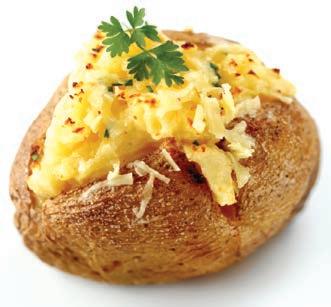
The history of the potato Europeans first (0) discovered (discover) potatoes in Peru. Sailors (1) (take) the potatoes on their ships. They (2)… (eat) them as they (3) … (sail) across the ocean. They (4) … (bring) the potatoes to Europe.
Potatoes (5)… (become) very popular in Ireland but it (6)… (take) nearly four decades to spread to the rest of Europe.
Rules
Wh-questions in the past simple
The rule for asking a wh-question in the simple past tense is:
Wh-word + did / didn’t + subject + verb Why did your father travel to France last week? Why didn’t you call me yesterday?
8 Choose the correct form of the verb.
5 Rewrite the sentences and correct the historical facts.
Columbus sailed the Pacific in 1492. (Atlantic) Columbus didn’t sail the Pacific in 1492. He sailed the Atlantic in 1492.
1 Captain Cook explored Alaska. (Australia)
2 European explorers took elephants to the Americas. (horses)
3 Alexander the Great rode an elephant. (horse)
4 Neil Armstrong landed on the Moon in October, 1969. (July)
5 Thomas Edison invented the first telephone. (light bulb)
6 Write questions with the past simple.
How / Sir Alexander Fleming / did / penicillin / discover?
How did Sir Alexander Fleming discover penicillin?
1 how many ships / Christopher Columbus / have?
2 when / they / discover / Pompeii?
3 where / Marco Polo / go?
4 when / Hillary / climb Everest?
5 did / Martin Luther King Jr. / famous/ Where / deliver / his / speech?
7 Use the words to write questions with the past simple.
did / meet / you / Who / last week / ?
Who did you meet last week?
1 you / What / yesterday / eat / did / ?
2 Did / use / you / last night / a computer / ?
3 speak / English / Did / you / five years ago / ?
4 last summer / did / you / Where / go / ?
5 When / finish / your homework / you / yesterday / did / ?
Grammar
Mum What (0)do you do / are you doing, Laura?
Laura I (1)do / ’m doing my history homework.
Mum I (2)love / ’m loving history. Do you want some help?
Laura Oh, yes please. I (3)write / ’m writing about Queen Victoria, but I’ve got a question. Where (4)did / does she live?
Mum I (5)wasn’t / weren’t alive then! We could (6)check / checking on the internet!
Laura OK. Where’s your laptop?
Mum Oh no! I (7)leave / left it at work.
Laura Oh, Mum!
9 Listen and check your answers.


71
12345678
Module 6
Natural disasters
Vocabulary
1 Listen and repeat the words. drought • earthquake • famine • fire • floods • hurricane • landslide • tornado • tsunami • volcanic eruption
2 Match pictures 1–6 with the natural disasters in exercise 1. Which disasters are not in the pictures?
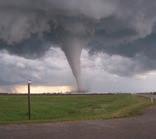
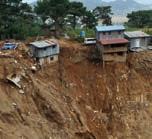
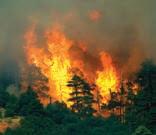

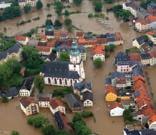

Listening
Famous natural disasters
3 Choose the correct words.
1 There was a potato famine / landslide in Ireland from 1845 to 1852. People had nothing to eat and about one million people died.
2 In 2007, there were hurricanes / floods in the south of England. The water was 90 cm high.
3 In 1988, there was a terrible tsunami / fire in Lisbon, the capital of Portugal. Many houses and shops burned down.
4 There was a huge volcanic eruption / earthquake in Iceland in 2010 and many planes couldn’t fly because of the cloud of volcanic ash.
5 Tornados / Droughts are a problem in many countries where there isn’t much rain. The longest was in the Atacama Desert in Chile. It began in 1571 and finished in 1971.
4 Listen to a description of two famous natural disasters. Answer the questions.
1 What four types of natural disaster are mentioned?
2 Where did they occur?
5 Listen again and complete the sentences with words from the description.
1 Mount Vesuvius erupted nearly … years ago.
2 A Spanish engineer … Pompeii in 1747.
3 The volcanic ash preserved Pompeian life as it was in ad… .
4 Immediately after the Lisbon earthquake, there was a … .
5 Buildings burned and disappeared into the … .
6 They rebuilt the city with buildings that could resist … .
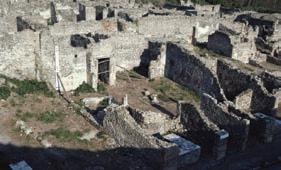
72
1 3 5 2 4 6
Speaking
A walk in the city
1 Listen and read the dialogue. Where is the museum?
Model dialogue
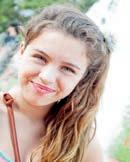
How can I get to down the street
Mia walk past on the corner Go straight ahead Turn right walk along
2 Match the directions in the box to the pictures below.
a. go straight b. turn left / right c. go past … d. next to e. on the corner f. go along
Speaking task


1 Asking for and giving directions
Look at the map and decide where you want to go.
2 Now you speak!
Look at the Model dialogue. Prepare a new dialogue by changing the words in blue. Practise it with a classmate.
How can I get to the bookshop? Go straight ahead, past Green Street and King’s Road and the bookshop is on the right.
Useful language

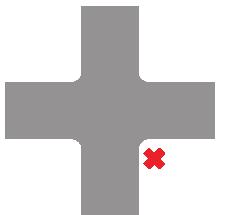
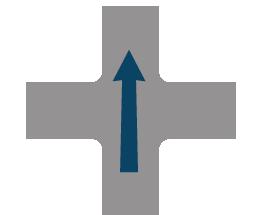
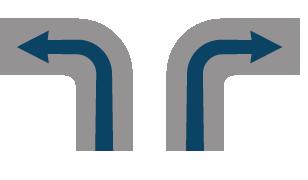

Read and listen to the words.
took looked
May made

73 Module 6
Policeman
hospital post office library supermarket museum shop theatre cinema factory café Italian restaurant book shop underground station bus station police station Bond Street You Are Here Green Street Green Street King’s Road King’s Road i i
/ʊ/, /ɔː/ and /eɪ/
/ʊ/
/ɔː/
/eɪ/
Pronunciation
more saw
Writing
A biography
1 Read the Model text and listen. Then answer the questions.
1 What was Leonardo da Vinci’s job?
2 Where was he born?
3 What famous works did he paint?
Model text
Leonardo da Vinci was a painter, a sculptor and an inventor. He was born in Vinci, near Florence, on 15th April 1452.
He didn’t go to school, but he studied maths, Latin and geometry at home. He was also interested in science and anatomy. He was very good at art. When he was 14, he started to work for a famous painter and learnt techniques with him.
In 1482, he went to live in Milan. From this time on, Leonardo painted his most famous works, for example, The Last Supper. He painted The Mona Lisa in about 1505. He also invented things. For example, he designed a flying machine similar to the modern helicopter.
2 Look at the Tips. Find examples of prepositions of time in the Model text.
Tips
Prepositions of time with past events
We use prepositions of time to mention when a past event took place. Leonardo was born on 15th April. He was born at 10:30 pm.
Leonardo died in May 1519.
3 Complete the sentences with on, at or in.
1 The British explorer Captain James Cook was born … 1728.
2 He married Elizabeth Batts … 21st December 1762.
3 His first expedition began … 1768. He sailed from England to Australia.
4 He first saw Australia … 19th April … 6 am.
5 He died … St. Valentine’s Day 1779 in Hawaii.
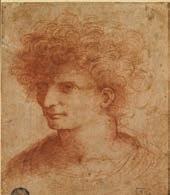

4 To practise your writing skills, go to Writing guide 3 on page 104.
5 Writing task
1 Plan
Choose a famous person. Make notes to write a biography and include: Name, occupation, date and place of birth … . He / She was a … He / She was born in … . Education and work He / She studied … . He / She worked … . Life and achievements He / She painted / discovered / invented … .
2 Write
Use the Model text, your notes and this structure:
Paragraph 1 Name, occupation, date and place of birth
Paragraph 2 Education and work
Paragraph 3 Life and achievements
3 Check past simple was / were verbs of discovery vocabulary for prepositions of time
74
Self-check
6 Reading and writing

On 29th May 1953, Edmund Hillary and Tenzing Norgay became the first men to climb to the top of Mount Everest. They took some photos, and buried some sweets and biscuits in the snow for the gods. They began their descent after 15 minutes because they didn’t have much oxygen.
Edmund Hillary was a mountaineer and explorer from New Zealand. When he was at secondary school, he climbed Mount Ollivier (1,933m) in New Zealand. After Everest, Hillary made several expeditions to the Antarctic. He died in 2008.
Tenzing Norgay was a mountain guide from Nepal. He made his first expedition to Everest when he was 19. He died in 1986.
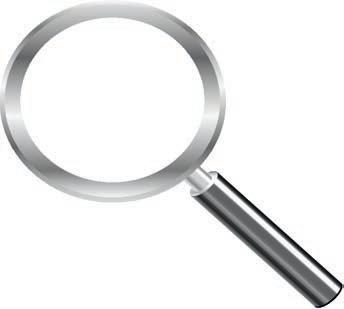

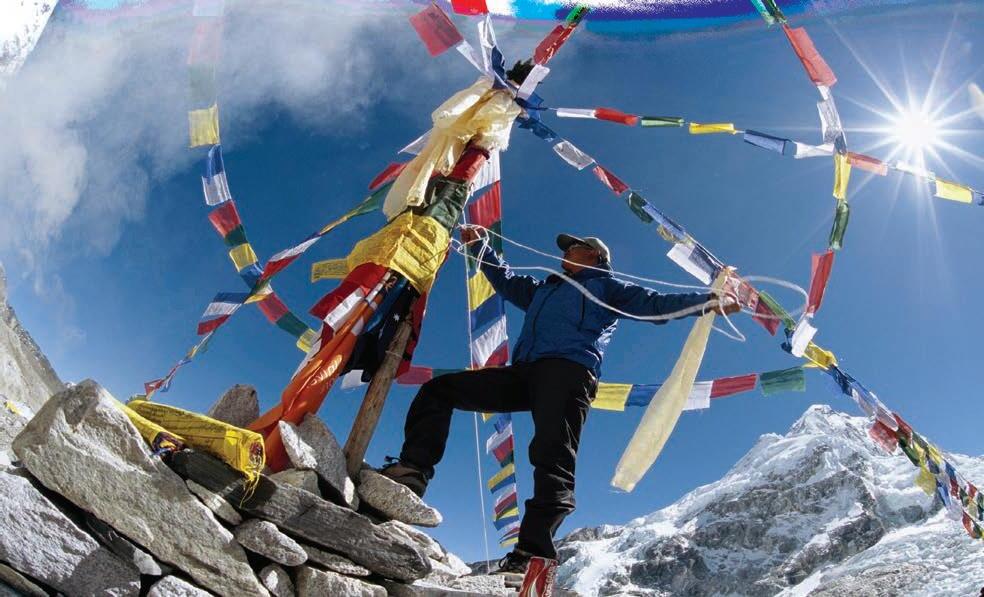
1 Read and listen. Then answer the questions.
1 When did people first climb to the top of Mount Everest?
2 Why are Edmund and Tenzing famous?
3 How long were they at the top of Mount Everest?
4 Who were the two men?
5 Where were they from? ---- / 15

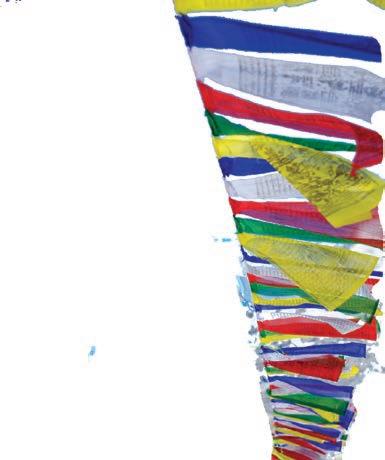
2 Writing
Write about your favourite famous person. Mention:
• where he / she lived;
• what he / she was famous for;
• why you admire him / her. Use 50–70 words. ---- / 15

75 Module 6
Self-check 6 Vocabulary and grammar
3 Choose the correct words.
1 Columbus sailed / arrived on a ship across the ocean.
2 Amelia Earhart was the first woman to ride / fly solo across the Atlantic in 1932.
3 Neil Armstrong discovered / landed on the Moon in 1969.
4 The Concorde first took off / drove in 1976.
5 Robots are exploring / travelling Mars at the moment.
10
4 Look at the pictures and choose the correct words.




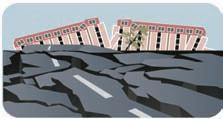
5 Complete the text with the past simple form of the verbs in brackets.
I (1)… (arrive) home yesterday at 4 pm.
I (2)… (be) alone in the house so I (3)… (sit) down on the sofa with a book – a biography about Captain Cook. I (4)… (begin) to read and I (5)… (read) it for seven hours! ---- / 10
6 Order the words to make questions. Then answer the questions.
1 study / Did / you / history / at the weekend / ?
2 your dad / did / buy / his first car / When / ?
3 you / English / study / Did / at primary school / ?
4 Did / three months ago / you / Lisbon / visit / ?
5 you / arrive / What time / home / did / last night / ? ---- / 10
7 Complete the sentences with the correct past tense forms the verb in brackets.
1 He … (hear) the news and he was shocked.
2 We … (know) the alphabet when we were five.
3 I … (not go) to the party because I was ill.
4 She … (stop) to buy strawberries for a cake.
5 She … (not make) dinner last night because there was no electricity. ---- / 10
8 Choose the correct words.
Mum What (1) do you do / are you doing, Izzie?
Izzie I (2) do / ‘m doing my history homework.
Mum Can I (3) help / helping you?
Izzie Oh, yes please. I (4) find / found some information in the library yesterday and now I (5) write / ’m writing about Victorian London. But I have some questions. Where (6) did / does Queen Victoria live?
Mum I (7) wasn’t / weren’t alive then! Let’s look on the internet!
Izzie Good idea. Where do you usually put your laptop?
Mum Oh no! I (8) leave / left it at work.
Izzie Oh, Mum! (9) Can / do you go and get it?
Mum Let’s use dad’s laptop. He (10) isn’t / doesn’t using it right now! ---- / 20
Total ---- / 100
I can:
Ø talk about discoveries & natural disasters; Ø correctly use past simple of regular & irregular verbs; Ø ask for & give directions; Ø write a biography.
76
Now
---- /
fire drought earthquake tornado floods 1 2 3 4 5 ----
10
/
Don’t forget to complete the Behaviour observation sheet according to the example on page 7!
TRANSPORT AND TRAVEL
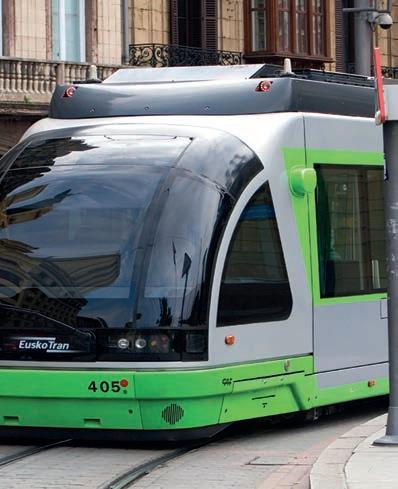

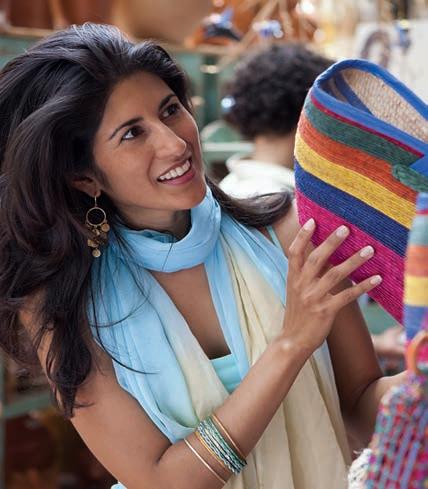
IN THIS MODULE YOU WILL LEARN:
Vocabulary • Transport
• Travel
Grammar
Reading
• Past simple: extensive practice
• History essay: On two wheels
Speaking • A bus trip
Writing
Self-check 7
• A story
• Reading and writing
• Vocabulary and grammar
Find the page numbers for:
Ø an unusual bike
Ø a bus schedule
Ø a boat on the river Thames
Competences: 1.1; 1.2; 1.3; 2.1; 2.2; 2.4; 3.4; 4.2.
77
77
Vocabulary
1 Listen and repeat the words. Match them with pictures 1–12. bike • bus • boat • car • coach • lorry • moped • motorbike • plane • taxi • train • tram
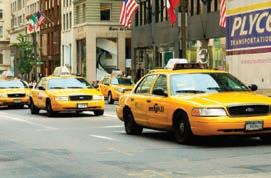



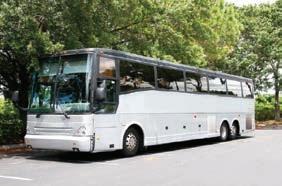
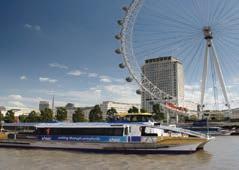

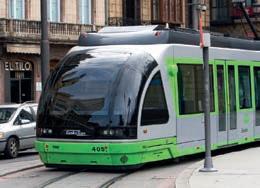
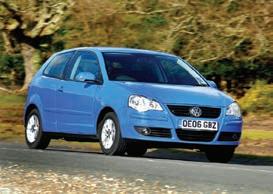
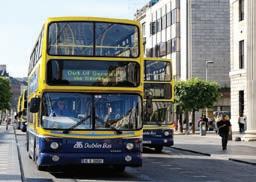


2 Complete the table with words from exercise 1. For each category add another means of transport.
3 Listen to Denzel and Ruby. How do they go to school?
4 In pairs, ask and answer questions. Use the words in the box and by train, by bus, by bike or on foot. school the cinema your friends’ houses your favourite shop How do you go to school? I go to school by bus.
78
Land Water Air bike
1 2 3 4 5 6 7 8 9 10 11 12 Transport
ON TWO WHEELS
Baron Karl von Drais invented the first vehicle with two wheels. He called it the Draisienne. It didn’t have pedals – you pushed it with your feet! The first real bicycle was the Penny Farthing. It was difficult to ride because it had an enormous front wheel. Today, there are thousands of bicycle models from mountain bikes to shopping bikes.
Motorbikes came after the invention of the petrol engine. Two Germans built the first motorbike in 1885. It didn’t go very fast – only seven kilometres per hour! In the 20th century, many companies started making motorbikes because engines became very powerful. Harley-Davidson produced its first motorbikes in the 1920s and they became very famous. People also began racing with motorbikes. The first Motorcycling Grand Prix was in 1949. Today, MotoGP motorbikes can travel at 320kph!
Bicycles, motorbikes and mopeds offer speed and freedom. They are great for cities and for exploring new places, but they can be dangerous. It’s very important to ride carefully and always wear a helmet. Which do you prefer – two or four wheels?
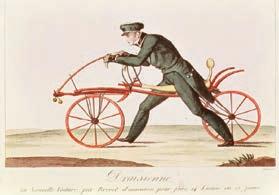
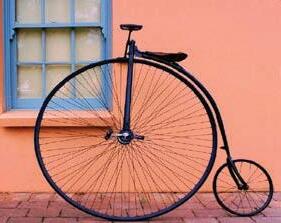
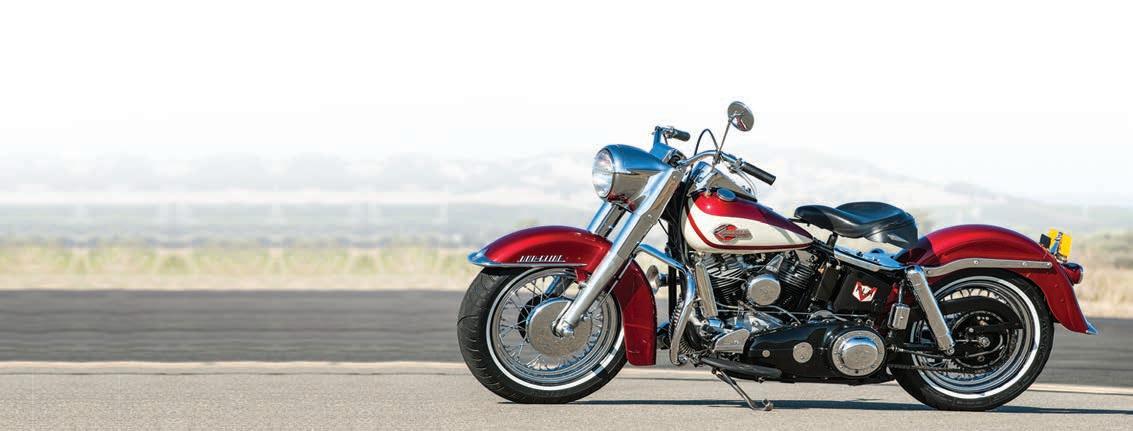
1 Read and listen. What is the text about?
1 Transport in cities
2 Bicycles and motorbikes
3 A history of transport
2 Read the text again and answer the questions.
1 Who invented the first form of transport with two wheels?
2 Why was the Penny Farthing difficult to ride?
3 How fast did the first motorbike go?
4 When was the first MotoGP?
5 What do two wheels offer?
3 What is your favourite means of transport? Why?
I like bicycles because they are fun.
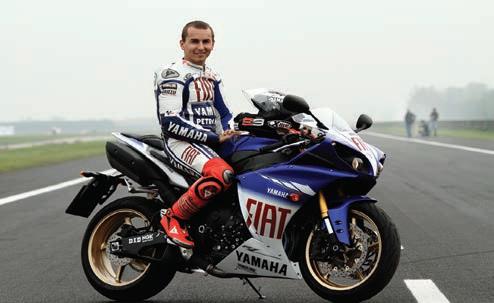

Reading 79 Module 7 Facts
History essay
Bicycle Moto Cross (BMX) became an official Olympic sport in 2008.
Word check engine speed freedom helmet
Go to the Digital competence
on page 110 to practise your digital skills.
3
Grammar
Past simple: extensive practice
Regular / Irregular verbs
Affirmative I / You / He / She / It / We / You / They played / sang.
Negative I / You / He / She / It / We / You / They didn’t play / sing.
Interrogative Did I / you / he / she / it / we / you / they play / sing ?
Short answers Yes, I / you / he / she / it / we / you / they did No, I / you / he / she / it / we / you / they didn’t.
1 Check the list of irregular verbs on pages 143-144 and complete the table with the past simple form of the verbs.
Regular verbsIrregular verbs disappear be present begin return come stop cost play have
2 Complete the text with the past simple form of the verbs in exercise 1.
The first passenger tram service probably (0) began (begin) in Wales in 1807. There (1) … (be) seats for 12 passengers but it (2) … (not be) cheap. It (3) … (cost) about five pence. Werner von Siemens (4) … (come) from Germany. In 1881 he (5) … (present) the first electric tram to the world. In the 1900s, many cities (6) … (have) large tram networks. However, in the 1950s and 60s, trams (7) … (disappear) from
the streets of many major cities. In 1952 the last London tram (8) … (stop) in New Cross. Almost 50 years later, trams (9) … (return) to London.
3 Choose the correct word to make negative sentences.
We didn’t sing / sang at the festival. We didn’t sing at the festival.
1 I didn’t arrive / arrived at six o’clock.
2 My dad didn’t drive / drove to work yesterday.
3 My friends didn’t came / come to my house last night.
4 She didn’t travelled / travel by train last summer.
5 They didn’t ride / rode their bikes to school yesterday.
Language reference page 140
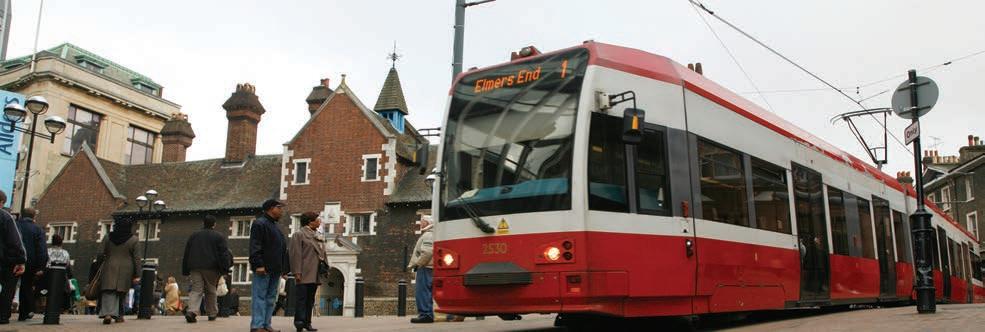
80
4 Write sentences that are true for you using the past simple affirmative and negative. Use the words in the boxes or your own ideas. go on foot go on holiday ride a bike drive a car yesterday last week last year on Monday
I didn’t go to school on foot yesterday. I went by bus.
5 Write past simple questions. Then write short answers.
you / go / on holiday / last year? (yes)
Did you go on holiday last year? Yes, I did.
1 you / travel / by car? (no)
2 she / go / by plane? (yes)
3 the teenagers / ride / mopeds? (no)
4 you and your family / have / a good time? (yes)
6 Find a classmate and ask and answer the questions in ex 5.
Did you go on holiday last year? Yes, I did. I went to the mountains.
7 Order the words to make questions.
1 go / on holiday / you / Where / did / ?
2 How / you / get there / did / ?
10 Complete the dialogue. Use the correct form of the verbs in brackets.
David (0) Did you have (you / have) a good Weekend, Ruth?
Ruth Yes, I (1)… (do).
David What (2)… (you / do)?
Ruth I (3)… ( ) to the theme park with my sister.
David I love (4)… (go) to the theme park. I (5)… (spend) a day there last month with my family.
Ruth (6)… (you / go) on the roller coaster?
David Yes, I did. We (7)… (wait) for an hour, but we (8)… (not mind). It (9)… (be) great!
11 Listen and check.
3 you / Who / did / go with / ?
4 do there / did / What / you / ?
5 a / Did / you / good time / have / ?
8 Complete the sentences with the past simple form of the verbs in brackets.
Last week I … (go) to Oxford. Last week I went to Oxford.
1 My parents and my cousins … (come) with me.
2 We … (get on) a bus at Victoria station.
3 The journey to Oxford … (take) three hours.
4 We … (visit) some famous universities.
5 It … (be) a fantastic trip.
9 Ask and answer the questions in exercise 7 about your last holiday.
Where did you go on holiday? I went to the beach.
Grammar
12345678
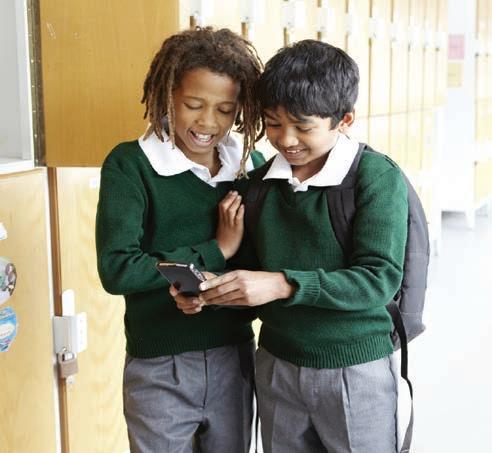

81 Module 7
Travel
Vocabulary
1 Listen and repeat the words and phrases. buy souvenirs • climb mountains • explore new places • go surfing • have a good time • make friends • relax • sunbathe • take photos • visit museums
2 Match pictures 1–6 with the words and phrases in exercise 1.

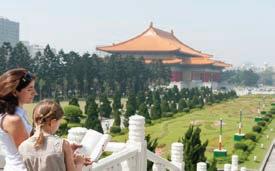
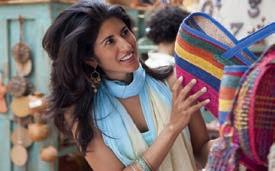

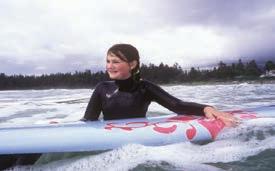
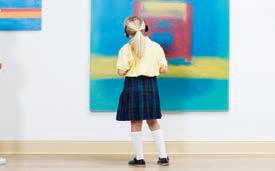
3 Imagine you went on holiday last month. Write sentences in the past simple using the verbs in exercise 1. I went to Brazil last month. I went surfing and I sunbathed. I bought souvenirs and I took photos. I had a good time.
Listening
Graham Hughes
4 Listen to the programme. How did Graham Hughes travel around the world? a) on land and by air b) on land and water c) on land, water and by air
5 Listen again. Are the sentences true or false? Correct the false sentences.
1 Graham’s expedition took five years.
2 He started his journey in South America.
3 He is the first person to visit every country in the world without flying.
4 He doesn’t like making new friends.
5 Many people helped Graham on his trip.

Collaborative project 3 page 128
Make a poster about where you live. Work in small groups.
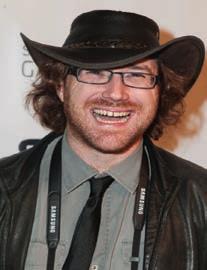
82
1 2 3 4 5 6
Speaking
A bus trip
Listen to the dialogue. How much is a return?
Model dialogue

Emily
Excuse me. What time does the next bus for York leave?
What number is it?
Where does it leave from?
How much does it cost?
Return, please.
Speaking task
1 Talk about a bus timetable
First, decide where you want to go.
Number 22. At two o’clock Assistant
Bus stop number seven.
Single or return?
That’s £8.

2
Now you speak!
Look at the Model dialogue. Prepare a new dialogue by changing the words in blue and practise it with a classmate.
Excuse me. What time does the next bus for Liverpool leave?
At 11 o´clock.
Useful language

Pronunciation
-ed endings: /d/ /t/ /ɪd/
a Listen and repeat. Can you hear the difference?
/d/opened /t/stopped /ɪd/started ended
b Listen to the verbs in the box. Then add them to the table in exercise a.
arrived asked continued designed invented looked presented tried wanted

83 Module 7
Bus information Dept. time Destination Bus stop 10.30 Liverpool (no. 30) 8 11.00 Liverpool (no. 30) 8 12.00 Liverpool (no. 30) 8 Prices Single Return £8.50 £15.50 Bus information Dept. time Destination Bus stop 14.00 Brighton (no. 120) 15 14.25 Brighton (no. 120) 15 Brighton (no. 120) 15 Prices Single £2.80 Return £5.50
Writing
A story
1 Read the Model text and listen. Put the pictures in the correct order.
A disastrous holiday!
Last summer I went on holiday to Italy with my family. There were lots of problems. First, the alarm clock didn’t ring, so we were late for the plane. When we arrived in Italy, my sister’s bag wasn’t there.
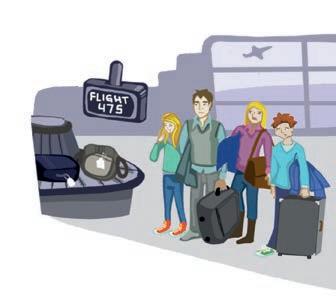
Then the hotel didn’t have rooms for all of us, so we shared a room for the first night. In the morning, we walked into the restaurant and I saw my teachers. They were on holiday at the same hotel!
In the end, I had a good time. I explored new places, I made new friends and I relaxed.
2 Look at the Tips. Why do you use first, then and in the end when you write a story?
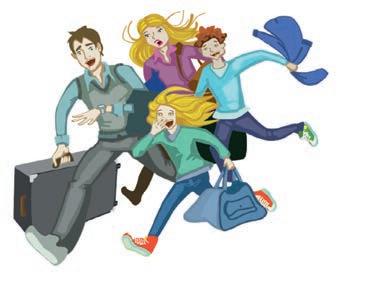


Writing task
1 Plan
Make notes for a story about a disastrous holiday and include:
Time connectors
When writing about past events you can improve your story by using time connectors:
First, the alarm clock didn’t ring. Then the hotel didn’t have rooms for us. In the end, I had a good time.
3 Complete the text with the correct time connectors.
(1)… I got dressed and I had breakfast. (2) … I waited for a taxi, but it didn’t come. (3) … I phoned my dad and I went to the airport by car.
4 To practise your writing skills, go to Writing guide 4 on page 106.
Where and when Last summer, we went to … . What happened First, … . Then, … . In the end, … . What happened in the end In the end, we … . What you did We took photos and … .
2 Write
Use the Model text, your notes and this structure:
Paragraph 1 Where did you go? When did you go? What happened first?
Paragraph 2 What happened then?
Paragraph 3 What happened in the end? Did you have a good time? Why (not)?
3
Check past simple vocabulary for transport and travel first, then, in the end
84
Tips
Model text
1 3 2 4
5
Self-check 7 Reading and writing

THERE ARE MANY WAYS OF TRAVELLING AROUND LONDON
THE LONDON UNDERGROUND was the first underground railway system in the world. The first line opened in 1863 and the first electric underground trains started in 1890.
Trams in London stopped in 1952 and began again in 2000. There are three lines in south London and trams are frequent and popular.
London buses are usually red. Many of them have got two floors. These buses are called double-deckers. They are a good way to explore the city. There are regular boat services on the River Thames. You can take great photos of London from the river.
Traditionally, all London taxis were black. Today, you can find them in all different colours. Taxis are also called cabs.

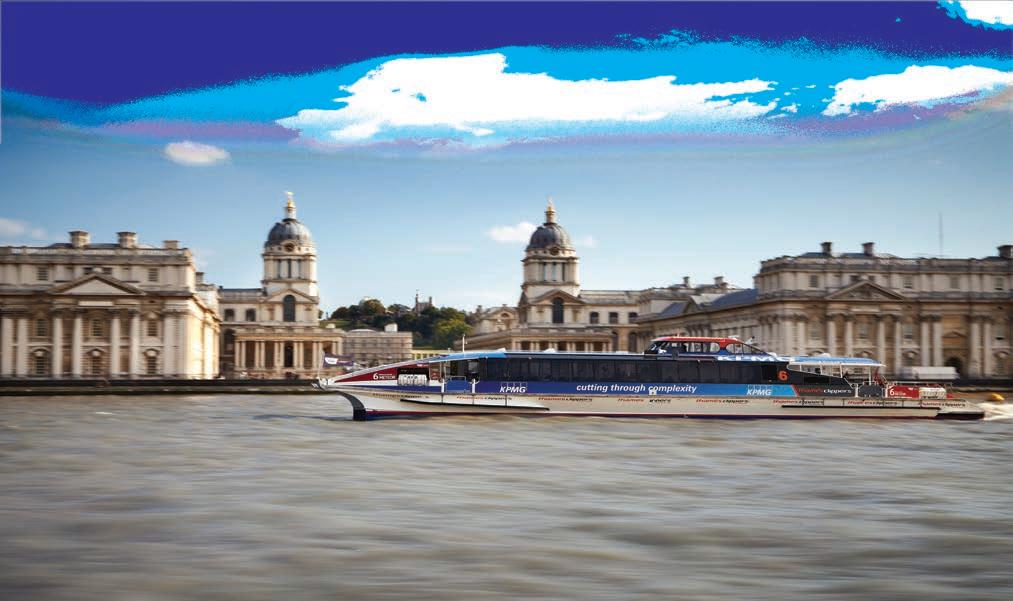
1 Read and listen. Then answer the questions.
1 When did the first line open on the Underground?
2 How many tram lines are still in service?
3 What colour are double-deckers?
4 Where is a good place to take photos from?
5 What is another name for a taxi?

2 Writing Write a story about your happiest holiday. Mention:

85 Module 7
Public
---- /
15
•
•
•
----
where you were;
who you were with;
what events bring back happy memories. Use 50–70 words.
/ 15
Self-check 7 Vocabulary and grammar
3 What means of transport can you see in the pictures?


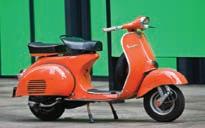

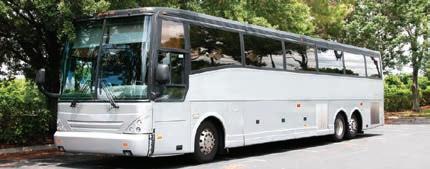
/ 10
4 Match the verbs 1–5 with the words a–e to make activities.
1 buy a) friends
2 explore b) new places
3 have c) surfing
4 make d) souvenirs
5 go e) a good time
5 Complete the text with the past simple form of the verbs in brackets.
Last Saturday I (1)… (visit) my grandparents.
10
I (2)… (leave) the house early and I (3)… (travel) by bus. I (4)… (not have) a good time. It was very boring! On Sunday I (5)… (buy) some new CDs. Sunday was fun!
/ 10
6 Complete the sentences with the past simple form of the verbs in exercise 4.
1 Last year we … a very good time in Greece.
2 I … some souvenirs.
3 We … new places.
4 I … (not) surfing but we went to the island of Crete.
5 And best of all, I … lots of new friends. ---- / 10
7 Write questions using the past simple.
1 Where / you / go on holiday / last year?
2 you / visit / any museums?
3 What / you / buy / there?
4 you / climb / a mountain?
5 you / make / new friends? ---- / 10
8 Complete the dialogue using the correct form of the verbs in brackets.
Ben Did you have a good weekend, Emily?
Emily Yes, I (1) … (do). It was really fun!
Ben What (2) … (you / do)?
Emily Well, you know my sister Natalie? It (3) … (be) her birthday last week, so all the family (4) … (go) to the theme park in town.
Ben Fantastic! I love going to theme parks. I (5) … (spend) a day there with friends a week ago.
Emily Really?
Ben Yes, we (6) … (arrive) at 10 am and we (7) … (not leave) until 7 pm!
Emily (8) … (you / go) on the Pirate Ship?
Ben No, I didn’t . It looked really boring.
Emily It was really boring!
Ben We (9) … (wait) for a long time to get inside, but we (10) … (not mind). It was great!
Ø talk about transport & travel;
Ø correctly use past tense simple; Ø ask for bus timetables & travel information; Ø write a story. Now I can:
86
----
Total ---- /
/ 20
100
----
---- /
----
1 3 5 2 4
Don’t forget to complete the Behaviour observation sheet according to the example on page 7!
LEISURE TIME


IN THIS MODULE YOU WILL LEARN:
Vocabulary
Grammar
Reading
Speaking
Writing
Self-check 8
• Playing games
• Places to visit
• Tense review: present simple and continuous, past simple
• Making a polite request – the modal verbs: can, may
• A factual text – Board games: from cardboard to pixels
• At a holiday camp
• An e-mail
• Reading and writing
• Vocabulary and grammar

Find the page numbers for:
Ø a pair of dice
Ø a campsite
Ø a surfer
Competences:
87
1.1; 1.3; 2.1; 2.4; 3.2; 3.3; 4.1; 4.2; 4.3.
87
Playing games
Vocabulary
1 Listen and repeat the words. Match them with pictures 1–10.
beat • cheat • count • give up • guess • land • lose • miss a turn • move a counter • roll the dice
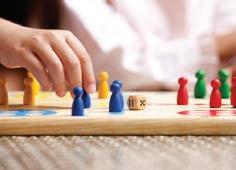

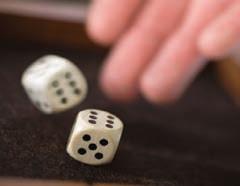

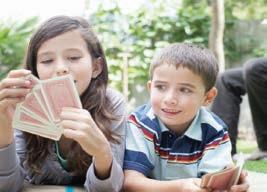
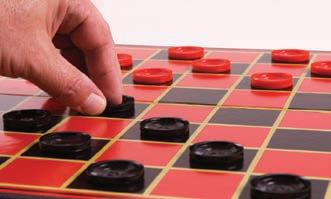
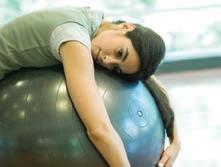
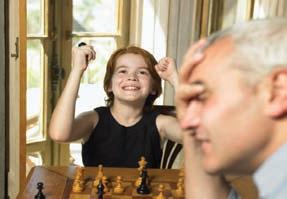
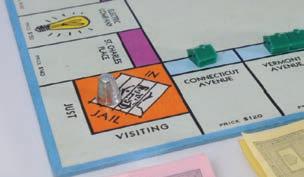
2 Complete the sentences with words from exercise 1.
1 He’s better than me. Every time I play with him I … .
2 My brother … at cards. He always looks at the other player’s cards!
3 If I don’t know the answer, I … !
4 To start the game, … and get a six.
5 In Monopoly, if you … on ‘Go to jail’ you miss a turn.
3 Listen to Lou and Will. Which games in the box do they describe? chess ludo Monopoly Trivial Pursuit
4 In pairs, choose a game. Then ask and answer questions to guess which game it is. This is a game for four people. Is it ludo?
88
1 5 2 3 4 6 7 9 10
8
Word check board games ancient pieces set up
from cardboard
Do you like playing board games? If you do, you probably play on a tablet or smartphone. But board games have a long and ancient history.
Senet is the first known board game. It appeared in Egypt in about 3100bc Backgammon appeared in China about 3,700 years later, in the year ad600. In backgammon, players roll the dice to move. The winner is the first player to remove all their pieces. The modern version of chess appeared in about 1200. The objective is to trap the other player’s king or to force the other player to give up. Monopoly was the first modern board game. It appeared in the USA in 1935 and is the best-selling board game of all time.
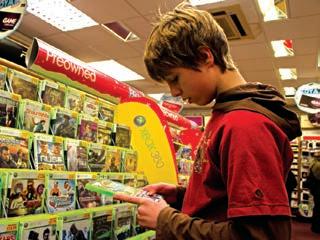
Today, digital games sell millions. In the last years designers turned traditional board games, like Scrabble, into digital board games and they also created new games. Robotek is a game of strategy created especially for smartphones. It is like a board game because players take turns. Players have to save the world from robots of the Empire of Machine. It’s very different from backgammon!

Digital board games offer high quality graphics, animation and interactivity. You can have multi-player games or play on your own; you can play with people sitting at the same table, or in different countries. And, of course, you don’t have to set up the board, you can never lose the counters and it’s much more difficult to cheat! Which ones will we play in the future?

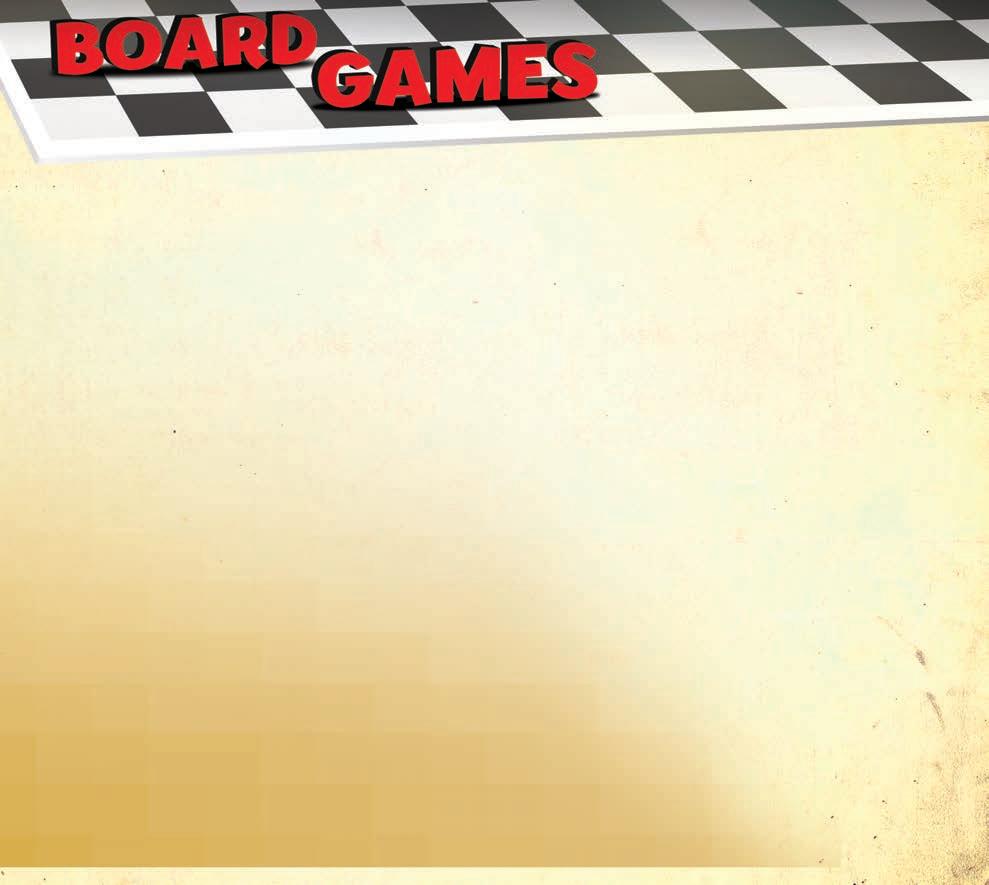
1 Read and listen. Put the games below in the correct chronological order. backgammon Monopoly chess senet
2 Read the text again. Choose the correct words.
1 People played / didn’t play board games 4,000 years ago.
2 The first board game comes / doesn’t come from Egypt.
3 The modern board game comes from Europe / the USA.
4 Board games are / aren’t popular today.

Facts
The longest game of Monopoly ever played lasted 70 days.

3 What benefits of digital board games does the text mention? Can you think of any others?

89 Module 8
Reading
A factual text
Grammar
Tense review: present simple and continuous, past simple
Present simple
• habits:
We meet our friends at the club on Saturdays.
• routines:
Linda goes to university at 9 o’clock in the morning.
• timetables, schedules, programmes: The plane takes off at 11 o’clock.
• permanent states: I live in Romania.
• time expressions: every day / weekend / year etc., always, usually, never, on Mondays, once a week, etc.
Present continuous
• actions happening at the time of speaking: I’m having dinner at the moment.
• temporary situations: He’s looking for a new job these days.
• plans and fixed arrangements for the near future: They’re flying to London in two hours.
• annoying habits when used with always: You are always forgetting things!
• time expressions: at the moment, now, this week, these days, today, etc.
1 Complete the sentences with the present simple or present continuous form of the verbs in brackets.
Every year, our school … (have) a chess competition.
Every year, our school has a chess competition.
1 I … (never / take part) because I … (not like) chess.
3 At the moment, I … (watch) the competition.
4 Amy … (not play) right now, but Paul … (beat) his opponent.
5 Paul often … (win) the school competition.
6 Paul … (stand up) and he … (smile). He’s the winner!
2 Complete the text with the past simple form of the verbs in brackets.
The Rubik’s Cube
Ernö Rubik is the inventor of the Rubik’s Cube. He (0)was born (be born) in Budapest, Hungary. He (1)… (love) visual art and he (2) … (study) architecture. In 1974, Rubik (3) … (invent) his cube, but he (4)… (call) it the ‘Magic Cube’. When Rubik first (5)… (make) the cube, he (6)… (not know) how to solve his new puzzle, but a month later, he (7) (find) the solution.
Past simple
• actions which happened at a definite time in the past: We met our friends at the concert last Saturday.
• actions which happened immediately one after the other in the past:
First she bought her ticket, then she got on the train.
• time expressions: yesterday / last weekend / year, etc., two days / months, etc., ago, in 2015, then
3 Order the words to make questions. invent / cube / When / Rubik / his / did / ?
When did Rubik invent his cube?
1 your teacher / watching / Is / right now / TV / ?
2 at the moment / you / What / doing / are / ?
3 celebrate / How / did / your last birthday / you / ?
4 do / your family / What / yesterday evening/ did / ?
5 often / by plane / travel / you / How / do / ?
4 Read the text and fill in the application form.
My name is Paul Smith. I am 13 years old and I am from the UK. I live with my family at Brighton Road, London. Our postcode is NW10 0AA. My mobile number is 0386428643. I’m studying at King’s College School. Today I’m joining the School football team.
School football team Application Form
Mr. / Miss (delete as appropriate) Surname … School …
First name … Age … Mobile … Address …
Language reference page 141
90
Making a polite request – the modal verbs: can,
may
Polite requests
Can I borrow your pen?
May I use your laptop?
Can you give me your textbook, please?
Rules
Accepting Refusing
Sure. Here you are.Sorry, no.
Yes, of course / Certainly / Here you are. Sorry, no. I’m doing a school project now.
May I … ? is used in formal situations to make a polite request.
May I borrow your book, teacher?
Can I … ? is used in a friendly, informal way to make a request.
Can you give me your book, Sam?
5 Complete the sentences with can or may:
… you open the window?
Can you open the window?
1 … I call you later?
2 Mom, … I have another ice cream, please?
3 … you post this letter for me?
4 Doctor, … I take this phone call?
5 … you pass me the dictionary?
6 … I have a look at your newspaper, please?
6 Choose the most appropriate response:
May I use your computer?
a) No, you won’t. b) Sorry, no.
1 Can you help me with my homework, dad?
a) Yes, I can. b) Certainly.
2 Can you open the window, please?
a) Yes, do that. b) Yes, of course.
3 May I read your newspaper, sir?
a) Yes, with pleasure. b) Yes, of course.
4 May I have a glass of water, please?
a) Sure. Here you are. b) Yes, you do.
5 Can you hold this bag for me?
a) Sure. Here you are. b) Certainly.
6 Can you turn off the lights, please?
a) Yes, turn off. b) Yes, of course.
7 May I borrow your suitcase or my trip?
a) Sorry, no. I need it at the weekend.
b) No, you can’t.
Language reference page 141
7 Complete the dialogue with the correct form of the verbs in brackets.
Olivia Hooray! We (0) finished (finish) the school year.
Grammar
Andy What (1)… we … (do) tonight? (2)… you … (want) to go to the cinema or watch a film at my house?
Olivia Let’s watch a film. I (3)… (not have got) much money and it (4)… (start) raining.
Andy (5)… Molly … (do) anything tonight?
Olivia She usually (6)… (play) chess on Friday with her cousin, but she (7)… (not play) tonight because her cousin (8)… (go) to New York yesterday.
Andy Cool! Let’s phone her! I hope she can join us.
8 Listen and check your answers.
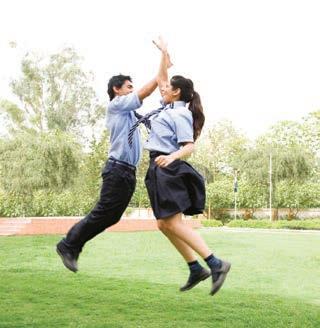

91 Module 8
12345678
Places to visit
Vocabulary
1 Listen and repeat the words. aquarium • art gallery • campsite • castle • cathedral • fishing port • market • monument • safari park • statue • town square • water park
2 Match pictures 1–6 with the places in exercise 1. Which places are not in the pictures?

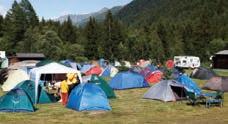
3 Choose the correct words.
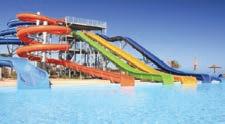
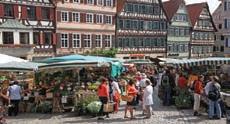
1 Nelson’s Column is a statue / an art gallery in London.
2 The Peles is a famous castle / art gallery in Sinaia.
3 The Prado is a market / an art gallery in Madrid.
4 St. Paul’s is a campsite / cathedral in London.
5 The Great Wall of China is a monument / market in China.
Listening
Evening plans
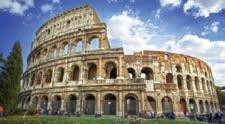

4 Write sentences about your holiday preferences. Use the words in exercise 1 and your own ideas. I prefer beaches to water parks.
5 PERSONAL PROJECT
The Map of Natural Curiosities
Follow the link: https://www.youtube. com/watch?v=fbgELNEy7fw
Watch the video. Choose one of the ten natural wonders presented and place its fact sheet on the world map. Design a PowerPoint presentation and present your slides to the class.
6 Listen to the conversation between Natalie and her aunt. Where is Natalie going tonight? Where is she going in August?
7 Listen again. Are the sentences true or false?
1 Natalie received her exam results.
2 Sophie is making pizza at the party.
3 If it doesn’t rain, they are eating outside.
4 Natalie thinks it is raining tonight.
5 Natalie isn’t working at the market all summer.

92
1 2 3
5 6
4
Speaking
At a holiday camp
Read and listen to the dialogue. What do Molly and Abbie decide to do?
Model dialogue

Molly Abbie visit the see a film dancing
Speaking task
1 Talk about preferences
Read the advertisment and choose an activity.
2 Now you speak!

✭ Beach volleyball game: Today at 11 am.
✭ Dolphin show at the aquarium: Today at 2 pm.
✭ Beach barbecue: Tonight 8 pm.
✭ Karaoke night! Tonight 8 pm.
✭ Open air party: Tonight at 9 pm.
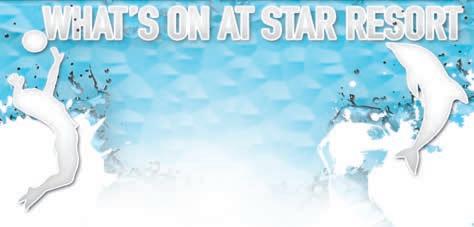
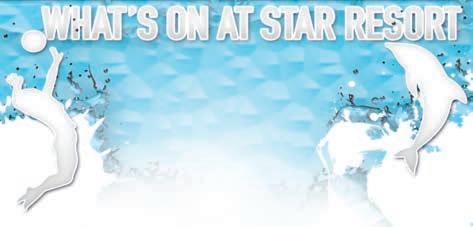
Useful
language
Look at the Model dialogue. Prepare a new dialogue by changing the words in blue and practise it with a classmate.
What are we doing today?
We could go to the dolphin show.
Pronunciation
Present simple and past simple
a Listen and repeat.
1 a) It receives 10 million visitors.
b) It received 10 million visitors.
2 a) We look at the cards.
b) We looked at the cards.
3 a) They study Italian.
b) They studied Italian.
b Listen again. Do you hear a) or b)?

93 Module 8
Writing
An e-mail
1 Read the Model text and listen. Answer the questions.
1 Where is Naomi at the moment?
2 Was it an easy year for her? Why not?
Model text
Hi,
3 Where is she going on holiday?
4 What is she doing there?
I’m sitting outside and I’m feeling really excited. The holidays are beginning! This wasn’t an easy year for me. We moved here last July and I started my new school in September. But I was lucky – all my classmates were really friendly from the first day. Once, when we did a class project, they all came to my house to write a song together. I made some amazing new friends. And the holidays? We’re going to Malta for two weeks. My dad was born there. It’s an oportunity to explore the island and have a good time. Did you have a good year? What are your plans for the summer? Write soon, Naomi
2 Look at the Tips. Find examples of 1–3 in the Model text.
past simple We moved here last July
1 past simple
2 present simple
3 present continuous
3 Write complete sentences. Use past and present tenses.
We / finish / school / yesterday.
We finished school yesterday.
1 I / always pass / all my exams.
2 Last week / we / visit / a museum in Rome.
3 Tonight / we / have / a party to celebrate.
4 I / write to you / and I / eat / an ice cream now.
5 He / go / to the cinema / yesterday.
4 Put the instructions for replying to an e-mail in the correct order.
… Then think carefully about what you need to say.
1
… First, choose ‘reply’ on the e-mail you need to respond to.
… Correct any mistakes you see and read it again to have a last check.
… After that, check the e-mail by reading it carefully.
… Next, write the e-mail.
… Finally, choose ‘send’.

Tips
Verb tenses
Use a variety of verb tenses to make your writing more interesting.
5
Writing Task
1 Plan
Write a reply to Naomi’s e-mail. Make notes and include:
What you are doing / Your feelings: I’m sitting outside … . I’m feeling Your year I had a great year / made a lot of friends / learnt a lot
Your holiday plans We’re going to … .
2 Write
Use the Model text, your notes and this structure:
Paragraph 1 What you are doing, your feelings
Paragraph 2 Your year
Paragraph 3 Your holiday plans
3 Check
past and present tenses vocabulary for places to visit different verb tenses
94
Self-check 8 Reading and writing
Beaches
in the UK


The UK has some very popular beaches. Some are peaceful and wild and others are popular with tourists.
Newquay is in the southwest of England. It has a population of over 10,000. It was originally a fishing port, but now it is a popular tourist destination. Newquay has nine sandy beaches and it’s the UK’s surfing capital. Every year, there are international surfing competitions. The surfer in the picture competted in Europe’s biggest surfing competition in Newquay.
Blackpool is the most popular seaside town in the UK. It receives about 10 million visitors every year. It was the first town in the world to have electric street lights. It is also famous for its tower. Blackpool is about 50 km from Liverpool and The Beatles played several concerts there in the 1960s.
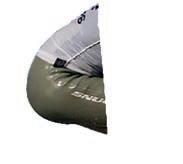
1 Read and listen. Then answer the questions.
1 Where is Newquay?
2 How many beaches does it have?
3 What competitions take place in Newquay?
4 How many visitors go to Blackpool every year?
5 What is Blackpool famous for? ---- / 15
2 Writing
Write an e-mail to a friend. Tell him / her about your plans for the summer holidays. Use 50–70 words. ---- / 15

95 Module 8
Self-check 8 Vocabulary and grammar
3 Complete the words with vowels.
1 ch t
2 r ll th d c
3 m v c n t r
4 l s
5 m s s t r n
10
4 Look at the following pictures of places and name them.
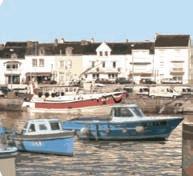
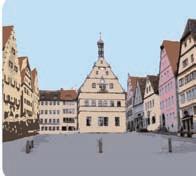


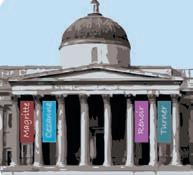
5 Complete the text with the past simple form of the verbs in brackets.
/ 10
Last year, we (1)… (go) to Madeira on holiday. There we (2)… (visit) a museum and I (3) … (meet) a school friend. We (4)… (spend) time swimming and playing on the beach.
One day I (5)… (hear) a familiar voice. It was another school friend!
/ 10
6 For each sentence, put either the negative or question form, depending on what is asked for.
1 Jason went to Paris last weekend. (question – where?)
2 I saw Jane during the meeting. (negative)
3 She drove a BMW to the party last night. (question – what car?)
4 The Queen visited Australia last summer. (negative)
5 They bought a new house in Rome. (question – where?)
/ 10
7 Complete the sentences with can or may.
1 … you help me with my homework, dad?
2 … I go out tonight?
3 … I use your laptop for half an hour?
4 … you shut the window? It’s very cold!
5 … you tell me the gym schedule, please? ---- / 10
8 Complete the dialogue with the correct form of the verbs in brackets.
Lou Hooray! The school year (1) … (be) over!
Will What shall we (2) … (do) tonight? We could (3) … (go) to the cinema or we could (4) … (watch) a film at my house.
Lou I’d rather (5) … (watch) a film. I (6) … (not have got) any money.
Will Izzie (7) … (not do) anything tonight.
Lou But she usually (8) … (play) chess on Friday with her cousin.
Will She (9) … (not play) tonight because her cousin (10) … (go) to New York yesterday.
Lou Cool! I’ll phone Izzie. ---- / 20
Total ---- / 100
Ø talk about games & holidays; Ø correctly use the modal verbs can & may to make polite requests; Ø talk about preferences; Ø write an e-mail
96
----
/
1 2 3 4 5 ----
----
----
Don’t forget to complete the Behaviour observation sheet according to the example on page 7!
Now I can:
Information technology Dot-com companies
Silicon Valley is south of San Francisco. It’s home to many large technology companies such as Apple and Hewlett-Packard and also many dot-com companies. These are companies like Google, Facebook and eBay which operate mainly over the internet.
But where did the dot-com company come from?
In 1985, the world found out about the World Wide Web. A company called Symbolics became the first company to register its address, or URL, on the web. Today, there are 200 million websites in existence, and people register one new domain every three minutes in the UK, alone. But it took a long time for the internet to become the phenomenon it is today. It was when Sir Tim Berners-Lee put up the first website in 1990 (info.cern.ch), that the internet took off.

During the 1990s, there was a dot-com boom. Many people became rich because of the World Wide Web. In 1998, PhD students Larry Page and Sergey Brin invented Google. These days, this search engine is the world’s most recognizable brand and, in 2022, its value was around $1 trillion.
1 Choose the correct answers.
1 What does ‘www’ mean?
a) World Wide Web
b) World World Website
c) We Work WorldWide
2 What is a URL?
a) a computer virus
b) a web page address
c) an e-mail address
3 Which of these is not an internet browser?
a) Internet Explorer
b) Google Chrome
c) Amazon
4 What ‘language’ do you use to write a web page?
a) HTML b) URL c) HTTP
2 Find four companies in the wordsearch.
Go to the Digital competence 4 on page 111 to practise your digital skills.
97 CLIL activities
OEOGDGLA YWWLOOFP FACEBOOK APSUMGFL CPGAPLLF ELOOGEBA REREBAYC
Round up 2 (Module 5-8)
Vocabulary practice
Fill in the gaps with the right words.
START
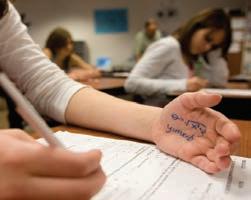
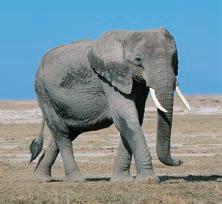
The e… is the biggest land animal.
You should always recycle glass b… .

When I am 18, I want to g… t… u… . She is c… .
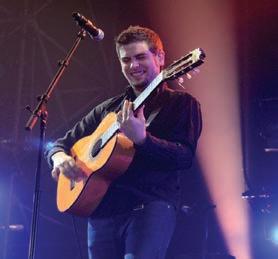
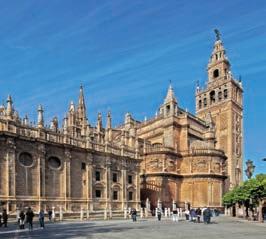
Seville has got the largest c… in Spain.

p… b…

This game is difficult. I g… u… !


Jumpers, gloves and scarves are often made of w… .

This is a very famous s… in New York.
98
José Muñoz plays the g… in Estopa.
The
lives in the Arctic Circle.
FINISH
Round up 2 (Module 5-8)
Grammar practice
1 Write C (countable) or U (uncountable) for each noun. Then write the plural forms of countable nouns and make those uncountable countable.
1 juice 2 butter
3 carrot
4 bread
5 jam
6 apple
7 sugar
8 rice
9 onion 10 egg
2 Choose the correct words.
1 Yesterday I bought a jar of / a carton of honey.
2 Mom drinks a cup of / a bottle of coffee every morning.
3 My friend gave me a bar of / a tin of chocolate.
4 Each Sunday we eat a piece of / a kilo of pie.
5 They brought a bottle of / a packet of orange juice at the party.
6 Do you have a bowl of / a loaf of soup for lunch every day?
3 Order the words to make questions.
1 yesterday / Was / hot / it / ?
2 from / Where / Cervantes / was / ?
3 she / Was / last week / at school / ?
4 you / happy / last night / Were / ?
5 tired / Why / your friends / were / ?
6 you / in bed / Were / at 11pm / ?
4 Complete the sentences with the past simple form of the verbs in brackets.
1 He … (ride) a camel in Tenerife.
2 I … (spend) a great holiday last summer.
3 We … (find) some money in the park.
4 Tom … (not arrive) home late last night.
5 My grandad … (buy) a new house.
6 Sally … (win) the chess competition yesterday.
7 They … (forget) to call me.
5 Write complete sentences using the right tenses.
1 We / play / cards / at the moment.
2 Paula / win / and I / lose / last night.
3 We / often / play cards / on Saturday afternoon.
4 We / usually / meet / at Katie’s house.
5 We / not play / at Martha’s house yesterday.
6 She / watch / the football match at the stadium / last Sunday.
7 My brother / always / lose / his keys!
6 Correct the sentences.
1 She maked lots of friends.
2 We aren’t go to work by tram.
3 The holiday last year costed £2000.
4 Where went you yesterday?
5 ‘Did he invent the car?’ ‘Yes, did he’
6 Do he usually have a good time at parties?
7 How many books she read last summer?
8 I play a computer game at the moment.
9 The teacher get angry because Tom cheated at the test yesterday.
7 Complete the sentences with can or may to make a polite request.
1 … I use your car today?
2 … I sit here?
3 … you please get me a cup of tea?
4 … I ask you a question?
5 … I take your umbrella today?
6 … you come outside and play with us?
7 … you lend me this book, please?
8 … I borrow your bike?
9 … I have another cake, please?
10… you help me with this translation?

99
Round up 2
Writing guide 1
Text type: A description of a film
TASK Write a description of a film. Follow the steps below.
1 READ THE MODEL Text
1 Read the Model text. Who are the important characters in the film series The Hunger Games?
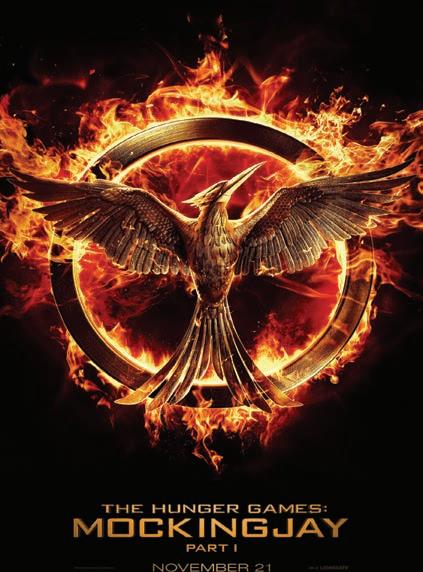
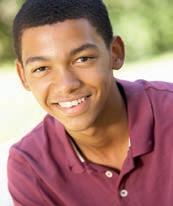
My favourite film is The Hunger Games: Mockingjay Part 1 It’s an American science-fiction adventure film.
The film is the third film in The Hunger Games series and follows Katniss Everdeen, the survivor and winner of The Hunger Games. Another important character is Peeta Mellark, another player in the games. Jennifer Lawrence is Katniss and Josh Hutcherson is Peeta.
I really like this film because the special effects are fantastic.
2 Read the Model text again and choose the correct words.
Liam’s favourite book / film is one of The Hunger Games series.
1 It is a(n) American / British film.
2 Katniss Everdeen is a winner / loser.
3 Read the Model text again and answer the questions. What type of film is it?
It’s a science-fiction adventure film.
1 What is the film about?
2 Who are the actors?
3 Why does Liam like the film?
100
2
plan YOUR TEXT
Think of your favourite film. Then complete the notes about it.
Title:
Type of film:
What is it about?
Who are the characters?
What do the characters do?
Who are the actors?
Why do you like the film?

Now use the information from Step 2 and write a complete description.
1 My favourite film is (1) . It’s a(n) (2) film.
2 The film is about (3) . The important character(s) is / are (4) . He / She / They (5) . The actor(s) is / are (6)
3 I really like this film because (7)
3 write YOUR TEXT
Write about another film you like.
4 check YOUR TEXT
Check your: Grammar Vocabulary Spelling

101 Writing guide 1
Writing guide 2
Text type: A description of a person
TASK Write a description of a person. Follow the steps below.
1 READ THE MODEL Text
1 Read the Model text. Is Adrian Monk a real person or a fictional character?
My favourite film or TV hero Hi!
My favourite TV hero is Adrian Monk, from the TV detective series, Monk. He’s a private detective. He was a police officer in the past. Monk is strange. He tidies everything and he cleans a lot, too. He isn’t good-looking or brave, but he always finds the criminal. He’s got a friend called Natalie. He’s also got two friends who are police officers. They all work together to solve mysteries.
I like Monk because he’s got problems, but he’s a good person and he works with the police, too. He’s also the most intelligent person on TV. In the future, I think Monk wants to marry Natalie. I don’t think he wants to become a police officer again.
Jake
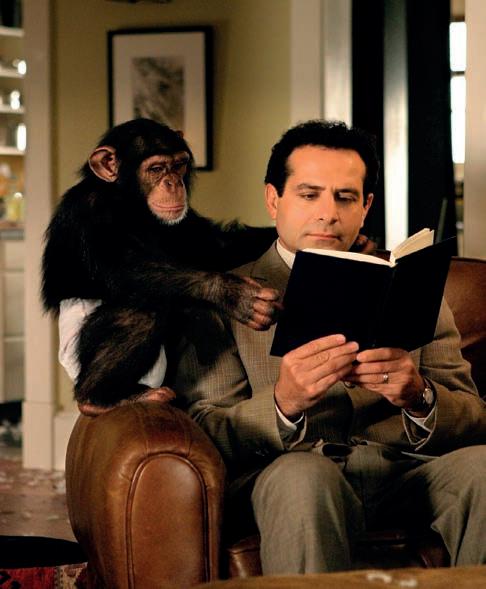
2 Read the Model text again and decide if the sentences are T (true) or F (false). Adrian Monk is a police officer. T / F
1 He isn’t very good at his job. T / F
2 He works with his friends. T / F
3 He is very clever. T / F
4 He is married to Natalie. T / F
3 Match the sentence halves and write them.
1 Adrian Monk was c a) he also cleans a lot.
2 Monk tidies everything and b) work for the police.
3 Two of his friends c) a police officer.
4 Monk is a good person d) marry Natalie.
5 Jake thinks Monk will e) and he’s intelligent, too.
102
2 plan YOUR TEXT
Look at the notes about Matt Damon.
My favourite film or TV hero
Name: Matt Damon
What does he do?
– Hollywood actor


– makes films about people who are special or different
– best film The Bourne Identity; Good Will Hunting is also good
What’s he like?
– not very tall, but intelligent
– likes sport
Why do you like him?
– he makes good films
– he works with people in Africa
What else do you think he wants to do?
– do more work in Africa and in politics
– make a lot of good films
Now use the information from Step 2 and choose the correct words to write a complete description of Matt Damon.
Hi!
1 My favourite film or TV hero is Matt Damon. He’s a (1) Hollywood actor . He often makes films about (2) . I think his best film is The Bourne Identity, but I (3) also / too like Good Will Hunting.
2 Matt Damon isn’t very tall, but he’s (4) . He likes sport (5)also / too.
3 I like Matt Damon because he (6) films and (7)also / too because he works with people in Africa.
4 I think he desires to do more work in Africa and (8) and I think he (9)also / too wants to make more good films.
Clare
3 write YOUR TEXT Write the description of your favourite film or TV hero.
4 check YOUR TEXT Check your: Grammar Vocabulary Spelling

103 Writing guide 2
Writing guide 3
Text type: A biography
TASK Write a biography. Follow the steps below.
1 READ THE MODEL Text
1 Read the Model text. What was Florence Nightingale’s job?
Florence Nightingale
I think one of the most interesting people in history was Florence Nightingale. She was born in 1820. She became a nurse in 1844.
In October 1853, the Crimean War started. Florence wanted to help the soldiers, so she travelled to the war. There were thousands of soldiers in the hospital and it was dirty. There were rats and some men didn’t have beds.
Florence and the other nurses cleaned the hospital and helped the soldiers. She died at 12pm on 13th August 1910.
I like Florence Nightingale because she wanted better hospitals and training for nurses.
Nina
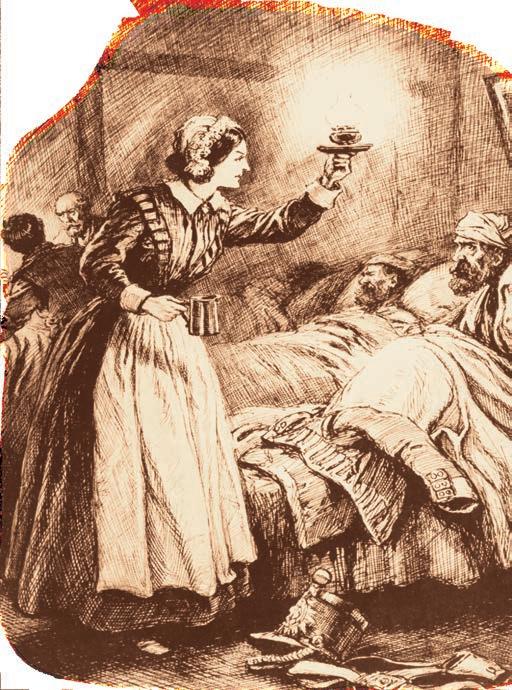
2 Read the Model text again and choose the correct words.
Florence Nightingale was born in 1820 / 1844.
1 She lived and worked in the 18th / 19th century.
2 She worked in the Crimean War / First World War.
3 Read the Model text again and answer the questions. Why did Florence Nightingale go to the war? She wanted to help the soldiers.
1 What was the hospital like?
2 What did the nurses do in the hospital?
3 When did Florence Nightingale die?
4 Why does Nina like Florence Nightingale?
104
2 plan YOUR TEXT
Look at the notes about Mozart.
Wolfgang Amadeus Mozart
Born: 27th January 1756
What job did he do? composer and musician
What was special about him? child genius, could play piano and violin before he was five

Now use the information from Step 2 and complete this biography of Mozart.
Wolfgang Amadeus Mozart
What did he do? composed more than 600 operas, concertos and symphonies visited many important European cities (Munich, Paris, London, Prague)
Died: at 1 am on 5th December 1791
Why do you like him? a brilliant composer – his music is very important today
Use in before months and years. Use at before times. Use on before days and dates.
1 I think one of the most interesting people in history was Mozart. He was born in (1) 1756 . He was a (2)
2 Mozart was a child genius. He could play (3) before he (4) . Mozart composed more than (5) concertos and symphonies. He was very famous and he (6) many important European cities, like Munich, Paris, London and Prague. He died (7) .
3 I like Mozart because (8) .

105 Writing guide 3
write YOUR TEXT Write a biography of another famous person.
check YOUR TEXT Check your: Grammar Vocabulary Spelling Remember!
3
4
Writing guide 4
Text type: A story
TASK Write a story. Follow the steps below.
1 READ THE MODEL Text
1 Read the Model text. Then choose the best title for Mary’s story.
a) A great day out
b) A terrible afternoon
c) Mary’s favourite film
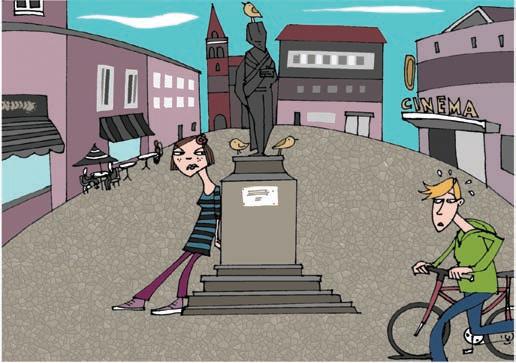
Last Saturday, I went into town to meet my friend Jack, but there were lots of problems.
First, I missed my bus, so I waited half an hour for the next bus. When I arrived in town, I went to a café. I tried to buy a drink but I didn’t have my bag. It was on the bus!
Then I went to the main square to meet Jack at 5 o’clock, but he wasn’t there. He arrived at 5.45 because there was a problem with his bike. In the end, we went to the cinema, but the film was really boring so I went to sleep!
2 Read the Model text again and number the events in the correct order.
Mary and Jack saw a boring film.
Mary went to a café.
Mary met Jack.
1 Mary missed the bus.
Mary waited half an hour for a bus.
Mary went to the main square.
Mary and Jack went to the cinema.
3 Read the Model text again and answer the questions.
Why did Mary wait half an hour for a bus?
She waited half an hour because she missed her bus.
1 Where was Mary’s bag? It was .
2 Why did Jack arrive at 5.45?
He arrived at 5.45 because
3 Did Mary like the film?
4 Circle the words first, then and in the end in the Model text.
106
2 plan YOUR TEXT
Match the notes 1–3 with the pictures a–c.
1 Picture c – not relax and sunbathe – not buy any souvenirs – buy an umbrella
2 Picture – decide to go to Blackpool for the day – prepare a picnic – go to the station and take a train
3 Picture – arrive in Blackpool at 11 o’clock – go to the beach – start to rain
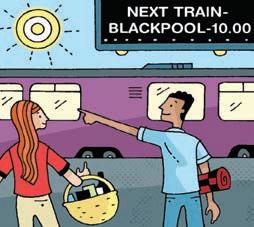
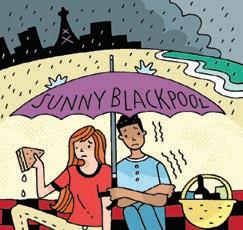
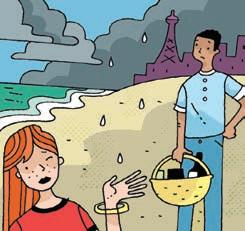
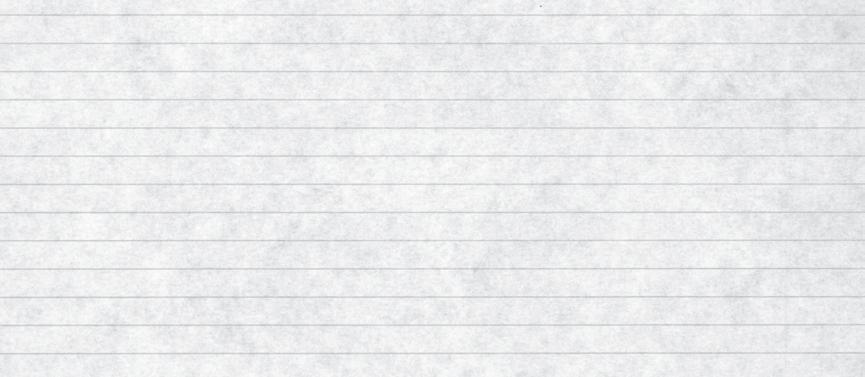
Now use the information from Step 2 to complete Sarah’s story. Use the past simple.
1 Last Saturday, Paul and I (1) decided to go to Blackpool for the day.
2 First, we (2) a picnic. Then we (3) to the station and took a train. We (4) in Blackpool at 11 o’clock.
3 Then we (5) to the beach, but it (6) to rain. We (7) or (8) and we (9) any souvenirs. In the end, we (10) an umbrella!
3 write YOUR TEXT
Write Sarah’s story or your own story.
4 check YOUR TEXT
Check your: Grammar Vocabulary Spelling

107 Writing guide 4
c
a b
A disastrous day out!
Digital competence 1
Digital comic artwork
Read and look at the comic strip. How do Emma and Amir help Sam?

TASK 1
Step 1
Create a comic for a school campaign. Follow the steps below.
Step 2
Choose one of these campaigns: bullying collecting money for charity healthy eating
Decide on two to four characters and write a short dialogue for the comic. Decide which speech bubbles go in each box.
Step 3
Create your comic. Use a digital comic generator if possible. Experiment with the page design, characters and backgrounds. Add a title.
Step 4
Show your comic to the other students in your class.
Step 5
Read your classmates’ comics. Which do you like best? Why?
TASK 2
Follow the link: https://www.youtube.com/watch?v=ffzIhWoi5ac
Watch the video about bullying. What types of bullying are mentioned in the video? Write down some steps you can follow if you witness an act of bullying or if you are its victim.
108
Digital competence 2
A collaborative wall
Look at the collaborative wall and find an example of:
a recipe a photo a video about making a pancake a definition of pancake
15:50
Pancake Day!
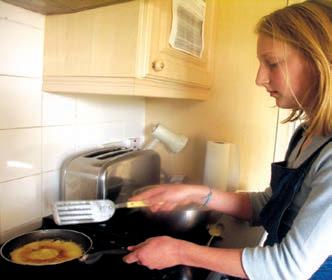
TASK 1
Step 1
Here’s a picture of the pancakes we made! Trix, 9 days ago
A pancake is a thin cake. You make a batter and fry it in a pan. You can add sugar and lemon for a sweet pancake, or chocolate for another topping. Trix, 5 days ago
Make as many words as you can from the letters
N S cat take son pack cake
Sara, 5 days ago
Recipe for pancakes
Ingredients:
110 g flour
2 eggs
200 ml milk +
75 ml water
50 g butter
Instructions:
1. Mix the ingredients (flour, eggs, milk and water) in a bowl.
2. Whip them well.
3. Put the butter in a frying pan and melt it.
4. Pour a small amout of mixture in the pan and cook it on both sides.
5. Serve with honey, chocolate or jam.
Create a collaborative wall. Follow the steps below.
Step 2
Find information, videos and photos about a type of food.
TASK 2
Step 3
Create a collaborative wall. Use a digital generator if possible.
Put the information from Step 1 on your Wall. Try to include a puzzle.
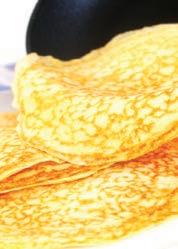
Sara, 2 days ago
Step 4
Show your wall to the students in your class. Ask them to add information.
Step 5
Read your classmates’ walls and add information. Who has the best one?
Follow the link:
https://www.youtube.com/watch?v=zuF7nHtPC4g
Watch the video about Pancake Day. Write down 3 sentences about this celebration. What’s another name for Pancake Day? Why?
109
P A N C A K
D
L E B R A T I
E
A Y C E
O
LOG IN HOME RECIPES FAQS SEARCH
Digital competence 3 Digital avatars
Answer the questions.
1 What are avatars? 2 Where can you see avatars?
Read the interview. Who is the famous person?

What is your name?
Where and when were you born?
What did you do?
What was your most famous car?
When did you invent it?
Thank you for your answers Mr Ford! Goodbye.
Henry Ford.
I designed cars and had a company that made cars.
I was born in July 1863, in the USA. It was the Model T.
I invented it in 1908.
Goodbye.
TASK
Step 1
Create avatars and interview a famous person. Follow the steps below.
Choose one of these famous people:
Step 2
Find information about the person you chose. Make notes:
Name and birth details
What did they do? When did they do it?
Step 3
Create two avatars: one for you and one for the famous person. Use a digital avatar generator if possible.
Step 4
Write the interview using the information in Step 2.
Step 5
Read your classmates’ interviews. Who has the best avatars?
110
Amelia Earhart
Steve Jobs
Pablo Picasso
Digital competence 4
A wiki
Read the task and look at the wiki. What is it about? What things does it include?
Fashion in the 1960s!
The 1960s was a time of big social and political change in Britain and the USA. Fashion changed a lot, too. Important fashion trends in the 1960s
• The bikini became popular in 1963.
• Mary Quant invented the mini-skirt in 1964.
• In the 1960s, there was a famous band called The Beatles. They had longer hair and they wore suits with thin ties. Young people wanted to look like them!
• In the late 1960s many people became hippies. Men and women had long hair. They wore flared trousers.
• Women first wore mini-skirts in the 1960s. They are still popular today.
• Long hair became popular with men.
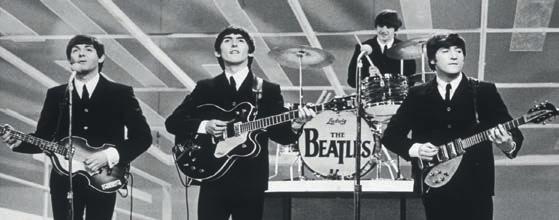
Step 1
Decide what you want to put on your wiki (text, photos, etc.).
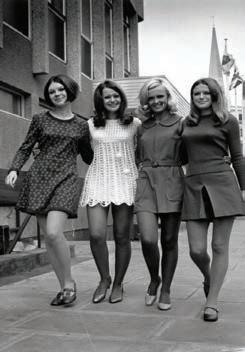

Step 2
Decide who is responsible for each part of the wiki.


Find information and photos for your part of the wiki. Add them to the wiki. Create a class wiki about fashion. Follow the steps below.
Step 3
Step 4
When the class wiki is finished, read your classmates’ work. Then invite other people to view yours.
b) What is more important for you: price, quality, quantity, or fashion status? Why? TASK 2
Follow the link: https://www.youtube.com/watch?v=GvovLPbrxC8
Watch the video about fashion and answer the following questions:
a) Is fashion important for you? Why?
111
TASK
1
Main page Contents Help Contact Tools Create a book Download as PDF Printable version Languages English Español Français Italiano Search W
File Edit History View Navigate Tools Hotlist Help
Wiki home > Search > EDIT > SAVE > PRINT
The Festivals and celebrations all over the world section of this textbook is elective. Teachers may choose to use it for language development according to the students’ level and interests in the culture and civilization of English speaking countries. It could be a useful resource to use in the Alternative Education Week.

Bonfire Night
Bonfire Night (or Guy Fawkes Night) is celebrated in the UK on 5 November and the night skies fill with colour. It’s a special day in honour of a historic event.
History
The year was 1605 and some English Catholics were angry because King James I treated them badly. A group of men made a plan to blow up the Houses of Parliament in London on 5 November, the day that the king was due to open Parliament. The plan became known as the ‘Gunpowder Plot’ and the leader of the group was Guy Fawkes. The men put 36 barrels of gunpowder in the Houses of Parliament and waited for the king to arrive. The group decided that Guy Fawkes had to light the gunpowder and cause the explosion. They didn’t succeed because the king’s soldiers found the gunpowder before it exploded and they caught all the men involved in the plot. To celebrate his survival, King James ordered the people of England to have a bonfire on the night of 5 November.
Bonfires, Guys and fireworks
On 5 November, people remember the plot to blow up the Houses of Parliament by celebrating ‘Bonfire
Night’. All over Britain there are firework displays and bonfires with models of Guy Fawkes, burned on the fire. People make the Guy out of old clothes and they fill them with newspaper. The fireworks are a reminder of the gunpowder that Guy Fawkes hid in the cellar of Parliament. Some people have a small bonfire in their garden on 5 November, while in main towns and cities there are big bonfires and firework displays.
Food
Traditional Bonfire Night food is hot baked potatoes. People cook them on the bonfire and fill them with butter and cheese. There are also toffee apples (apples on a stick, covered in sweet toffee) and in the north of England they eat a special type of cake called parkin. Toasting marshmallows on the bonfire is also popular. Yum!
Penny for the Guy
In Britain only adults can buy fireworks, but in the past children could buy them, too. During the days before Bonfire Night, children take their homemade Guys onto the streets and ask for ‘a penny for the Guy’ to collect money to buy fireworks. Now you have to be over 18 to buy fireworks, and safety on Bonfire Night is an important issue.
112
Festivals and celebrations all over the world



1 Read the text again. Answer the following questions.
1 Who was the King of England in 1605?
2 Why did the plotters want to blow up the Houses of Parliament?
3 How many barrels of explosives were there?
4 Why didn’t the plot succeed?
5 What do the fireworks represent?
6 What are toffee apples?
7 What do the British do on Bonfire Night?
2 Follow the link. Watch the video. https://www.youtube.com/watch?v=2eNLT-1MULU. What do these expressions refer to? “Remember, remember, the 5th of November!”
“A penny for the guy!”
3 PERSONAL PROJECT Which special days do you celebrate in Romania with fireworks or bonfires? Write about:
a) the name of the celebration; b) its significance; c) when it takes place; d) what people do on that occasion.
113
Mardi Gras
Mardi Gras, from the French words meaning «Fat Tuesday,» combines religious tradition with a carnival or festival to welcome spring. Mardi Gras is always 47 days before Easter. Mardi Gras reflects the practice of the last night of eating rich, fatty foods before the ritual of fasting. In countries such as the United Kingdom, Mardi Gras is also known as Shrove Tuesday. In 1857, the first parade rolled through the city streets on floats pulled by horses. One float was carrying the king on a throne and another carried a devil, made from paper, sitting among flames representing hell.
Balls and Parades

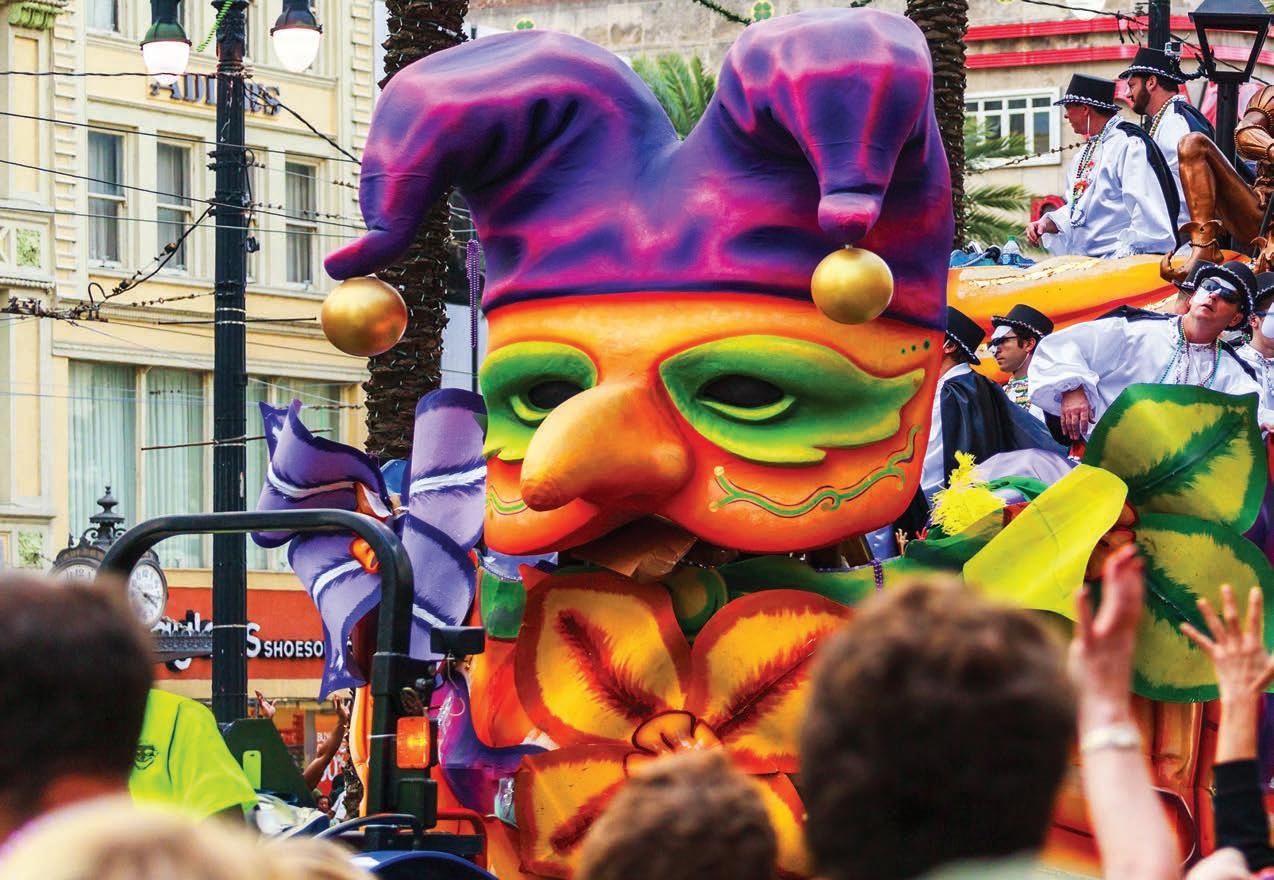
Today, hundreds of Mardi Gras clubs host grand balls and dozens of parades. Mardi Gras balls are opulent affairs with kings, queens, royal courts, and an abundance of pomp and pageantry. While most balls are only with elaborate invitations, everyone is welcome to attend the parades. During the 12-day period leading up to Mardi Gras, nearly 70 parades roll in the area. When you add band members, dance groups, clowns and motorcycle squadrons, the number of participants often totals more than 3,000.
The themes of the carnival have been taken from history, children’s stories, legends, geography, famous people, entertainment, mythology and literature. All the floats are decorated to fit the theme and every year the krewe (organization crew) picks a new theme.
Throw me something, Mister!
Along the parade route, costumed riders on sparkling papier – maché floats toss, “throw” to the greedy crowd who yells, “Throw me something, mister!” Along with beads, plastic cups and stuffed toys, parade-goers beg for prized throws like large tin coins, Zulu coconuts, Muses shoes, purses and anything that lights up. Marching groups, clowns and characters of all kind walk down the street to marching bands who provide the perfect soundtrack to Carnival Season.
Carnival Food
Because the whole point of Mardi Gras is to enjoy life’s excesses before Lent begins, Creole and Cajun dishes such as jambalaya, gumbo, red beans and rice are a major part of the celebration. On Mardi Gras people eat the famous king cake, an oval pastry with a sugary icing in Mardi Gras colors of purple, green and gold.
114

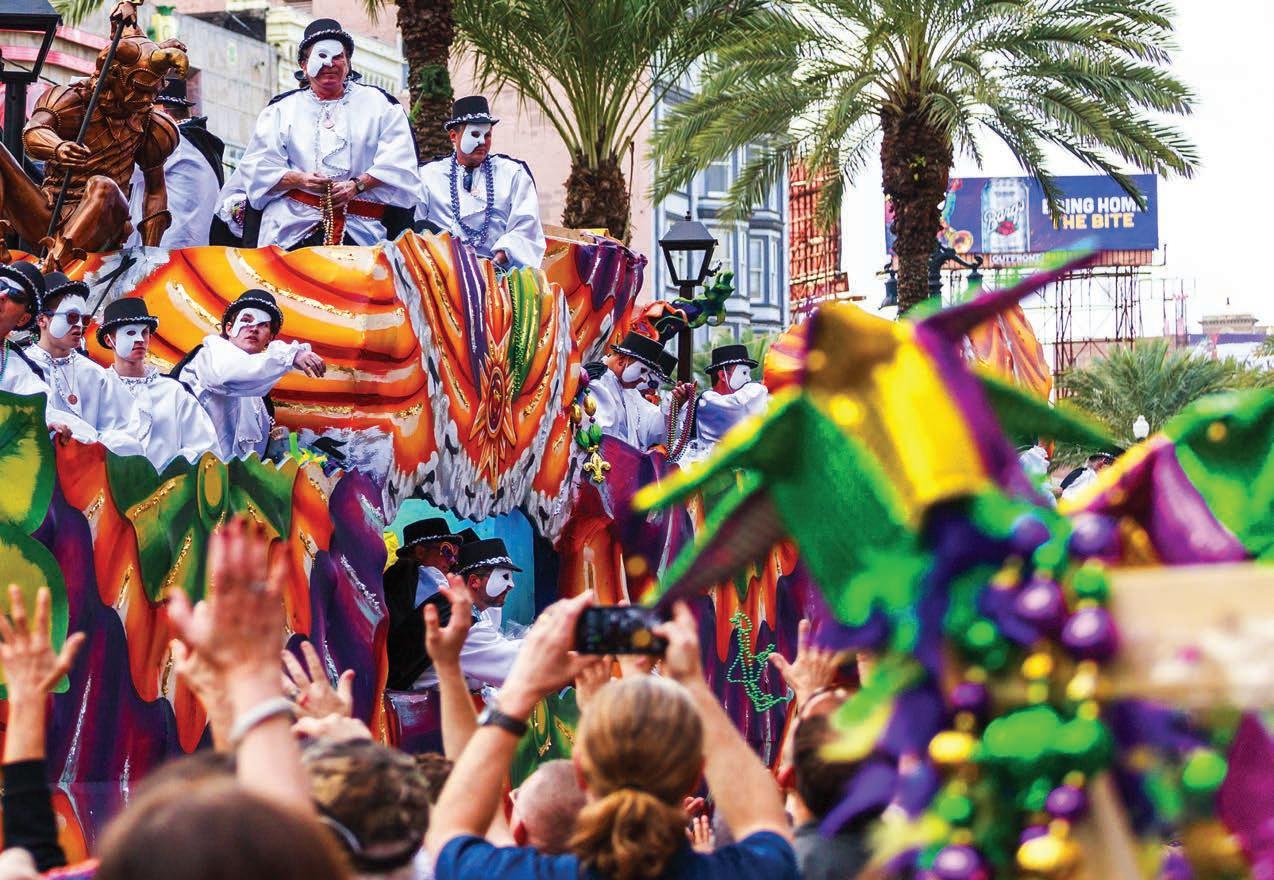
Each cake contains a small plastic baby, and the person who finds the baby must buy the next king cake. In 1872, Rex, the king of Carnival, proclaimed the official colours: purple represents justice, green stands for faith, and gold signifies power.
Masking
People wear masks during Mardi Gras so they can escape society and class constraints. When wearing a mask, carnival goers are free to mingle with whatever class they desired and keep their reputation untarnished. Today, wearing masks during Mardi Gras is tradition. Float riders wear masks by law in keeping with the mystery and tradition.
1 Choose the best answer for each question: true (T), false (F).
1 Preparations for Mardi Gras begin months beforehand.
2 Mardi Gras is also known as ”Fat Tuesday”.
3 Some of the floats date back to the 15th century.
4 The Mardi Gras floats are made of paper.
5 The official colours are purple, green and gold.
6 Wearing masks during Mardi Gras is forbidden.
2 Watch the video and name the best places to celebrate Mardi Gras across The United States. Which place do you prefer? Why?
https://www.youtube.com/ watch?v=13j5RM9jocQ
3 PERSONAL PROJECT
Card design
Design and write your own Mardi Gras card for a friend / classmate / relative. You can choose any other favourite celebration and design your card.
115
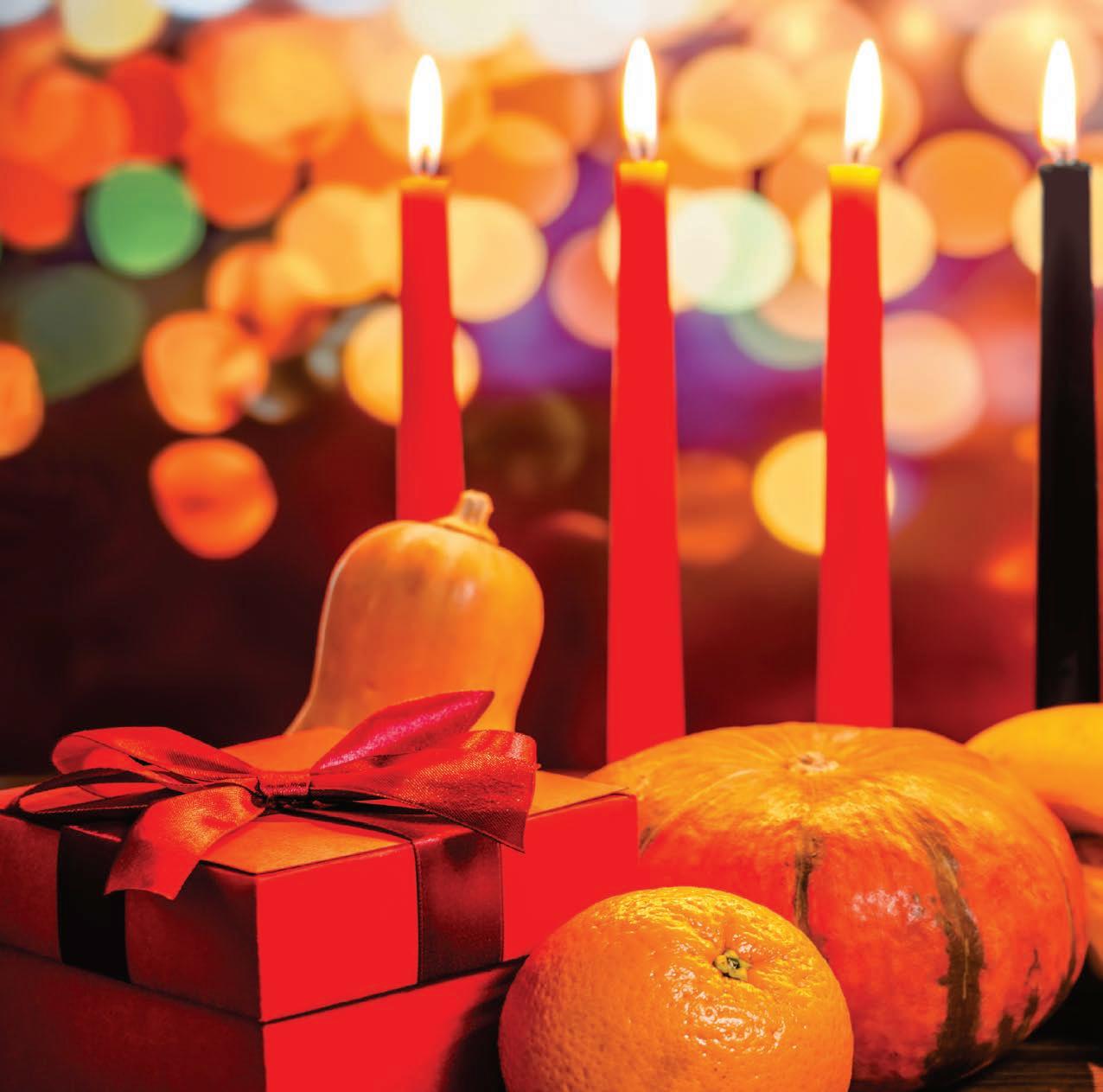
Kwanzaa
Kwanzaa is a week-long celebration held in the United States, honoring African heritage, culture and traditions. It is observed from December 26th to January 1st, culminating in a feast and gift-giving.
Kwanzaa is a festive time, but it’s also an occasion for reflection, conversation, contemplation and friendship.
Kwanzaa history
The word derives from the Swahili, a language spoken in eastern and south-eastern Africa, meaning “first fruits” and it is based on traditional African harvest festivals. Kwanzaa was initially celebrated between December 1966 and January 1967, as a way to help African-Americans remember their roots and also to encourage unity during a time of incredible racial conflict.
Families celebrating Kwanzaa decorate their households with objects of art, colorful African cloth and fresh fruits that represent African idealism. Celebrations often include songs and dances, African drums, storytelling, poetry reading, and a large traditional meal. On each of the seven nights, the family gathers and a child lights one of the candles on the candleholder, then the family discusses one of the seven principles.
Symbols
Along with the core principles, unity, self-determination, collective work and responsibility, co-operative economics, purpose, creativity and earth, come
some other symbols. Candles are ceremonial objects which symbolize the sun’s power. There are seven candles: three red, three green, and one black. The black candle symbolizes unity, the basis of success.
The green one represents the earth that sustains our lives and provides hope and the fruits of the harvest.
The red candle symbolizes people’s struggle, self-determination and creativity.
A mat, made from straw or cloth, on which to put the things needed for the celebration expresses history, culture, and tradition.
Fruits, nuts and vegetables represent the harvest festival in which joy, sharing, unity, and thanksgiving are the fruits of collective work.
The ear of corn represents fertility and symbolizes the future hopes of the family.
What Do People Do?
A Kwanzaa ceremony often includes performance of music and drumming, a reflection on some aspects of African history. Women often wear brightly coloured traditional clothing.
In recent years, it has become increasingly common
116
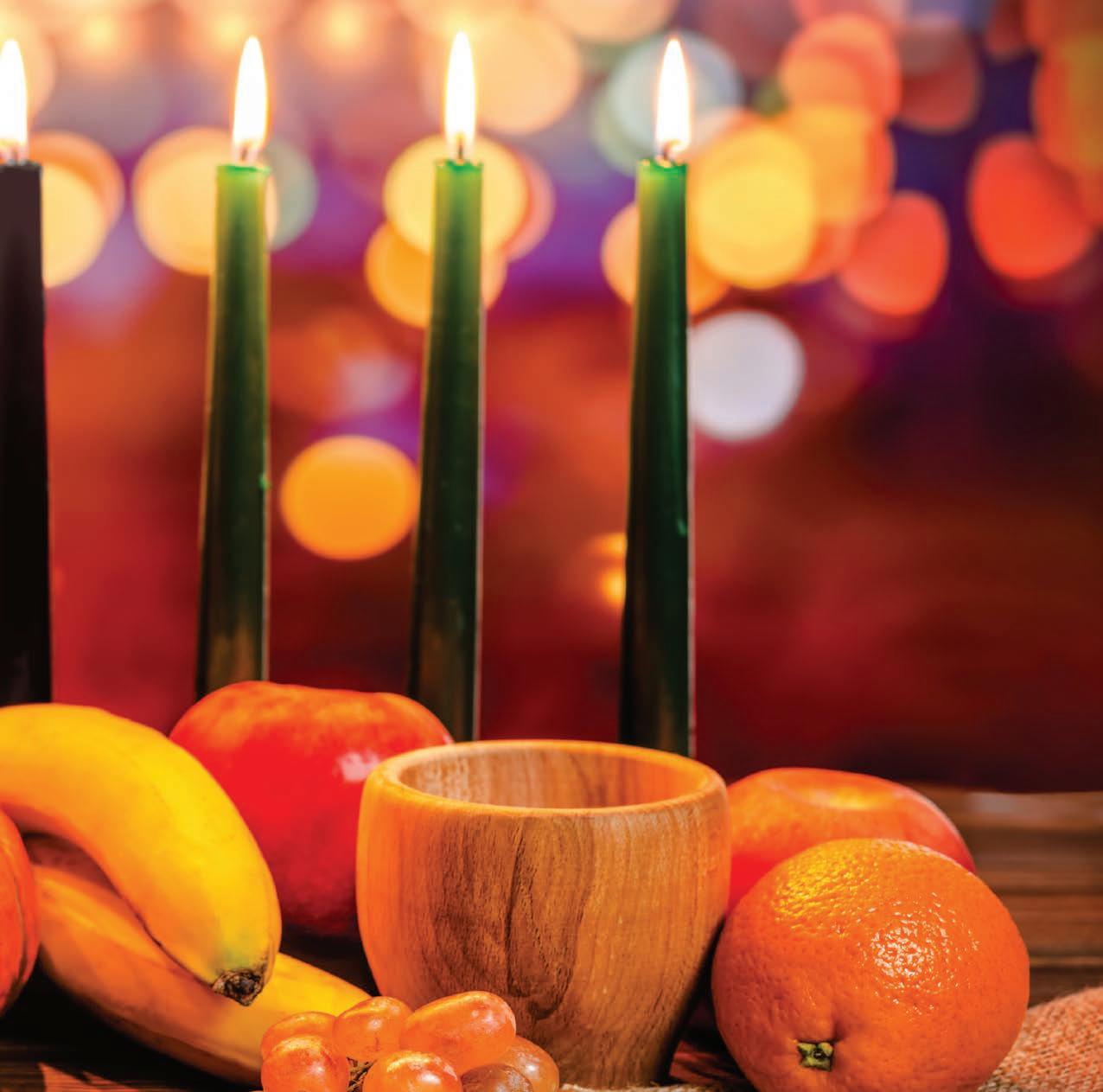
for people to mix elements of Kwanzaa with Christmas or New Year celebrations. A family may have both a Christmas tree and a Kwanzaa candle stick on display in their home. This enables them to include both Christian and African inspired traditions in their lives at this time of year.
Gifts
People celebrating Kwanzaa, exchange meaningful gifts with members of their families. Handmade gifts, such as homemade mats, candleholders,
1 Choose the right answer.
1 The holiday of Kwanzaa first started in: a) 1981 b) 1966
2 Which colour candle symbolizes unity? a) black b) red
3 What day of the year does Kwanzaa start? a) January 1st b) December 26th
4 What day of the year does Kwanzaa end? a) December 31st b) January 1st
5 How many days are in Kwanzaa’s holiday? a) eight b) seven
African dolls, food baskets decorated with traditional colors, are some good examples. The gift cements social relationships, allowing the receiver to share the duties and the rights of a family member. Accepting a gift makes the receiver part of the family.
Celebrated by millions throughout the world, Kwanzaa brings a cultural message which speaks to the best of what it means to be African and human in the fullest sense.
2 PERSONAL PROJECT
Follow the link below and watch the video. https://www.youtube.com/watch?v=t8Oh2g YHTK4
Answer the following sentences:
1 What kind of celebration is Kwanzaa?
2 When was it celebrated for the first time?
3 What is the first principle of Kwanzaa?
4 What does each colour of candles symbolize?
5 What does Kwanzaa teach people?
6 How can you describe Kwanzaa to a friend who knows nothing of it?
117

Flag Day
The History of Flag Day
The first annual recognition of the flag’s birthday seems to date back to 1885 when school teacher, BJ Cigrand, first organized a group of Wisconsin school children to observe June 14 - the 108th anniversary of the official adoption of “The Stars and Stripes” as the Flag’s Birthday. Cigrand, now known as the “Father of Flag Day,” continued to publically advocate the observance of June 14 as the flag’s “birthday”, or “Flag Day” for years.
Inspired by decades of state and local celebrations, President Woodrow Wilson officially established Flag Day by a Proclamation on May 30th, 1916. Various communities celebrated Flag Day for years after Wilson’s proclamation, but it was not until August 3rd, 1949, that President Truman signed an Act of Congress designating June 14th of each year as National Flag Day.
Since August 1949 the President proclaims the commemoration yearly, and encourages all Americans
in the country to display “The Stars and Stripes” outside their homes and businesses.
Observance of Flag Day
The National Flag Day Foundation holds an annual observance for Flag Day on the second Sunday in June. The program includes a ceremonial raising of the national flag, the recitation of the Pledge of Allegiance, the singing of the national anthem, a parade and other events.
Interesting Facts about Flag Day
It is interesting to point out that the United States did not even have a standardized flag until 1912! Called the “Stars and Stripes” or “Old Glory,” the flag is one of the most complicated in the world. No other flag needs 64 pieces of fabric to make.
The current flag has thirteen red and white alternating stripes (seven red and six white ones, representing the former 13 English colonies which on 4 July 1776 became independent of Great Britain) and fifty stars
118
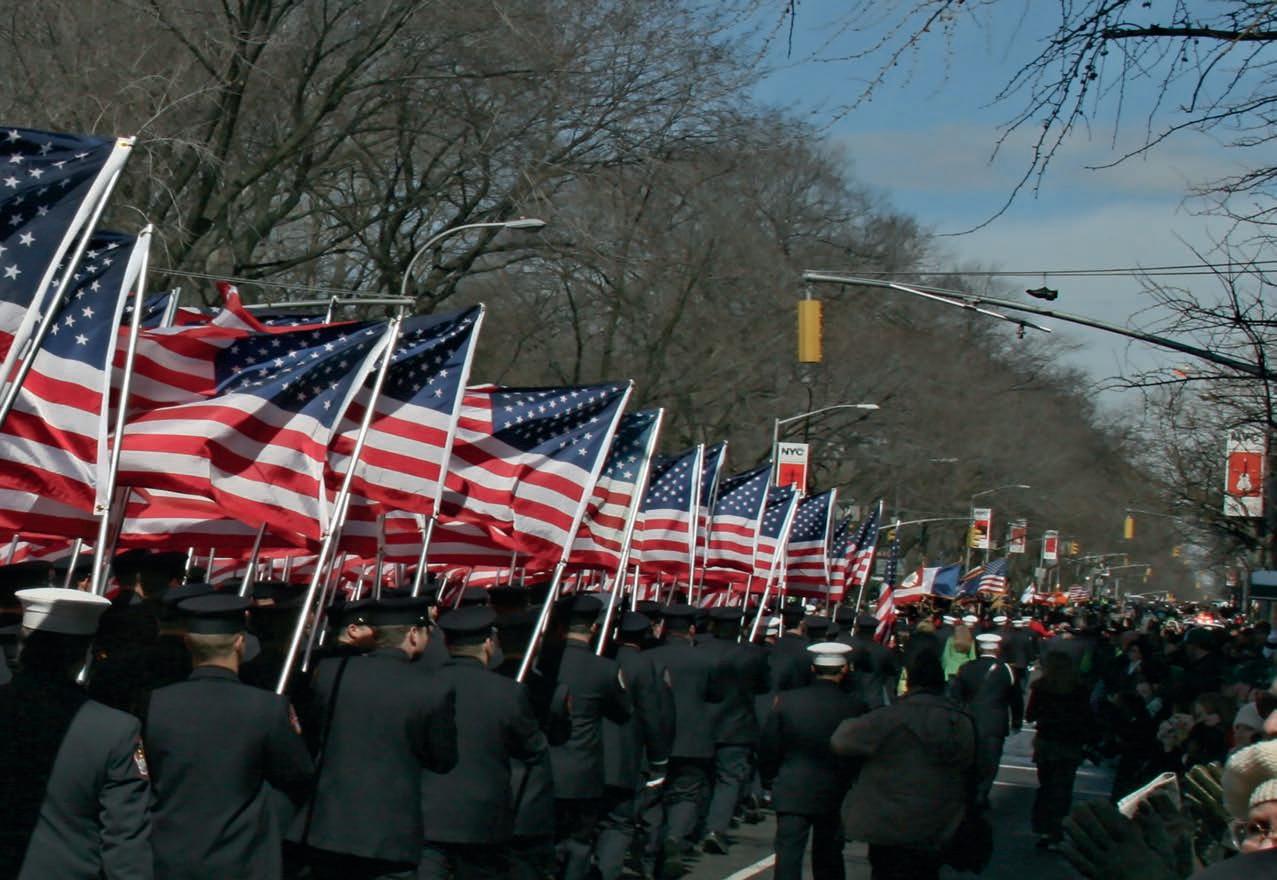
(each star represents one of the states of the Union) on a blue background representing a new constellation just as constellations in the night sky that stand forever. Red stripes represent valor, courage and hardiness; white stripes represent innocence and purity, a new country just born and starting on its own; the blue field on which the stars sit represents justice and perseverance.
1 The American flag is also nicknamed the “Stars and Stripes” because of its design. Can you identify what the design stands for?

The American flag has also changed designs more than any other flag in the world. The first flag, called the Grand Union, was flown at the headquarters of the Continental Army on January 1, 1776. Betsy Ross, a seamstress, is said to have contributed to this design. For this reason, another popular nickname for USA’s flag is Betsy Ross.
2 Follow the link below and watch the video. Write down who Francis Hopkinson and Betsy Ross were? https://www.youtube.com/ watch?v=PMwjjmjwQmw
3 PERSONAL PROJECT
Describe the national flag of Romania. Write about:
a) its history;
b) the significance of its colours; c) interesting facts about the Romanian flag.
119
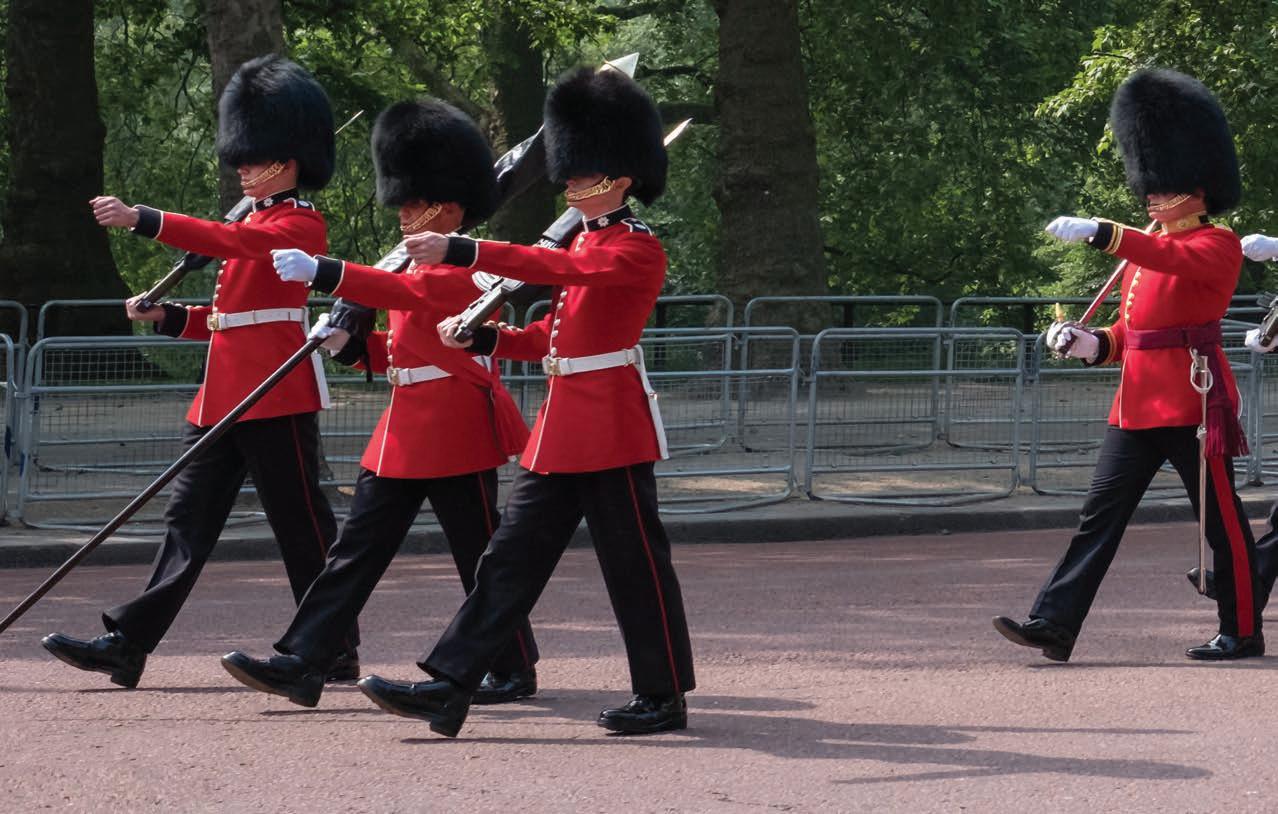
Troopingthe Colour
When is Trooping the Colour?
Traditionally, Trooping the Colour is held on the second Saturday of June. Proceedings usually start at around 9:15 am, when the troops begin to form, but the King doesn’t leave Buckingham Palace until around 10:45 am. His Majesty will arrive at Horse Guards Parade at around 11 am to review the ranks, before heading back to the palace. The RAF flypast is scheduled for 1 pm.
Why is it called Trooping the Colour?
Trooping the Colour is a military parade – so the name has a military background, which goes all the way back to the 17th century.
The guards which take part in the parade form one of the oldest regiments of the British Army – the Household Division. They are like the King’s bodyguards or personal troops, and have been part of the monarchy since the English Civil War ended in 1660.
“Colours” was the name given to the flags representing the different regiments in the British Army. The flags all looked different, depending on the colours and symbols of each regiment.
The army used these flags so that soldiers could easily spot their unit when they were on the battlefield, because it used to be quite easy to get lost in battle. Keeping an eye out for their own regiment’s “colours” was an easy way to keep everyone together. Because of this, it was important that soldiers knew which colours belonged to which regiment, so they needed to be regularly displayed. To do this, officers march up and down in front of the troops (this is called “trooping”), waving their flags (or “colours”), so everyone could see which flags belonged to which regiment.
What happens at Trooping the Colour?
Over 1400 parading soldiers, 200 horses and 400 musicians come together each June in a great display of military precision, horsemanship and fanfare to mark the King’s official birthday.
The Trooping the Colour parade officially begins when the King leaves Buckingham Palace in a carriage. He travels down the Mall in front of crowds towards Horse Guards Parade at Whitehall, near to Downing Street. The Mall is a tree-lined royal road leading from
120
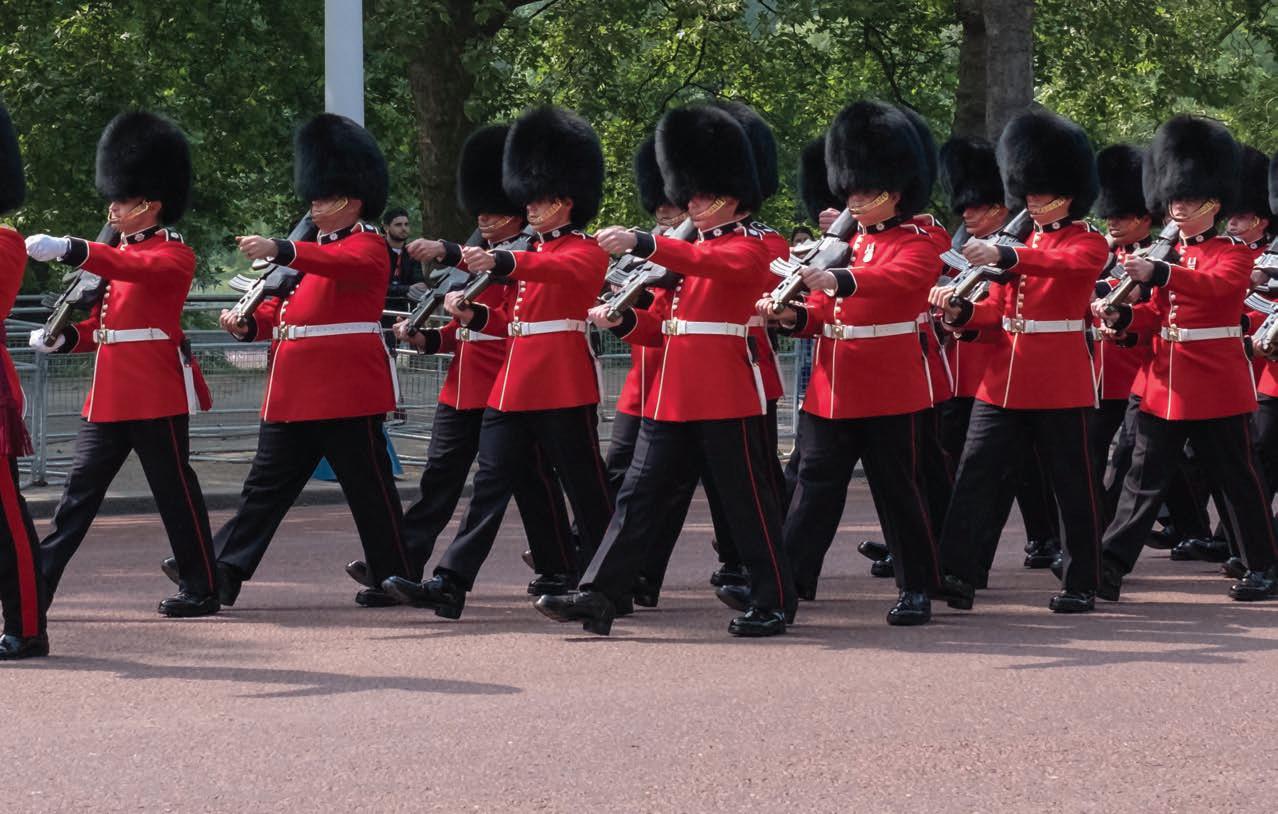
Trafalgar Square to Buckingham Palace. When the King gets there, he is greeted with a royal salute from the soldiers on parade, before inspecting the troops. Once this is done, he is joined by other members of the royal family on the famous balcony of Buckingham Palace. There is a special 41gun salute in Green Park, just next to the palace, and a special aerobatic display by the RAF’s display team, the Red Arrows.
How can I watch it?
Members of the public wishing to watch the parade must stand on The Mall or on the edge of St. James’s Park overlooking Horse Guards from 9 am. The BBC in the UK also broadcasts the parade live.
1 Read the text again and mark the sentences as Right (R), Wrong (W) or Doesn’t Say (DS).
1 Trooping the Colour marks the King’s official birthday celebrations.
2 The display features a few Household Division officers, horses and musicians.
3 In central London, The Mall is a well-known shopping area.
4 A spectacular Royal Air Force flypast takes place over Buckingham Palace.
5 Each battalion has different colours as well as different uniforms.
6 The difference in the battalions’ uniforms is their buttons: the number of buttons and the badge on their shoulder.
2 Follow the link below, watch the video and answer the questions. https://www.youtube.com/ watch?v=7bS9QNJN2ms&ab_ channel=GuardianNews
a) Who accompanied King Charles III at the parade on horseback?
b) What does the Royal family do to conclude the day?
3 PERSONAL PROJECT
Do people in Romania have any festive military parade? Write about:
a) the name of the festival;
b) its significance;
c) when it takes place;
d) what people do on that occasion.
121
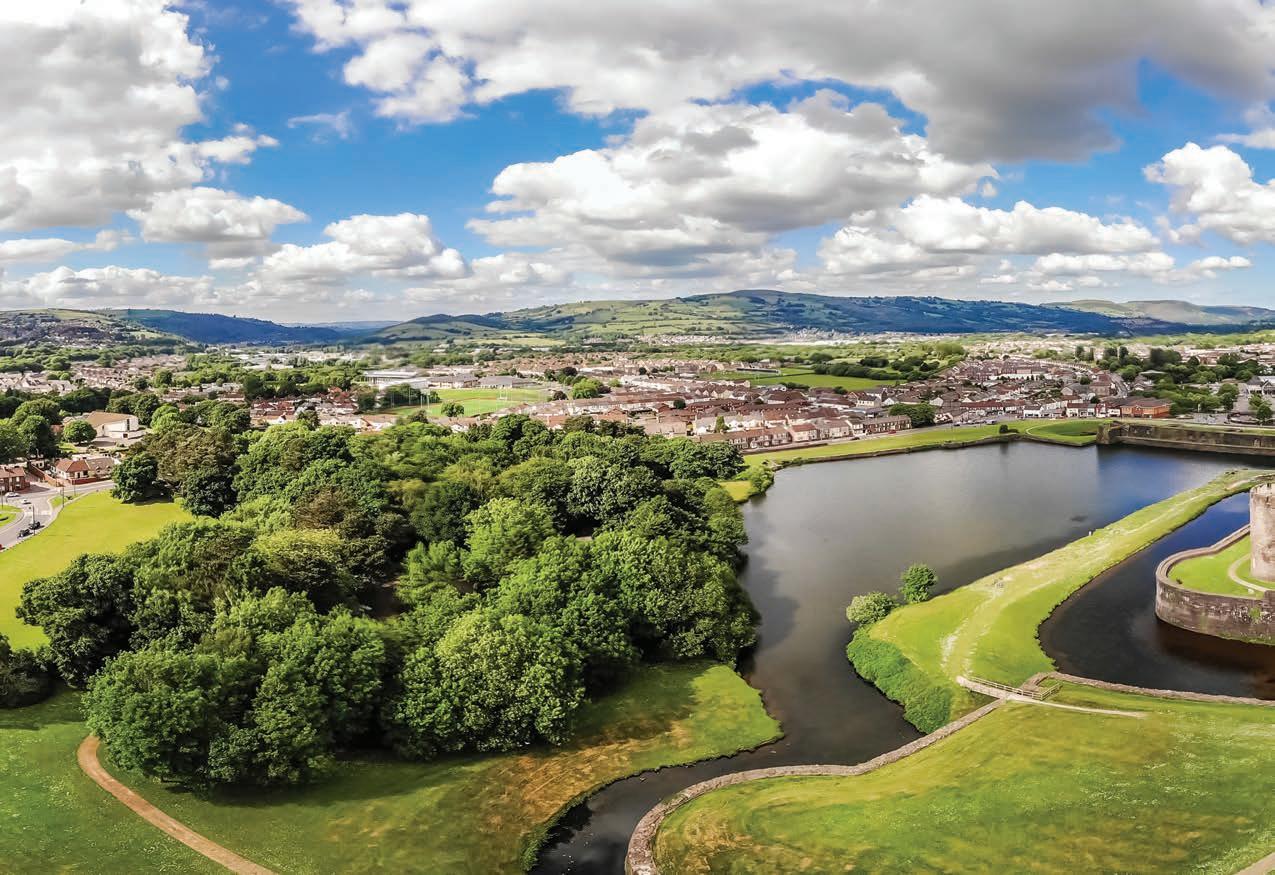
The Big Cheese Festival
The Big Cheese is an annual festival which celebrates the history, heritage and culture of Caerphilly, a town situated at about seven miles north of Cardiff. The event attracts more than 80,000 visitors when it rolls, the last weekend in July. Caerphilly Castle, the second largest Castle in Britain still remains the star of the festival. With an entertainment program that stretches from morning until evening, there are medieval re-enactments within the Castle grounds, live music and a packed program in The Great Hall. The Big Cheese Festival brings together local and regional Welsh food and drink producers in three massive food halls, the largest in the country. With a dedicated cheese market featuring quality cheese producers from all over the country, this really is a food lovers paradise. Admission to Caerphilly’s Big Cheese Festival is free.
Things to see and do
After the opening of the funfair, there is live music. While there are plenty of opportunities to enjoy the
delicious, crumbly cheese, there’s much more to sample besides tasty local produce. Exciting new street food vendors are dotted around the site with show cooking and some unusual and exotic tastes. From noodles to crepes, there’s a feast to be enjoyed! There is also a cheese market, showcasing some of the best cheese traders in the country, as well as a food and drink market. The market is full of Welsh products, not only cheese but wine, liqueurs, chocolate, jams and pickles, cakes, and plenty more.
The Great Cheese Race
The festival’s highlight is the Great Cheese Race, in which teams of four race around a special course on the grounds of the castle. Competitors must carry truckles of cheese around the course, some of them in fancy dresses, work in teams to see who can carry a truckle of Caerphilly cheese along the route in the shortest time. There are races for children and adults. The winners and those in the best fancy dress win
122
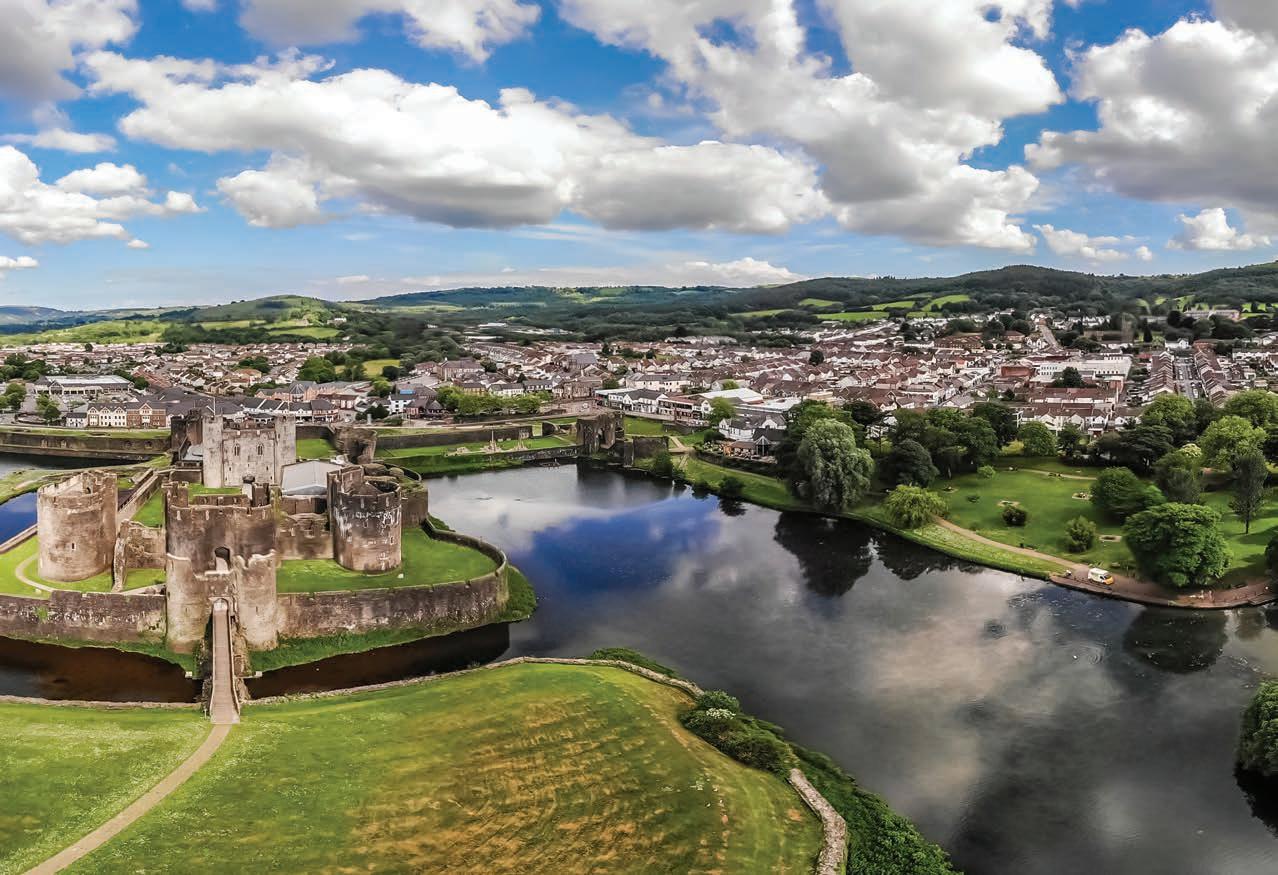
prizes. Visitors can cheer on the competitors in the dairy dash from the festival site.
Other events
There is plenty of entertainment, including re-enactment displays, toe-tapping blues and folk music from leading Welsh and local bands, folk dancing, educational activities, street entertainers, an animal marquee, along with falconry displays, have-a-go archery and living historical encampments. Mix in
1 Answer the following questions:
1 What does the Big Cheese festival celebrate?
2 When does it take place?
3 What can people do?
4 What is the most popular contest?
5 What other activities are there?
a traditional funfair, minstrels and troubadours, fire-eaters, food and craft stalls and there is something for everyone. Visitors can watch the re-enactment groups as they reconstruct 10th, 11th and 14th century life and battles. The interactive living history encampments and displays illustrate the different periods of Welsh history.
The Festival closes with a firework display.
2 Follow the link below and watch the video. Write down three activities people usually do on the Big Cheese festival. https://www.youtube.com/watch?v=jc18C9UTSdo
3 PERSONAL PROJECT
Do people in Romania have any food festivals? Write about:
a) the name of the festival; b) its significance; c) when it takes place; d) what people do on that occasion.
123

TASK Make a poster about your favourite charity or organization.
1 Ideas
What charities and organizations are there in Romania?
Which one is your favourite?
Why do you like it?
Write notes:
name Oxfam location London
What is it? an organization that helps poor people in developing countries
When did it start and where? 1956, in Bolivia, India and Chad
What does it do? gets money to work with people in their communities – health, education, also helps in emergency situations examples of its work drought in Ethiopia in 1994, Hurricane Mitch in Central America in 1998, tsunami in Southeast Asia in 2004
My notes
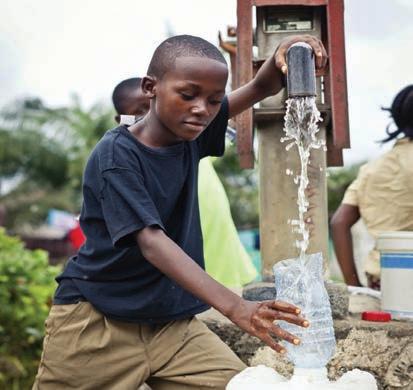
2 Group work
Which charity or organization does everyone in your group like?
Choose one charity or organization and write some more notes:
• name
• location
• what is it?
• when did it start and where?
• what does it do?
• examples of its work
3 Write

Write a short text about your charity or organization, using your notes.
Oxfam is a charity in London. It is an organization that helps poor people in developing countries and it started in 1956 in Bolivia, India and Chad. Oxfam gets money to work with people in their communities. It helps with health and education. It also helps people in emergency situations. For example, it helped people in the drought in Ethiopia in 1994, after Hurricane Mitch in Central America in 1998, and also after the terrible tsunami in Southeast Asia in 2004.
skills collaborative project 1 124
Life
124
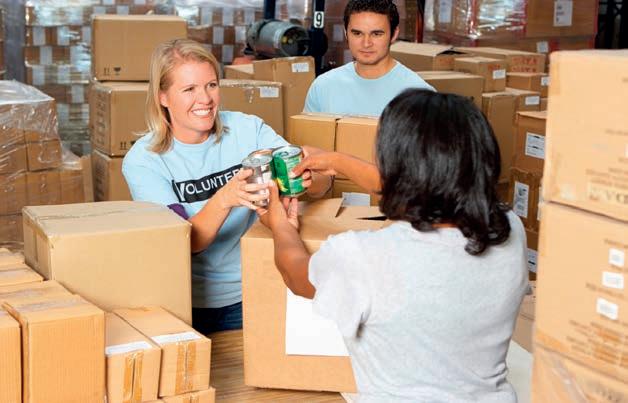
4 Check
Read your text and check it for:
• time expressions
• correct word order with adjectives
• also and too
5 Pictures
Find photos or draw pictures of the work your charity or organization does.
6 Display
Make a poster or a PowerPoint presentation. Include your text and pictures. Show your project to the class.

Check your life skills!
Draw the smiley face that describes your and your group’s life skills. = Very good = Good = Needs more work
You Your group
Working with other students
Completing work on time
Taking good notes
Enjoy doing the project
Helping other students
Working hard
Following all the steps
More life skills

Think about how you can help other people.
Helping yourself and society is a life skill.
125

Life skills collaborative project 2
TASK Make a poster about your favourite artist.
1 Ideas
Which famous artist do you like?
Why do you like him / her?
Write notes:
name Pablo Picasso
nationality Spanish born / died Málaga, 1881 France, 1973
type of art big / small paintings, early paintings – blue, later paintings – cubist, often people, strong colours other information could paint very well when a child, lived in France, interesting life, paintings now very expensive, in a lot of museums, made sculptures too
My notes
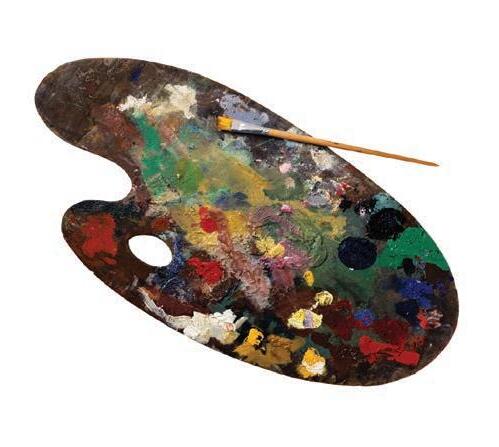
2 Group work
Which artists does everyone in your group like? Choose one artist and write some more notes:
• name
• nationality
• born / died
• type of art
• other information
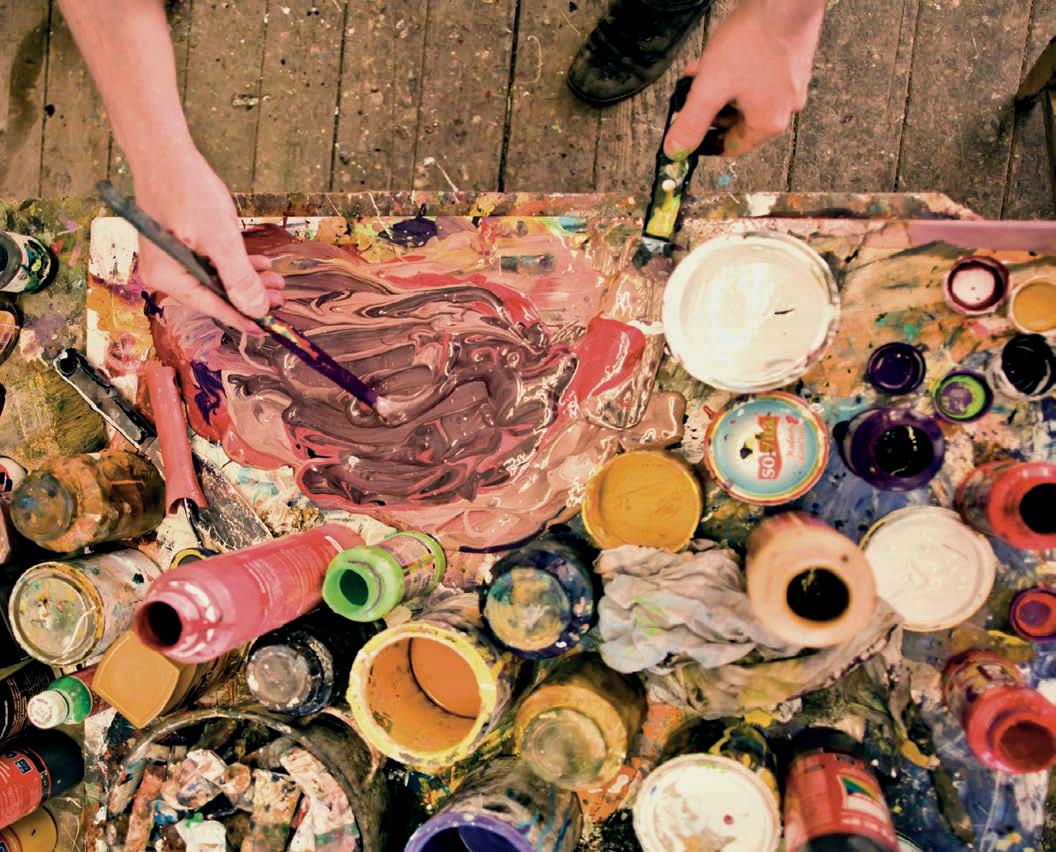
3 Write
Write a short text about your artist, using your notes. Picasso is a very famous artist. He was Spanish and he was born in Málaga in 1881. He died in France in 1973. Picasso’s paintings were big and small. The early paintings were blue and the later paintings were cubist. He often painted people and he used strong colours. Picasso could paint very well when he was a child. He lived in France and he had an interesting life. Picasso’s paintings are now very expensive and they are displayed in a lot of museums. Picasso also made sculptures.
126
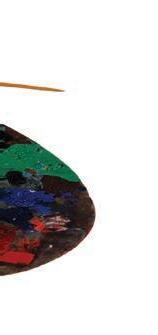
4 Check
Read your text and check it for:
• capital letters
• punctuation
• apostrophes (’s)
• spelling
• correct use of past tenses
5 Pictures
Find photos or draw pictures of your artist and his / her artwork.

6 Display
Make a poster or a PowerPoint presentation. Include your text and pictures. Show your project to the class.
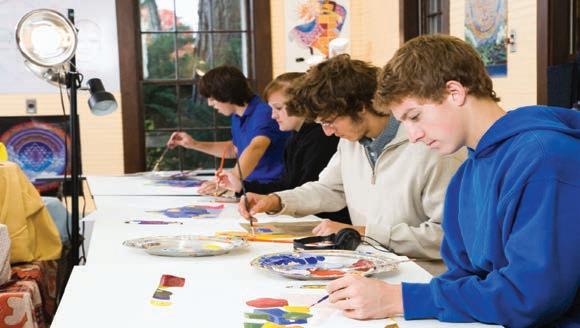
Check your life skills!
Draw the smiley face that describes your and your group’s life skills. = Very good = Good = Needs more work
You Your group
Working with other students
Completing work on time
Taking good notes
Enjoy doing the project
Helping other students
Working hard
Following all the steps
More life skills

Respect other people’s opinions and feelings. Respect is a life skill.
127 127

TASK Make a poster about where you live.
1 Ideas
Which places do tourists visit in your area?
Choose three places and write notes about them:
Place Why is it special?What can you see and do there?
beach fun, a lot of people, good fish restaurants swim, sunbathe, have lunch cathedralbeautiful, peacefulclimb tower, see views of city old cityinteresting, visit city’s oldest house see old buildings, visit market, buy souvenirs
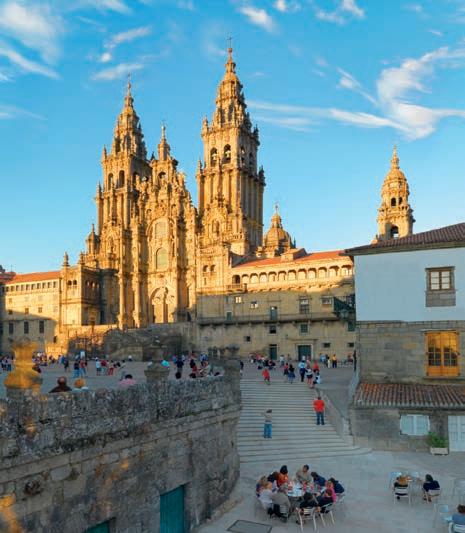
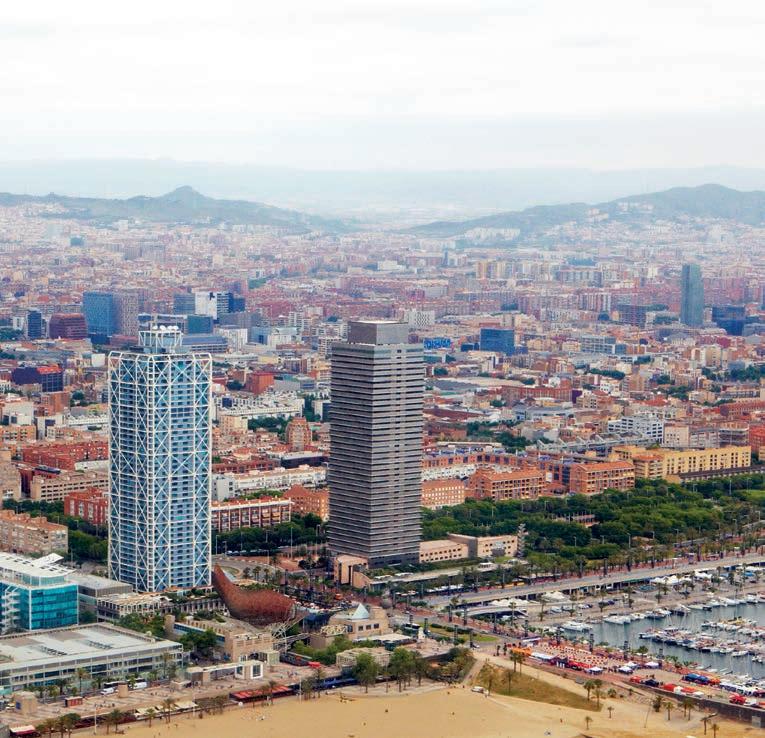
2 Group work
Which places in your area does everyone in your group think are special?
Choose three places and write some more notes:
• name of the place
• adjectives to describe the place
• reasons why it’s special
• things you can see there
• activities you can do there
3 Write
Choose one of the three places and write a short text, using your notes.
There are a lot of interesting places in our area. Here are three places you should visit. First, the beach is really fun. There are always a lot of people there. You can swim and sunbathe. You can have lunch there, too. There are some really good fish restaurants. Second, the cathedral is a popular place to visit. It’s a beautiful building, and it’s very peaceful. You can climb the tower and see amazing views of the city. Finally, the old city is very interesting. If you go there, you will see a lot of old buildings. You can also visit the city’s oldest house. You should visit the market and buy souvenirs, too.
collaborative project 3
Life skills
128
4 Check
Read your text and check it for:
• expressions of quantity
• first, second, finally
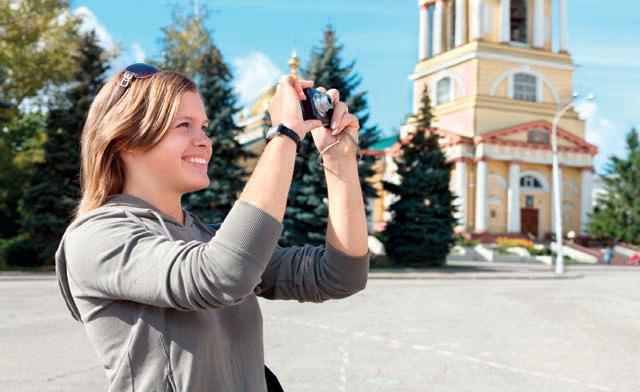
5 Pictures
Find photos, take photos yourself or draw pictures of your area.
• variety of tenses and verbs
6 Display
Make a poster or a PowerPoint presentation. Include your text and pictures. Show your project to the class.
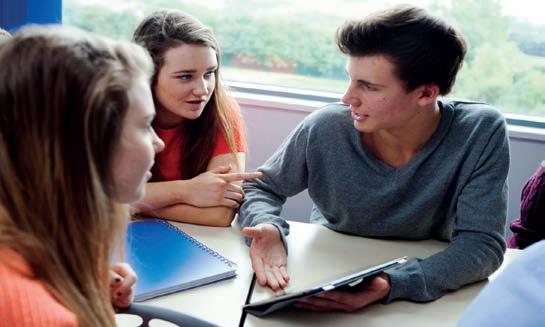
Check your life skills!
Draw the smiley face that describes your and your group’s life skills. = Very good = Good = Needs more work
You Your group
Working with other students
Completing work on time
Taking good notes
Enjoy doing the project
Helping other students
Working hard
Following all the steps
More life skills

Work together to think of and develop ideas. Creativity is a life skill.
129
Final revision 1 Vocabulary
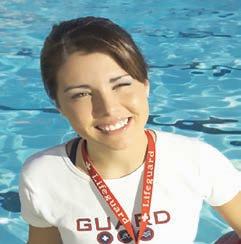
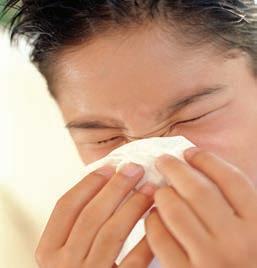
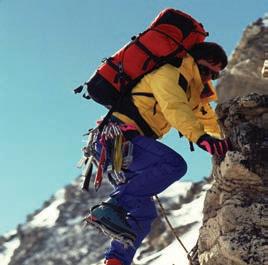



130
1 2 3 4 5 67 89 1011 12 13 14 15 16 17 Across 3 This person repairs electrical machines. 5 We need this to move the cursor on a computer screen. 7 This verb is the opposite of drop. 8 This person saves swimmers in danger. 10 This person helps sick animals. 12 John is very … . He never does any work. 13 My parents often … for their shopping with their credit card. 14 A … is when your head hurts. 16 This person designs buildings. 17 We use these to listen to music on our computers. Down 1 We do this when we go up a mountain. 2 The opposite of kind. 4 A lot of people have a … in winter. 6 We do this to have a lot of money. 9 A … person makes other people laugh. 11 You should go to the doctor if you have a high … . 15 Please … on that chair.
Grammar Final revision 1
1 Complete the sentences with the present simple form of the verbs in the box.
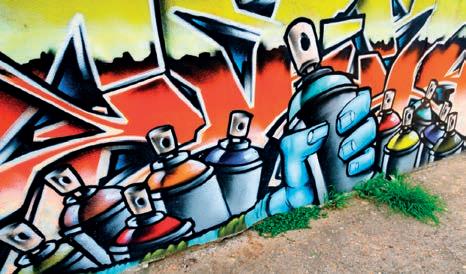
be have got visit paint produce live
1 Jacob … in Bristol, in the west of England.
2 There … a lot of street art in Bristol.
3 Artists … images on walls, buildings and pavements.
4 People often … Bristol to see the street art.
5 Jacob … a favourite street artist. His name is Banksy.
6 Banksy … street art all over the world.
2 Write sentences using the comparative or the superlative forms of the adjectives.
1 She is … (pretty) than her sister.
2 This is … (good) book! I love it!
3 Which is … (big) country in the world?
4 The weather is … (bad) today than yesterday.
5 Sonya is … (intelligent) girl in our class.
6 I like English … (much) than Maths.
3 Complete the text with the present simple or present continuous form of the verbs in brackets.
My dad (1)… (work) for an art gallery. At the moment, my dad and I (2)… (look) at Kieron Williamson’s paintings. Kieron (3)… (be) only 11 years old. He (4)… (not draw) today
because he’s at school. He (5)… (not go) to a special school. Kieron’s a normal schoolboy and he (6)… (love) playing football with his friends.
4 Order the words to make questions. Then write short answers.
1 your brother / a good time / having / is / ? (yes)
2 looking for / you / are / wild fruit / ? (yes)
3 she / feeling well / is / ? (yes)
4 having / are / your classmates / a party / ? (no)
5 sleeping / in a tent / am / I / ? (no)
6 they/ going/ are/ to/ seaside/ the? (no)
5 Complete the questions with question words.
1 … is your name?
2 … are you from?
3 … is your favourite name? … is it special?
4 … do you spell your surname?
5 … is your best friend?
6 … is your birthday?
6 Complete with the correct form of the verbs in brackets.
1 I … (eat) pizza for dinner today.
2 We … (have) a maths test tomorrow.
3 … they … (hike) on Saturday?
4 My teacher … (not work) next week.
5 I … (study) history next month.
6 We … (buy) a new house next year.
7 Writing: Describe your Saturday weekly routines. Use always, usually, never, sometimes, often, hardly ever. Offer interesting facts about your day. Write 60–80 words.

131
Final revision 1
Vocabulary Final revision 2
Work with a partner to complete the sentences. Who finishes first?
START

An e… repairs electrical machines.
A v… helps sick animals.

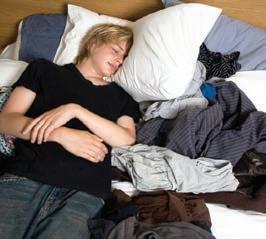
A m… lets us select items on a computer screen.
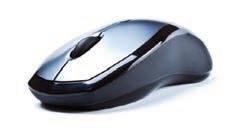
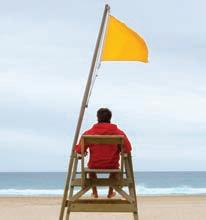
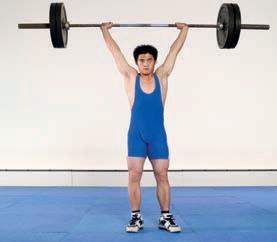
L… is the opposite of drop
A l… rescues swimmers in danger.
We use h… to listen to music on our computers.

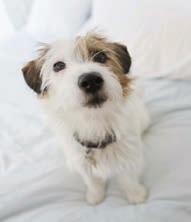
Dogs are very l… .
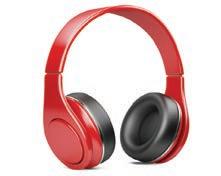
The opposite of stand is s… .


We s… to have money for the future.
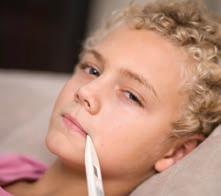
He has a high t… .
132
He is very l… .
A h… is when your head hurts.
FINISH
Grammar Final revision 2
1 Complete the text with the correct form of the verbs in brackets.
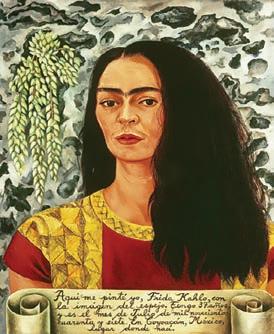
The artist Frida Kahlo was born in Mexico in 1907. In 1925, Frida (1)… (be) in a terrible bus accident. She (2)… (break) a lot of bones. She (3)… (spend) many months in hospital. While she was there, she (4)… (start) painting. After many years, she (5) … (become) a famous artist. In 1929, she (6) … (marry) another Mexican artist, Diego Rivera. She (7)… (die) in 1954. She (8) … (not have) a long life.
2 Complete the sentences with the correct form of the verbs in brackets. Use the past simple.
1 In 1957, Laika the dog … (become) the first animal to orbit the Earth.
2 In July 1969, Neil Armstrong and Buzz Aldrin … (land) on the Moon.
3 They … (walk) on the Moon and a third astronaut, Michael Collins, … (stay) on the spacecraft.
4 Millions of people … (listen) to the radio or … (watch) the news.
5 My grandmother … (be) surprised when my dad … (tell) her. She …(not believe) him.
6 The three astronauts … (return) to Earth four days later.
3 Write C (countable) or U (uncountable) for each noun. Then write the plural forms of countable nouns and make those uncountable countable.
1 banana 9 bread
2 coffee 10 spaghetti
3 orange 11 milk
4 biscuit 12 juice
5 onion 13 meat
6 pasta 14 egg
7 lemon 15 tomato
8 sandwich 16 strawberry
4 Correct the sentences if necessary.
1 The tail of the horse is not short.
2 The offices of the doctors are beautiful.
3 The books of the students are new.
4 The toys of the babies are funny.
5 The hat of Mrs. Sally is red.
6 The leg of the chair is broken.
7 The dress of my sister is old.
5 Write sentences with ’s or of.
1 (a glass) milk ➔ …
2 (my friend) bike ➔ …
3 (the window) room ➔ …
4 (Mr. Smith) car ➔ …
5 (the headteacher) office ➔ …
6 (the number) house ➔ …
6 Complete the sentences with can or may.
1 … I borrow your laptop, please?
2 … you read louder, please?
3 … I have more coffee, please?
4 … you take the dog for a walk, please?
5 … I take your car to go camping with my friends at the weekend?
6 … you buy me some stamps at the post office, please?
7 Writing: Write a story beginning like this: The day I got my pet dog was also the day the trouble began… . Use 60–80 words and give your story an appropriate title.

133
Final revision 2
Module 1 Language reference
Vocabulary Film types


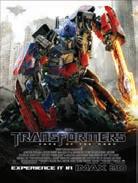
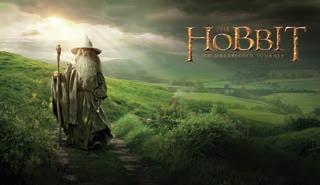
/ fantasy
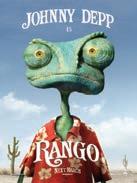
/ comedy

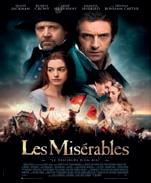
TV programmes cartoon chat show comedy documentary drama game show reality show soap opera sports programme the news
Grammar Present simple
Affirmative Negative
Interrogative Short answers
I / You love films. I / You don’t like war films. Do I / you like films?Yes, I do.
He / She / It loves films.He / She / It doesn’t like films. Does he / she / it like films?No, he / she / it doesn’t
We / You / They love films. We / You / They don’t like films. Do we / you / they like films? Yes, we / you / they do.
Question words
Question words
What’s your name?My name’s David. Where are you from?I’m from Seville. When’s your birthday?It’s in March. Who’s Lucy? She’s my cousin. Why are you happy?It’s my birthday. How often do you buy DVDs? I never buy them.
Spelling: third person singular
for most verbs add -s drink → drinks for verbs that end in -s, -sh, -ch and -x add -es pass → passes wash → washes watch → watches fix → fixes for verbs that end in consonant +y, omit the -y and add -ies study → studies for verbs that end in vowel +y, keep the -y and add -s play → plays irregular verbs be → is have → has
Speaking Expressing likes and dislikes
I like romantic comedies. I can’t stand them. I don’t like horror films. They’re awful. I don’t mind science-fiction. I really like them. They’re great.
134
action / horror / war action / westernadventure / science-fiction / thriller romantic comedy adventure
animated
musical
Module 2 Language reference
Vocabulary Money




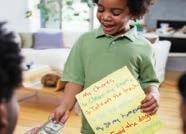

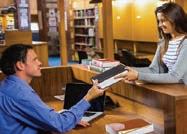

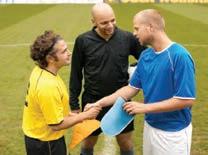

Grammar Comparatives
Short adjectives
A phone is smaller than a TV. My camera is bigger than my phone. My phone is easier to use than my mum’s.
Long adjectives
This mobile is more expensive than that camera.
Irregular adjectives
good better, bad worse, far farther / further
Superlatives
Short adjectives
This laptop is the smallest in the shop. My camera is the biggest. My phone is the easiest to use.
Long adjectives
This mobile is the most expensive in the world.
Irregular adjectives
good the best, bad the worst, far the farthest / the furthest
The forms of the genitive: expressing possession ‘s / ‘ – genitive proper nouns Jenny’s dress is red. nouns in the singularThe boy’s bike is new. irregular pluralsThe men’s books are on the shelf. regular pluralsThe teenagers’ bikes are in the garden. of – genitive for things The windows of the room are wide open. for animals The ears of the bunny are very long.
Speaking Buying and selling
This webcam is great. How much is it? It’s £40. And how much does this mouse cost? It costs £12. OK, this mouse, please. Here’s £15. Thanks. Here’s £3 change.
135
borrow buy earn lend pay (for) save sell spend swap win Computer equipment desktop flash drive keyboard laptop memory card mouse printer scanner screen speakers webcam
Module 3 Language reference
Vocabulary Outdoor activities
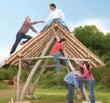
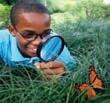
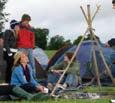
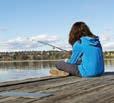

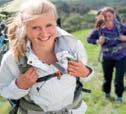
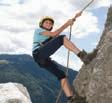
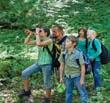
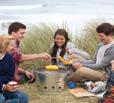

Feelings angry bored embarrassed excited jealous nervous pleased sad scared surprised tired worried
Grammar Present continuous for activities in progress
Affirmative Negative
Interrogative Short answers
I am camping tonight.I am not camping tonight. Am I camping tonight? Yes, I am.
He / She / It is camping tonight. He / She / It is not camping tonight.
We / You / They are camping tonight.
Spelling rules
We / You / They are not camping tonight.
for most verbs add -ing: play → playing for verbs that end in -e, omit the -e and add -ing: dive → diving for verbs that end in -ie, change the -ie to -y and add -ing: die → dying
Is he / she / it camping tonight?No, he / she / it isn’t.
Are we / you / they camping tonight? Yes, we / you / they are.
for one-syllable verbs that end in a short vowel + a consonant (except w, x or y), double the consonant and add -ing: hit → hitting for two-syllable verbs that end in a stressed vowel + a consonant, double the consonant and add -ing: begin → beginning
Present simple and present continuous
Present simple is used to express
Present continuous is used to express habits: We walk in the park on Sundays.
routines: We start school at 8 o’clock in the morning.
timetables, schedules, programmes: The train arrives at 10 o’clock.
expressing permanent states: We live in Romania.
time expressions: every day / weekend / year, etc., always, usually, never, on Mondays, once a week, etc.
Speaking Making plans
actions happening at the time of speaking: I’m doing my homework now.
temporary situations: She’s studying for her exams these days.
time expressions: at the moment, now, this week, these days, today, etc.
Are you camping with the school this weekend? Let’s buy our food together Good idea! Are you free after school tomorrow? What about on Thursday afternoon? Yes, that’s fine. Where shall we meet? What about in front of the supermarket? OK. What time? How about meeting at half past four?
136
build camp chop climb cook find fish hike look for sleep
Module 4 Language reference
Vocabulary Life events






be bornbuy a houseget a jobget married go to university have children
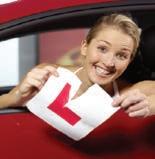
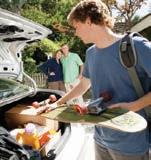
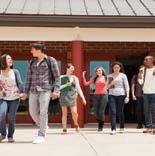

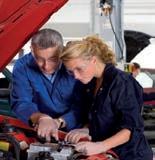

learn to driveleave homeleave schoolstart schooltrain to be a …work
Musical instruments acoustic guitar drums electric guitar flute keyboards tambourine piano saxophone trumpet violin
Grammar Prepositions of time
AT is used for PRECISE TIMES
at 10 o’clock at 12:30 am at breakfast at lunchtime at noon / midday at night at bedtime at dinnertime at sunrise at sunset
Ordinal numbers
ON is used for DAYS and DATES
on Friday on the 10th of March on Easter Day on Christmas day on New Year’s Eve on the 2nd of May 2022 on Wednesday afternoon on Sunday morning on my wedding day on a holiday
IN is used for MONTHS, YEARS, DECADES, CENTURIES and long periods of time
in October in 2021 in the 1990s in the 21st century in the Dark Ages in the Christmas holiday in the Easter holiday in (the) spring / summer / autumn / winter in the morning / afternoon/ evening in a few days / months /years in the future/ past
Twelfth Thirteen
Speaking Making suggestions and recommendations
I want to buy a guitar. Which one do you recommend? Why don’t you buy a second-hand one? Good idea! What do you think of these two? They both look fine. Which one is better? I think an electric guitar is better if you want OK. Brilliant! Thanks, Max. to play rock.
137
1st2nd 3rd 4th5th6th7th8th9th10th FirstSecondThird Fourth Fifth Sixth Seventh Eighth Ninth Tenth
11th12th13th14th15th16th17th18th19th20th
Twentyfirst Twentysecond Twentythird Twentyfourth Twentyfifth Twentysixth Twentyseventh Twentyeighth Twentyninth Thirtieth
Eleventh
th Fourteenth Fifteenth Sixteenth Seventeenth Eighteenth Nineteenth Twentieth 21st22nd23rd24th25th26th27th28th29th30th
Module 5 Language reference
Vocabulary Jobs
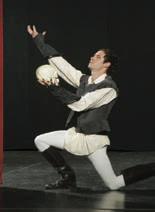

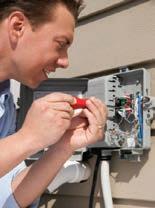

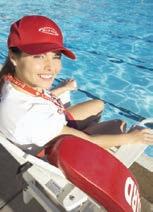
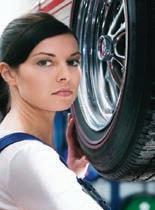
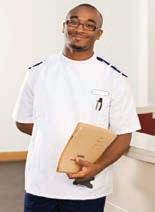
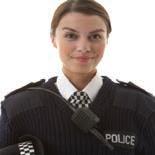

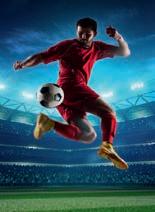

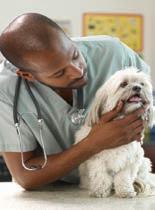
nursepolice officersportspersonfootballerteacher vet
Health problems and first aid broken arm cold cough cut earache headache insect bite (feel) sick sore throat stomach ache temperature
Grammar Countable and uncountable nouns
Countable nouns
an apple – two apples
a box – two boxes
a toy – two toys a baby – two babies a wolf – two wolves
Uncountable nouns
Irregular plural man – men tooth – teeth woman – women goose – geese child – children mouse – mice foot – feet person – people
types of food: cheese, bread, chocolate, butter, meat, ham, salt, pepper, bacon, honey, jam, sugar, rice, flour, soup, pizza, pasta, spaghetti, pastry, paté, popcorn, yoghurt, ketchup liquids: milk, coffee, tea, water, wine, juice, oil, lemonade materials: gold, silver, iron, wood, paper, cotton, wool, plastic, glass, soil abstract nouns: love, happiness, beauty, kindness, knowledge, power, housework, weather, literature, art, music others: news, money, advice, information, furniture, snow, weather, hair, homework, luggage, traffic, accommodation, time, cash, grass
Speaking Expressing opinions
I want to be an engineer. I think it’s a fantastic job. In my opinion, it’s exciting but I think it’s boring sometimes. Well, I want to be a firefighter. What about you? I’m not sure
138
architectelectricianengineerlifeguardmechanic
actor
Module 6 Language reference
Vocabulary Discoveries
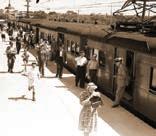
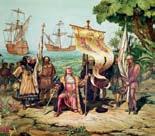
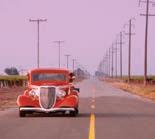
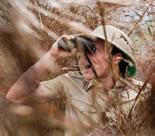


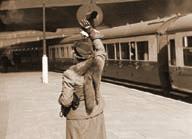
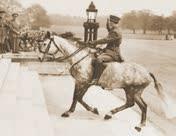
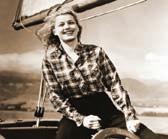


To be: past simple
Affirmative Negative Interrogative Short answers
I was at home. I wasn’t at home. Was I at home?Yes, I was He / She / It was at home.He / She / It wasn’t at home. Was he / she / it at home? No, he wasn’t.
We / You / They were at home. We / You / They weren’t at home. Were we / you / they at home? Yes, they were
Grammar Past simple
Regular verbs I cooked dinner. He / She / It cooked dinner.
We / You / They cooked dinner.
Irregular verbs I began to talk. He / She / It began to talk.
We / You / They began to talk.
Past simple is used for
I didn’t cook dinner. He / She / It didn’t cook dinner.
We / You / They didn’t cook dinner.
I didn’t begin to talk. He / She / It didn’t begin to talk.
We / You / They didn’t begin to talk.
actions which happened at a definite time in the past: We went to the cinema last week. actions which happened immediately one after the other in the past: Sam woke up, had breakfast and got ready for school.
Speaking Asking for and giving directions
Did I cook dinner?
Did he / she / it cook dinner?
Did we / you / they cook dinner?
Did I begin to talk?
Did he / she / it begin to talk?
Did we / you / they begin to talk?
Excuse me! How can I get to the Science Museum? Go straight ahead at the traffic lights. Turn right and walk along the street. Is the museum down the street? You walk past the park and on the corner you see the sign for the Science Museum.
139
arrivediscoverdrive explorefly land leave ride sail take off travel Natural disasters drought earthquake famine fire floods hurricane landslide tornado tsunami volcanic eruption
Negative Interrogative
Affirmative
Module 7 Language reference
Vocabulary Transport
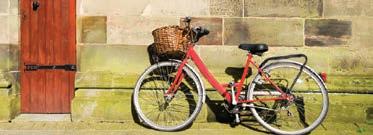
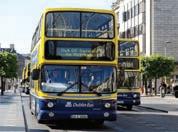

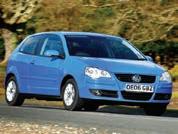
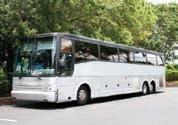

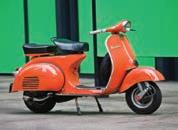
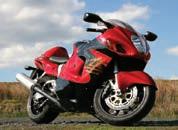

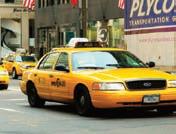
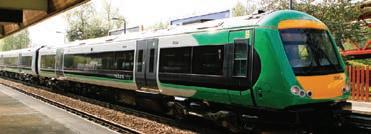
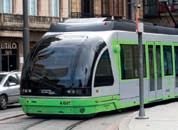
Travel buy souvenirs climb mountains explore new places go surfing have a good time make friends relax sunbathe take photos visit museums
Grammar Past simple: regular verbs
Affirmative
I / You visited a museum.
He / She / It visited a museum.
We / You / They visited a museum.
I / You did not visit a museum.
He / She / It did not visit a museum.
We / You / They did not visit a museum.
Past simple: irregular verbs
Affirmative
I / You went to school. I / You did not go to school.
He / She / It went to school.
We / You / They went to school.
He / She / It did not go to school.
We / You / They did not go to school.
See Irregular verbs list on page 143.
Did I / you visit a museum?
Did he / she / it visit a museum?
Did we / you / they visit a museum?
Yes, I / you did.
No, he / she / it didn’t
Yes, we / you / they did
Did I / you go to school?Yes, I / you did
Did he / she / it go to school?
Did we / you / they go to school?
Speaking Asking for travel information
What time does the next bus for York leave? At two o’clock. Where does it leave from?
Bus stop number seven. How much does it cost? That’s £8.
No, he / she / it didn’t
Yes, we / you / they did.
140
bike bus boat car coach lorry moped motorbike plane taxi train tram
Negative Interrogative Short answers
Negative Interrogative Short answers
Module 8 Language reference
Vocabulary Playing games


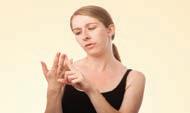
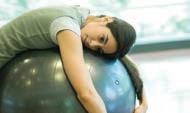

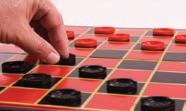
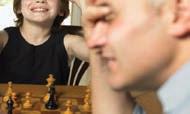


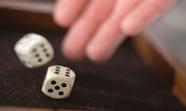
Places to visit
Grammar Tense review: present and past tenses
Present simple Present continuous Past simple
• habits:
We meet our friends at the club on Saturdays.
• routines: Linda goes to university at 9 o’clock in the morning.
• timetables, schedules, programmes: The plane takes off at 11 o’clock.
• permanent states: I live in Romania.
• time expressions: every day / weekend / year etc., always, usually, never, on Mondays, once a week, etc.
• actions happening at the time of speaking: I’m having dinner at the moment.
• temporary situations: He’s looking for a new job these days.
• plans and fixed arrangements for the near future: They’re flying to London in two hours.
• annoying habits when used with always:
You are always forgetting things!
• time expressions: at the moment, now, this week, these days, today, etc.
• actions which happened at a definite time in the past: We met our friends at the concert last Saturday.
• actions which happened immediately one after the other in the past: First she bought her ticket, then she got on the train.
• time expressions: yesterday / last weekend / year, etc., two days / months, etc., ago, in 2015, then
Making a polite request – the modal verbs: can, may
Polite requests Accepting Refusing
Can you give me your dictionary? Sure. Here you are. Sorry, no.
May I use your car, please?
Yes, of course. / Certainly. / Here you are.
Speaking Expressing preferences
Sorry, no. I’m driving to the office today.
I don’t really feel like doing that today. What do you want to do?
To be honest, I want to visit the castle. And what about the evening? Let’s see a film.
I don’t fancy a film tonight. Let’s go dancing.
141
beat cheat count give up guess land
dice
art gallery campsite castle cathedral
lose miss a turnmove a counterroll the
aquarium
fishing port market monument safari park statue town square water park
Fun with English!

Tongue twisters
Now, you read and say!
The cake and the stake give Jake a belly ache.
If a dog chews shoes, whose shoes does he choose?
I have got a date at a quarter to eight, I’ll see you at the gate, so don’t be late.
I scream, you scream, we all scream for ice cream!
Can you can a can as a canner can can a can?
Peter Piper picked a peck of pickled peppers. How many pickled peppers did Peter Piper pick?
I wish to wish the wish you wish to wish, but if you wish the wish the witch wishes, I won’t wish the wish you wish to wish.

Jokes
Q: Why do baby strawberries cry?
A: Because their parents are in a jam!
Q: Can a kangaroo jump higher than a house?
A: Of course, a house doesn’t jump at all.
Q: How do you know carrots are good for your eyes?
A: Because you never see rabbits wearing glasses!
Patient: Doctor, I have a pain in my eye whenever I drink tea.
Doctor: Take the spoon out of the mug before you drink.

Riddles
Q: The more there is, the less you see.
A: Darkness.
Q: What goes up and down stairs without moving?
A: The carpet.
Q: What goes around the world and stays in a corner?
A: A stamp.
Q: I look at you, you look at me, I raise my right, you raise your left. What is this object?
A: A mirror.
Q: What is the longest word in the dictionary?
A: Smiles, because there is a mile between each ‘s’.
Q: What word becomes shorter when you add two letters to it?
A: Short.
Q: If an electric train is travelling south, which way is the smoke going?
A: There is no smoke, it’s an electric train!
Teacher: Maria, go to the map and find North America. Maria: Here it is!
Teacher: Well done! Now, Tim, who discovered America? Tim: Maria.
Teacher: How old is your father?
Billy: He is 6 years old.
Teacher: What? How is this possible?
Billy: He became father only when I was born.
Teacher: Clyde, your composition on “My Dog” is exactly the same as your brother’s. Did you copy his?
Clyde: No, sir. It’s the same dog.
Teacher: John, how do you spell “crocodile”?
John: K-R-O-K-O-D-I-A-L.
Teacher: No, that’s wrong!
Billy: Maybe it is wrong, but you asked me how I spell.
142
Irregular verbs
Infinitive
Past simple
Past participle
be /biː/ was, were /wɒz, wɜː(r)/ been /biːn/ beat /biːt/ beat /biːt/ beaten /ˈbiːt(ə)n/ become /bɪˈkʌm/ became /bɪˈkeɪm/ become /bɪˈkʌm/ begin /bɪˈɡɪn/ began /bɪˈɡæn/ begun /bɪˈɡʌn/ bite /baɪt/ bit /bɪt/ bitten /ˈbɪt(ə)n/ break /breɪk/ broke /brəʊk/ broken /ˈbrəʊkən/ bring /brɪŋ/ brought /brɔːt/ brought /brɔːt/ build /bɪld/ built /bɪlt/ built /bɪlt/ buy /baɪ/ bought /bɔːt/ bought /bɔːt/ catch /kæʧ/ caught /kɔːt/ caught /kɔːt/ choose /ʧuːz/ chose /ʧəʊz/ chosen /ˈʧəʊz(ə)n/ come /kʌm/ came /keɪm/ come /kʌm/ cost /kɒst/ cost /kɒst/ cost /kɒst/ cut /kʌt/ cut /kʌt/ cut /kʌt/ do /duː/ did /dɪd/ done /dʌn/ draw /drɔː/ drew /druː/ drawn /drɔːn/ dream /driːm/ dreamt, dreamed /dremt, driːmd/ dreamt, dreamed /dremt, driːmd/ drink /drɪŋk/ drank /dræŋk/ drunk /drʌŋk/ drive /draɪv/ drove /drəʊv/ driven /ˈdrɪv(ə)n/ eat /iːt/ ate /eɪt/ eaten /ˈiːt(ə)n/ fall /fɔːl/ fell /fel/ fallen /ˈfɔːlən/ feed /fiːd/ fed /fed/ fed /fed/ feel /fiːl/ felt /felt/ felt /felt/ fight /faɪt/ fought /fɔːt/ fought /fɔːt/ find /faɪnd/ found /faʊnd/ found /faʊnd/ fly /flaɪ/ flew /fluː/ flown /fləʊn/ forget /fə(r)ˈɡet/ forgot /fə(r)ˈɡɒt/ forgotten /fə(r)ˈɡɒt(ə)n/ get /ɡet/ got /ɡɒt/ got /ɡɒt/ give /ɡɪv/ gave /ɡeɪv/ given /ˈɡɪv(ə)n/ go /ɡəʊ/ went /went/ gone /ɡɒn/ grow /ɡrəʊ/ grew /ɡruː/ grown /ɡrəʊn/ have /hæv/ had /hæd/ had /hæd/ hear /hɪə(r)/ heard /hɜː(r)d/ heard /hɜː(r)d/ hide /haɪd/ hid /hɪd/ hidden /ˈhɪd(ə)n/ hit /hɪt/ hit /hɪt/ hit /hɪt/ hold /həʊld/ held /held/ held /held/ hurt /hɜː(r)t/ hurt /hɜː(r)t/ hurt /hɜː(r)t/ keep /kiːp/ kept /kept/ kept /kept/ know /nəʊ/ knew /njuː/ known /nəʊn/ learn /lɜː(r)n/ learnt, learned /lɜː(r)nt, lɜː(r)nd/ learnt, learned /lɜː(r)nt, lɜː(r)nd/
143
Irregular verbs
Infinitive
Past simple
Past participle
leave /liːv/ left /left/ left /left/ lend /lend/ lent /lent/ lent /lent/ let /let/ let /let/ let /let/ lose /luːz/ lost /lɒst/ lost /lɒst/ make /meɪk/ made /meɪd/ made /meɪd/ mean /miːn/ meant /ment/ meant /ment/ meet /miːt/ met /met/ met /met/ pay /peɪ/ paid /peɪd/ paid /peɪd/ put /pʊt/ put /pʊt/ put /pʊt/ read /riːd/ read /red/ read /red/ ring /rɪŋ/ rang /ræŋ/ rung /rʌŋ/ run /rʌn/ ran /ræn/ run /rʌn/ say /seɪ/ said /sed/ said /sed/ see /siː/ saw /sɔː/ seen /siːn/ sell /sel/ sold /səʊld/ sold /səʊld/ send /send/ sent /sent/ sent /sent/ shine /ʃaɪn/ shone /ʃoʊn/ shone /ʃoʊn/ shoot /ʃuːt/ shot /ʃɒt/ shot /ʃɒt/ show /ʃəʊ/ showed /ʃəʊd/ shown /ʃəʊn/ shut /ʃʌt/ shut /ʃʌt/ shut /ʃʌt/ sing /sɪŋ/ sang /sɒŋ/ sung /sæŋ/ sit /sɪt/ sat /sæt/ sat /sæt/ sleep /sliːp/ slept /slɛpt/ slept /slɛpt/ speak /spiːk/ spoke /spəʊk/ spoken /ˈspəʊkən/ spell /spel/ spelt /spelt/ spelt /spelt/ spend /spend/ spent /spent/ spent /spent/ stand /stænd/ stood /stʊd/ stood /stʊd/ steal /stiːl/ stole /stəʊl/ stolen /stəʊl(ə)n/ swim /swɪm/ swam /swæm/ swum /swʌm/ take /teɪk/ took /tʊk/ taken /ˈteɪkən/ teach /tiːʧ/ taught /kɔːt/ taught /kɔːt/ tell /tel/ told /təʊld/ told /təʊld/ think /θɪŋk/ thought /θɔːt/ thought /θɔːt/ throw /θrəʊ/ threw /θruː/ thrown /θrəʊn/ understand /ˌʌndə(r)ˈstænd/ understood /ˌʌn dərˈstʊd/ understood /ˌʌn dərˈstʊd/ wake /weɪk/ woke /woʊk/ woken /ˈwoʊ kən/ wear /weə(r)/ wore /wɔː(r)/ worn /wɔː(r)n/ win /wɪn/ won /wʌn/ won /wʌn/ write /raɪt/ wrote /rəʊt/ written /ˈrɪt(ə)n/
144

Manualul este prezentat în variantă tipărită și în variantă digitală. Varianta digitală are un conținut similar celei tipărite. În plus, cuprinde o serie de activități multimedia interactive de învățare (exerciții interactive, jocuri educaționale, animații, filme, simulări).
Învățat e omul care nu termină niciodată de învățat.
Lucian Blaga
ISBN 978-630-342-023-3 9 78630342023 3


















































































































































































































































































































































































































































































































































































































